Skillful Futures

Unleashing Youth Potential through Skillful Trainers, Mentors and Dedicated Youth Workers
Cultivating Inclusive Skills - Embracing the innovative perspectives of the European Commission together with other Institutions and Organisations
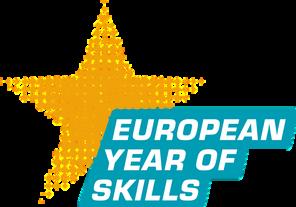

SPECIAL EDITION
y o u t h e m p l o y m e n t m a g . n e t r e g i o n a l c o o p m a g . n e t T h e v o i c e s o f o u r E E A & N o r w a y G r a n t s ' p r o j e c t s ISSN 2704-6540
Once I Was
Can you hear the sound of a fragmenting heart?
Pulverised, by a family torn apart
By war, hunger and flight
Do I offend you in your line of sight?
What do you see in my immigrant eyes?
Is it shock, pity or surprise?
After, first you avert yours and then we meet On a cold and accusing street.
You spurn my extended hand
And misread my motivation
But I have crossed many seas to reach your land And want only to show my appreciation. Once I was a doctor, trained to save life
Then after the coup, forced to flee Across an ocean that swallowed my wife Another body in the graveyard of the sea.
And now, I cannot return but can I stay
To endure this Limbo between night and day?
Where my life is leased in a centre for direct provisionOnce again under state supervision.
Once I was a doctor, and took the Hippocratic oath
A duty of care, to protect and heal
And now unmoored from my migratory boat I make this ardent appeal. Through my knowledge and skills
Let me tend your people’s ills Do not let those skills rot or rust But take me into your trust.
I have landed here, on your distant shore
And yearn to do so much more Than remain a captive of administration
But become an active member of your population. Once I was a doctor, and I still can be I trust in you; can you do the same for me?
SPECIAL EDITION Skillful Futures
Thomas Mc Grath
Bridging the Divide: Empowering Youth through Skills and Guidance
It is an honor to present you this second Special Edition of the Regional Funds Online Magazine, on this special occasion of the International Day of Youth. As we gather here, we have the opportunity to reflect on the future of our young generations and the crucial role of skills development in shaping their journey towards a prosperous and fulfilling life.
This year, having closed 2022 with the European Year of Youth, we have witnessed the launch of the European Year of Skills, an initiative aimed at promoting lifelong learning, enhancing digital and green skills, and fostering inclusive skill development. It is a timely reminder of the importance of equipping our youth with the necessary tools and knowledge to thrive in an ever-changing world of work. Passing from the European Year of Youth to the European Year of Skills, the importance of equipping young individuals with the necessary tools to thrive in a rapidly evolving world cannot be overstated. In this Special Edition, we delve into the crucial role of trainers, mentors, youth workers – thanks to the contributions of the Funds for Youth Employment and Regional Cooperation Projects –, and various organisations in shaping the future of Europe's youth by enhancing their skills and nurturing their potential.
The European Commission (EC), represented by DG EMPLOYMENT, the Organization for Economic Co-operation and Development (OECD), the International Labour Organization (ILO), the European Training Foundation (ETF), the European Centre for the Development of Vocational Training (CEDEFOP), the foundation FAFO together with other personalities representing the European Economic and Social Committee (EESC) and the European Committee of the Regions (CoR), have all recognised the need for concerted efforts to empower the youth, especially during these transformative times. This edition brings together insights from these esteemed institutions and people to shed light on the pathways for young people to unlock their capabilities and contribute to a skilled and innovative Europe.
The EEA & NORWAY Grants funded Projects, and on this occasion I want to thank all of them for their strong commitment to our Mag, were able to reflect, through their best practices here represented, the Changing Landscape of Youth Empowerment, as well in terms of a regional cooperation perspective. We must acknowledge, after all, the evolving nature of the global economy and the challenges young people face in entering the job market. The traditional education system alone may no longer be sufficient to address the diverse skill demands of the future workforce. Instead, a collaborative approach involving trainers, mentors, and youth workers becomes paramount in ensuring that young individuals develop the necessary competencies to thrive in an increasingly competitive world. Our goal, hopefully you will feel it in scrolling those pages, was to give tribute to the unwavering dedication of trainers, mentors, youth workers, and organisations/institutions committed to empowering young individuals across Europe.
Alongside the Projects activities, the mentioned entities, which we thank on behalf of the entire Fund Operator for their support, share a common interest in promoting inclusive skills policies. In the future, there will likely be a greater emphasis on ensuring that skills development initiatives and policies are designed to be inclusive, addressing the needs of diverse populations, including vulnerable groups, marginalised communities, persons with disabilities, and individuals facing social or economic disadvantages. Embracing their availability in offering us their valuable perspective, we believe that the link created with the point of views of our Youth Employment and Regional Cooperation Funds’ Projects leads the way to topics and challenges that are more current than ever.
SPECIAL EDITION Skillful Futures
We have the privilege today to read the experiences and voices of young individuals and their mentors who have embarked on their skill development journeys. Their stories inspire us and remind us of the transformative power of skill-building initiatives. By investing in skill development, fostering mentorship, and promoting collaboration, we pave the way for a brighter future, where the potential of Europe's youth is unleashed, and their contributions to society are boundless.
To conclude and leave you the time to read our pages, let us remember that our actions today shape the world our young people will inherit tomorrow. Thanks to every contribution collected here for demonstrating the need to continue working together, fostering collaborative efforts, policy interventions, and mentorship programmes to create a future where every young person has access to quality skills development opportunities. Together, we can empower our youth, bridge the skills gap, and build a society where no one is left behind.
Thank you for your attention,
And may we all remain committed to empowering our young people for a brighter and more prosperous future, building a society where no one is left behind.
The Fund Operator Communication Team
SPECIAL EDITION Skillful Futures
Interviews

Sometimes, it falls upon a generation to be great. You can be that great generation. Let your greatness blossom.

SPECIAL EDITION International Day of Youth SPECIAL EDITION Skillful Futures
Nelson Mandela
Gian Luca Bombarda, the Fund Director

As the Fund Director of the Fund for Youth Employment and the Fund for Regional Cooperation, in the framework of EEA & NORWAY Grants, you have a unique perspective on youth skills development and employment, also considering your experiences in the field. Could you share some success stories or notable achievements from your initiatives that highlight the positive impact of youth workers and mentors on young people's lives? Why do we need youth workers?
«Thanks a lot for your acknowledgement I am sure, however, I do not have a unique perspective of the matter. it is difficult, nowadays, for all researchers to try to have a complete perspective about youth skills development and employment; while just being myself a practitioner, I can only share my opinion.
The EEA & NORWAY Grants’ Regional Funds was established in 2017. The Fund supports cooperation projects focusing on knowledge sharing, exchange of good practices, and capacity building across the priority sectors of the EEA & NORWAY Grants 2014-2021. Out of +1200 submitted Concept Notes, 53 contracts, representing consortia including +430 different entities, have been awarded! Most, if not all of them, are implementing their activities thanks to the support of researchers, youth-workers, mentors etc.: in most cases recruited as volunteers. I think the most important success story I can indicate is that, in 2020, the Fund for Youth Employment achieved its halfway mark. It has been an active and challenging year for the 25 projects that were under implementation. The COVID-19 pandemic has had a negative impact on many of the project activities, especially those targeting the most vulnerable target groups, such as unemployed youth. The 25 projects were forced to adapt their efforts to improve the employment situation of young people Not in Employment, Education or Training ( NEETs ).
Project partners have shown great resilience to ensure the continued quality implementation of their projects. By shifting face-to-face activities and training sessions to online formats, they have been able to turn some of the current challenges into opportunities. Youth workers played an important role in helping young people to develop skills and find employment opportunities. They provided guidance, support, and mentorship to help young people navigate the challenges of entering the workforce. By investing in youth workers and mentors, we can contribute to ensure that young people have access to the resources they need to succeed. I strongly believe in it, and it is, one of the reasons, I am also member of few informal groups supporting the recognition in EU of youth workers and mentors.»
Skill development is crucial for empowering the youth and preparing them for the job market. Do the Projects funded by EEA & NORWAY Grants successfully helped in bridging the skills gap we are facing?
«The EEA & NORWAY Grants’ Regional Funds, in particular the Fund for Youth Employment, was established to contribute to sustainable and quality youth employment in Europe. It is a transnational fund that helps entities across Europe pooling their efforts to find new ways of reducing youth unemployment. The €60.6 million Fund for Youth Employment complements the Youth Employment Initiative, which is the main EU funding programme to facilitate the roll-out of the Youth Guarantee – a commitment by all EU Member States to ensure that young people receive good quality offers of employment, continued education, and apprenticeship.
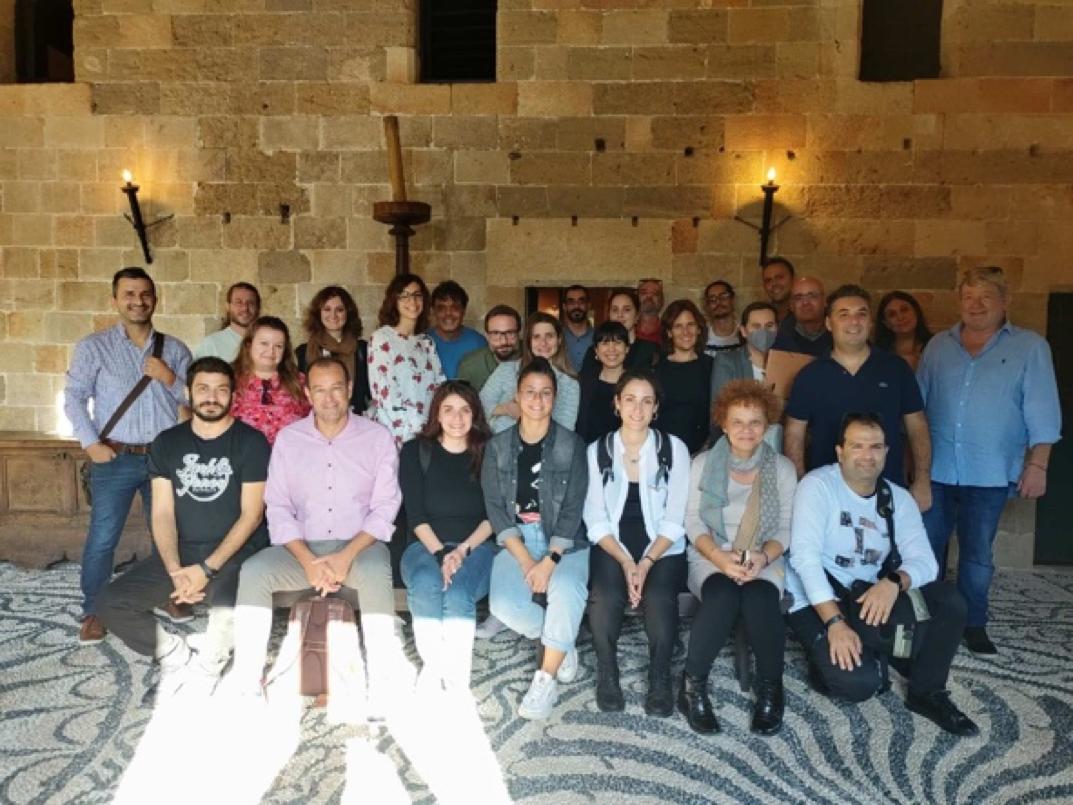
SPECIAL EDITION Skillful Futures
The 25 projects selected in the frame of the “Active Youth” Call and the 8 projects selected in the frame of the “Unlocking Youth Potential” Call, with participants from +25 countries aim to enroll 15,000 (16,808) young people in education or training, support 14,000 (15,086) young people in active job search, create 3,000 jobs in NGOs, social enterprises, and the ordinary labor market, and help 1,800 (2,526) young people start up their own businesses. The data we collected at 31.12.2022 (within parentheses) show that all above targets have already been achieved and exceeded, nevertheless, it is now too early to provide for final data achievements. The projects focus on innovation and exploration, transfer of know-how and good practices, and analysis and research – including transnational research. These projects have helped to bridge the skills’ gaps by providing young people with access to education, training, and job opportunities. By enrolling young people in education or training programmes, supporting them in their job search, creating jobs in NGOs, social enterprises, and the ordinary labor market, and helping them to start up their own businesses, these projects have helped to equip young people with the skills they need to succeed in the workforce.»
Nevertheless, I can state that, in my opinion, mentors play a crucial role in shaping the future of young individuals. A great example can be found within the project YES!, particularly on the component implemented and proposed by Autoocupació and Youth Business International (YBI) leaded by the Research Committee of the Agricultural University of Athens (AUA). A very interesting solution: four different entities implementing initiatives in four different Countries to gather evidences and improve results and social impacts of the model proposed, supported by four research entities steering and monitoring the ensemble of the activities.
Some key qualities or attributes that, generally, I consider important in potential mentors should include:
• Experience and expertise in their field, which allows them to provide valuable guidance and advice to their mentees.
• Good communication skills, including the ability to listen actively , provide constructive feedback, and communicate effectively with their mentees.

• Empathy and understanding, which allows them to relate to their mentees and understand their challenges and concerns
Mentoring and trainings play a significant role in shaping the future of young individuals to create long-term benefits. What are some key qualities or attributes you look for in potential mentors?
«As stated, I am only the Fund Director of the Fund for Youth Employment and the Fund for Regional Cooperation, in the framework of EEA & NORWAY Grants: a practitioner, not a researcher.
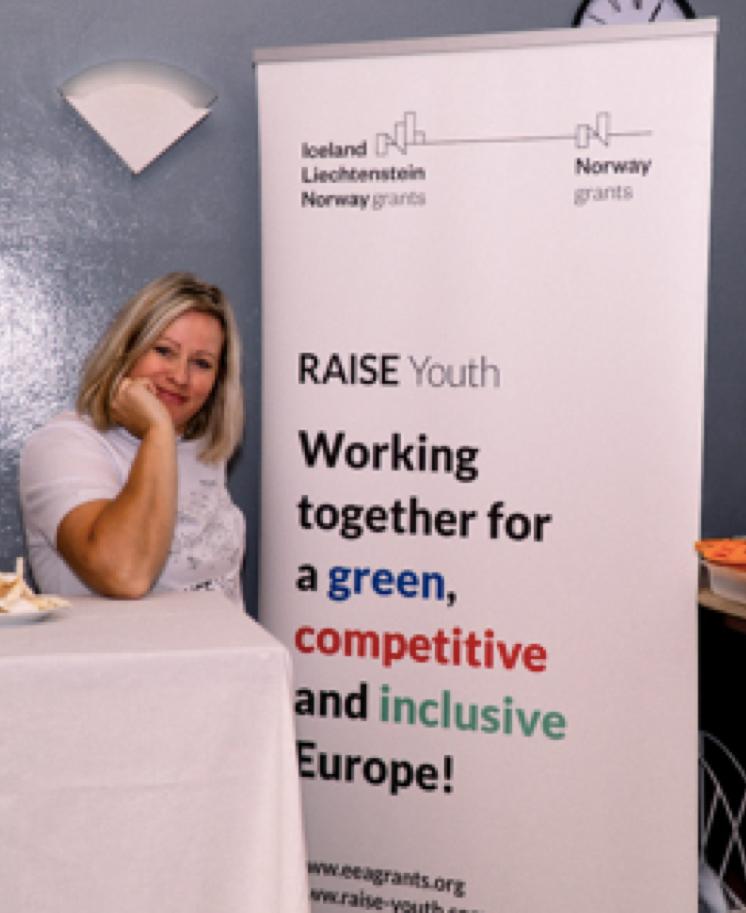
• Patience and perseverance, as mentoring is a long-term process that requires dedication and commitment from both the mentor and the mentee.
• A positive attitude and a willingness to help their mentees to grow and develop, both personally and professionally.»
SPECIAL EDITION Skillful Futures
Collaboration and regional cooperation are essential for addressing youth employment challenges on a broader scale. Do you believe that the funded Projects fostered collaboration among different regions and stakeholders to maximize the impact of skills development processes?

«Collaboration and regional cooperation are indeed essential for addressing youth employment challenges on a broader scale. The EEA & NORWAY Grants Fund for Youth Employment was established to contribute to sustainable and quality youth employment in Europe through transnational cooperation. It helps entities across Europe to exchange their different knowledge and put together their efforts to find new ways for reducing youth unemployment.
Within these sectors, funds are allocated to initiatives such as inclusive dialogue and the strengthening of transnational/regional networks, knowledge sharing and policy exchange to accelerate innovation, the development of sustainable transnational cooperation structures between the business sector, public sector, civil sector, and academia, and engagements contributing to and enhancing effectiveness and efficiency in policy development and responses to common European challenges. By supporting projects that foster collaboration among different regions and stakeholders, the Fund for Youth Employment has helped maximising the impact of skills development processes. Partnerships are an excellent way to share experiences and know-how.»
trends or technologies do you see influencing the future of youth skills development and employment?
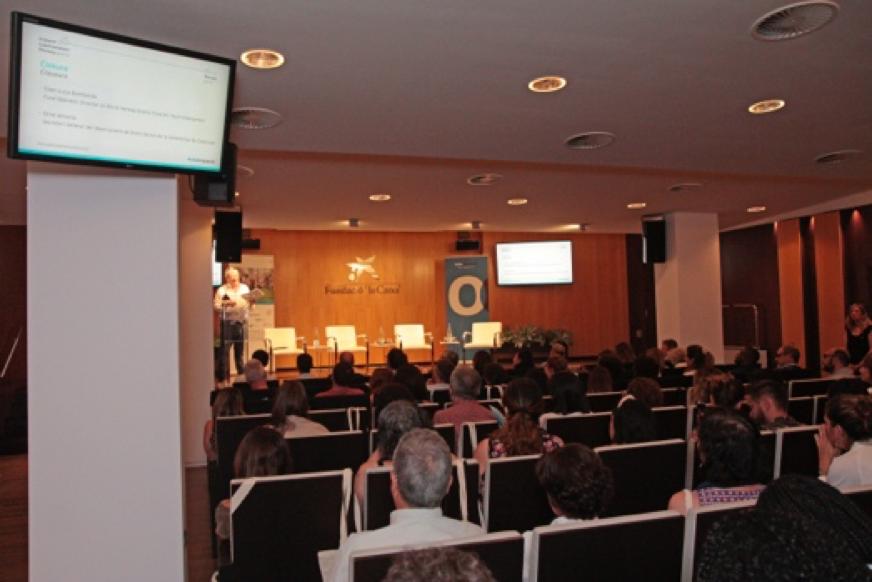
«The youth employment landscape is indeed evolving rapidly, and there are several emerging trends and technologies that are likely to influence the future of youth skills development and employment. Accordingly to the International Labour Organization report: “Global Employment Trends for Youth 2020 - Technology and the future of jobs”, technological change has significant implications for the nature of jobs available to young people. The report discusses shifts in job characteristics, sectors, and skills, as well as examining the impact of technological change on inequalities in youth labor markets. Some of the key trends and technologies that are likely to shape the future of youth skills development and employment include:
• Automation and artificial intelligence, which are changing the nature of work and the skills required to succeed in the workforce.
• The rise of the Gig Economy, which is creating new opportunities for flexible, ondemand work, but also presents challenges in terms of job security and worker protections.
• The growing importance of digital skills, as more and more jobs require proficiency in using digital tools and technologies.
• The need for lifelong learning, as the pace of technological change accelerates and workers need to continually update their skills to remain competitive in the job market.
These are just some of the trends and technologies that are likely to shape the future of youth skills development and employment. It will be important for young people to stay informed about these developments and to acquire the skills and knowledge they need to succeed in this rapidly changing landscape.»
The Projects funded by EEA & NORWAY Grants, considering the Fund for Youth Employment and Regional Cooperation, have known you for a while now, at the point that you talk about a Family. Which are your best skills as a youth worker, in your experience as Fund Director?
As the youth employment landscape continues to evolve rapidly, what emerging
«Yes, it is correct. With the first selected project, it is now almost five years we are working together: with
SPECIAL EDITION Skillful Futures
some we met already in 2017, 6 years ago, during Funds Information Day and communication activities launching the Calls. As a matter of fact, it is since the meeting with the awarded projects I am speaking about and referring to a “Family”. At that moment, competition was over, and we started cooperating within the projects (+200 different entities in 2018) and among all of us, clustering similar experiences and activities and discovering how the other part of the Family is doing.
…Starting to exchange information as YOUTHShare project did, together with StayOn and their “don’t be a stranger” https://yeforum.eu/ Without forgetting to mention the project SEPAL and their YE Family events: “ Let’s NEET together!.”
Just to mention few of the projects, but, is also necessary to indicate advocacy and lobbying initiatives reaching the creation of new faculties and teaching programmes (Uncorking Rural Heritage and Social Innovators ), together with publication of various papers utilised for policy making, participation and membership in networks and working groups. And we should not forget proses: Inclusive Entrepreneurship from YENESIS in 2022, Crystal Wing from Inclusion Through Sports for Children with Developmental Disabilities in 2021. Best practice by SHOUT from Social Innovators in 2021, CEDEFOP recognition from YOUTHShare in 2021.

I am sure I am forgetting something, and above all somebody, sorry! Certainly, I cannot be silent and I must once more congratulate to all of you, our Family of info/comm within our regional projects as in relation to the first EEA & NORWAY Communication Award 2023!

As far as my skills as youth worker are concerned, via my continuous dedication, support, providing advises up to spur the projects ……. well, if this was contributing to additionally “blow up” the fantastic and incredible capacity of all of us dealing with the projects implementation, well, I am proud to be that youth-worker appointed as Fund Director that you all, in our Family, had to work with in the past 5 years!
……. and, it is now Friday 11/08, almost 16:30 ……….. “The Clash” teaching me, enjoy our EEA & NORWAY Grants Special Mag of 12th August during the EYS2023»
Gian Luca
PS allow me to forward a big thank to you and a big hug to our friend Tom, for this other additional poem he decided to gift us for this special, grazie Tom.
Credits pictures: COwork4YOUTH, Inclusion
Through Sports for Children with Developmental Disabilities, RAISE Youth, SEPAL, Social Innovators, StayOn, Uncorking Rural Heritage, YENESIS, YES!, YOUTHShare.

SPECIAL EDITION Skillful Futures
DG Employment – from the European Year of Youth to the European Year of Skills

How has the transition from the European Year of Youth to the European Year of Skills been instrumental in highlighting the significance of skills development in promoting youth employability and addressing the evolving demands/issues of the labor market?
«The units leading the work on the European Year of Skills in DG EMPL have been in close contact with the unit in DG EAC that lead the work on the European Year of Youth. Experience from the European Year of Youth has been considered in preparation of the Year of Skills and regular exchanges and fruitful collaboration with DG EAC are still ongoing. Further, the focus on young NEETs allows for continuity with the achievements of the European Year of Youth, which showed as a key conclusion how key it is to prepare EU’s youth for the future. Activating more young NEETs for the labour market and preparing EU’s youth to realise their full potential in the digital and green transitions is key in this regard».
Could you give us some examples of the key initiatives and actions undertaken by DG Employment to promote skills development during the European Year of Skills? How
these efforts are contributing to enhance the employability of young people?
«Several of the legislative/non-legislative initiatives planned under the 2023 Commission’s Work Programme will be key milestones of the Year, given their direct links with the specific objectives of the Year. To quote the most relevant for youth employability, we have:
• two Commission proposals for Council Recommendations on the enabling factors for successful digital education and on improving the provision of digital skills;
• It comes together with the launch of the pilot for the European Digital Skills Certificate and the Launch of the Cybersecurity Skills Academy (18 April 2023);
• A Commission proposal for a Council Recommendation on updated learning mobility framework, which aims at facilitating the mobility of learners;
• and a Reinforced Quality Framework for Traineeships, in order to review the principles of the framework and address issues including fair remuneration and access to social protection;
SPECIAL EDITION Skillful Futures
Nonetheless, the Year will build on the many initiatives on up- and reskilling that have already been developed by the Commission. Therefore, the focus will be on implementation, increasing efforts and cooperation to ensure that existing instruments, programmes and funds deliver».
Considering the ever-changing nature of work and emerging skill requirements, what measures and strategies is DG Employment implementing to ensure that skills development initiatives are future- oriented, adaptable, and responsive to the evolving needs of the labor market?
«As part of the European Skills Agenda, Member States adopted two Council Recommendations proposed by the Commission on Vocational Education and Training (2020) and micro-credentials (2022) that are key to ensure future-oriented, adaptable and responsive training. The VET Council Recommendation encourages Member States to modernize their VET system, so it becomes agile, flexible, attractive for both young people and adults, and is able to cater for current and future labour market needs. Countries put together their national implementation plans that are currently being rolled out on the ground, most of the time with the support of EU funding (ESF+, RRF, etc). On the other hand, the Commission is promoting micro-credentials, meaning targeted short training courses, as an effective tool to get the workforce upskilled and reskilled on labour market needs».
Looking ahead, what are the future perspectives of DG Employment in terms of addressing the ongoing skills needs and challenges faced by young people? How does DG Employment envision collaborating with stakeholders, including employers, education providers, and youth organisations, to foster a sustainable and inclusive approach to skills development?
«DG EMPL is supporting stakeholder involvement in policy-making and implementation at all levels. When it comes to vocational education and training, stakeholders are regularly involved in policy discussions through the Advisory Committee on Vocational Training, and other expert groups on the topic. Another example relates to apprenticeships, the Commission set up the European Alliance for
Apprenticeships, gathering member states, social partners, training providers, companies and other stakeholders to work together for more and better apprenticeships».
In the context of skills development, how does DG Employment prioritize and promote inclusion to ensure that young people from diverse backgrounds, including those facing social or economic disadvantages, have equal access to quality training opportunities and are equipped with the skills needed to thrive in the labor market?
«The Strategy for the Rights of Persons with Disabilities (2021-2030) proposes several initiatives relevant for young people. For example, Disability Employment Package aims at improving labour market outcomes of persons with disabilities. It focuses on all stages of employment and amongst others covers inclusive and accessible active labour market policy measures and career guidance services. It also provides specific guidance and examples on ensuring reasonable accommodation by career guidance services. The Strategy also invites the EU Member States to set up specific targets for participation in adult learning of persons with disabilities. Inclusive education has been put high on education agenda. One of the six axes of the European Education Area is dedicated to inclusive education and lifelong learning for all. To promote disabilityinclusive education, Member States can use the opportunities offered by EU funding including the Erasmus+.
The Council Recommendation on adequate income support ensuring active inclusion calls on the Member States to safeguard effective access to minimum income for all persons lacking sufficient resources, including young people. At the same time, it recommends linking the receipt of minimum income benefits to strong labour market activation measures. Particular attention should be devoted to young people not in employment, education or training (NEET) at the risk of poverty or social exclusion by getting them back into education, training or the labour market within the shortest time possible».
SPECIAL EDITION Skillful Futures
Recognising the crucial role of mentors, trainers, and youth workers (whether employed and/or volunteers) in supporting skills development, how does DG Employment foster collaboration with these stakeholders to ensure effective guidance and mentorship for young people, particularly those from underrepresented groups, and how does DG Employment support their capacity-building efforts in this field?
«The European Framework for Quality and Effective Apprenticeships (EFQEA) puts emphasis on the key role of teachers and trainers for quality learning. In-company trainers should cooperate closely with teachers and training institutions to provide guidance to apprentices and to ensure mutual and regular feed-back.
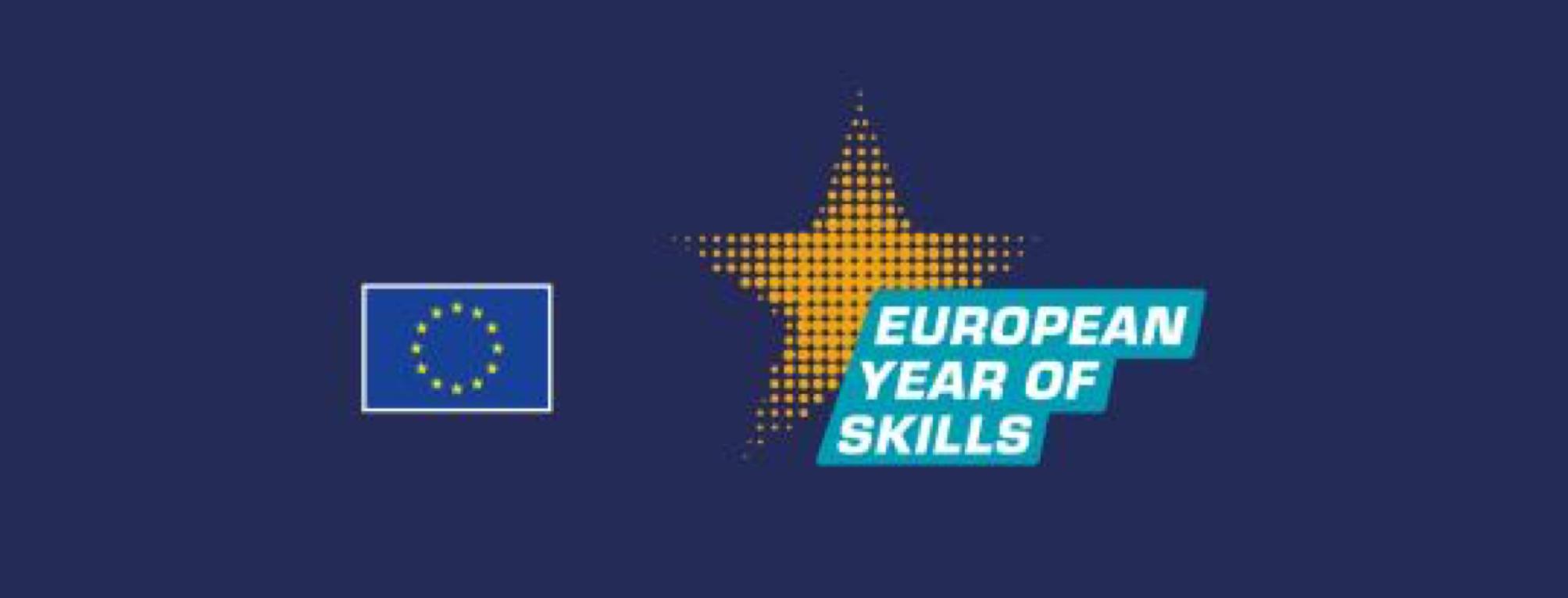
«The European Framework for Quality and Effective Apprenticeships (EFQEA) puts emphasis on the key role of teachers and trainers for quality learning. In-company trainers should cooperate closely with teachers and training institutions to provide guidance to apprentices and to ensure mutual and regular feed-back. Teachers, trainers and mentors, specially in micro-, small and medium-sized companies, should be supported to update their skills, knowledge and competences in
order to train apprentices according to the latest teaching and training methods and labour market needs. Moreover, the 2020 VET Council Recommendation also highlights the need for the staff to undertake initial and continuing professional development to deliver high quality training.
The Commission is supporting EU countries to implement these frameworks for example by making EU funding available for these purposes or by promoting mutual learning and good practices. For instance, the Commission has put in place an online Community of VET practitioners funded by the Erasmus+, EPALE where teachers, trainers, and incompany tutors can network and learn from colleagues across Europe, through its blog posts, forums, the Partner Search tool, complemented with physical gatherings».
Credits: DG EMPLOYMENT – EYS Team
SPECIAL EDITION Skillful Futures
– Mayor of Škofja Loka & member of the Committee of the Regions

Do you believe that the European Year of Youth has left a long-lasting legacy by involving young people in the design, leadership, implementation and assessment of policies at EU, national, regional and local levels? What did work and what has been left?
«No, at least not yet. We will have to evaluate the European Year of Youth legacy in a couple of years. What I find beneficial is an uplifted discussion about the need of Youth Policy mainstreaming and more political awareness towards it. For specific progress that EYY had in the youth participation in the design of policies, we will have to do proper research in the future».
Do you believe that the European Year of Skills is the right ‘continuation’ of the European Year of Youth?
«Yes, it is fortunate that some of the initiatives and political discussions that started during the European Year of Youth can continue with the European Year of Skills framework. While the policies and initiatives regarding skills do not only address the needs of younger generations, many do. That is creating new opportunities, which is great!».
As a member of the Committee of the Regions, how do you view the role of regional perspectives in shaping the success of the European Year of Skills, and how can local and regional authorities contribute to fostering inclusive skill development within their respective communities?
«Crucial. There are so many good things happening on the ground. I hope the European Year of Skills will be even more successful in reaching out to local and regional decision-makers. In my experience, much work is needed to foster European initiatives such as the European Year of Skills to the very different local realities. Not every local administration even has the capacity to follow, engage and promote the opportunities that arise from this initiative/s. However, the success of this initiative is largely dependent on exactly that - the capacity to take it to the local and regional level and successfully implement it for the benefit of young (or not so young) citizens. And there is the most important role of cities and regions».
Local and regional authorities are often at the forefront of implementing policies and programs related to youth employment and skills development. From your perspective, what are some of the key challenges and opportunities faced by local authorities in promoting inclusive skill development, and how can the European Year of Skills support them in addressing these challenges effectively? What are the main skills to be considered/to be developed for the future we are already living? (digitalisation, labor market, education, unemployment, etc.).
«The European Year of Skills can support the local and regional authorities in providing different platforms and opportunities for knowledge exchange, best and worst practice sharing and promoting skill development and skill mobility for future challenges. I would like to put importance on only a few out of many future skills that we will need to develop and enhance to unprecedented levels: like inclusivity, everything regarding addressing the digital divide, digital literacy, as well as skills related to green transition: renewable energy, resource conservation and eco-friendly practices and well as skills needed to adapt and mitigate the climate change».
Credits: European Committee of the Regions
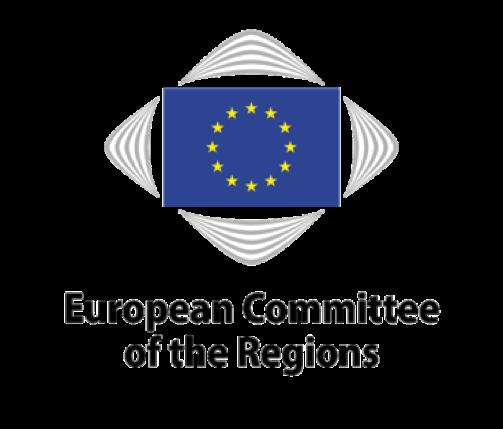
SPECIAL EDITION Skillful Futures
TINE RADINJA
KATRĪNA LEITĀNE – European Economic and Social Committee, CSO GroupNational Youth Council of Latvia
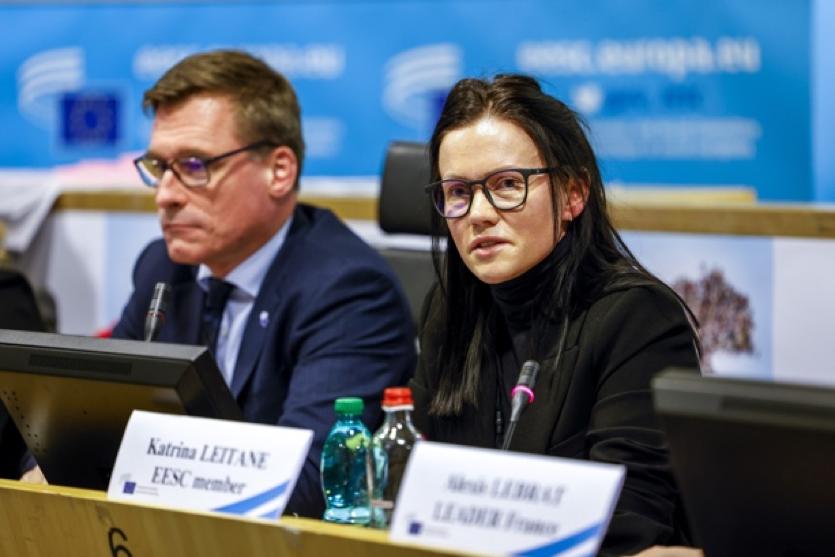
As a member of the EESC's Civil Society Organisations' Group and a representative of the National Youth Council of Latvia, how do you perceive the significance of the European Year of Skills in terms of equipping young people with the necessary skills to navigate the future of work, particularly in relation to emerging technologies and changing job market dynamics?
«The European Year of Skills (EYS) is an opportunity to shed light on existing and emerging challenges –such as the fast pace of technological developments and their impact on young people and the world of work. It is also a chance for the EESC to demonstrate the added value of organised civil society and of cooperation when it comes to finding solutions to our
common challenges and to call for its involvement to be strengthened.
Today's skills policies will determine the future of Europe, and young people must have a say in shaping that future. In its Resolution on the long-lasting legacy of the European Year of Youth: youth mainstreaming and empowerment 1, the EESC has called for high-quality and inclusive education and training and lifelong learning for everyone, not forgetting about the more vulnerable people in our societies. We want to empower young people with the skills and attitudes that enable them to participate fully in society, and to manage transitions in the labour market in a successful way.
1 EESC resolution on The long-lasting legacy of the European Year of Youth: youth mainstreaming and empowerment. SPECIAL EDITION Skillful Futures
Skills are key to building a more just, more cohesive, more sustainable, more digital and more resilient society. Having skilled workers is also important for ensuring a competitive Europe, alongside ensuring good working conditions, career predictability and access to opportunities. In its opinion on the European Year of Skills 2023 2, the Committee has called for a "skills guarantee" to offer the right to access quality and inclusive training for all. One element of such a guarantee would be paid educational leave, to allow workers to keep up with rapidly changing skills needs, notably due to the fast pace of technological change. Trends and changes should not be suffered but governed».
How is the European Year of Skills contributing to NEETs challenges?
«Despite an overall improvement of the labour market situation in the recent years, almost 12 % of young people between 15 and 29 years old were identified as NEETs in the EU 3, which represents more than 8 million young people disengaged from both education and the labour market. Thus, the Committee underlines this as one of our high priorities is the inclusion of these young people into education and training or employment. In the context of this European Year, the Committee is further promoting investing in a good quality and inclusive education and training, upskilling and reskilling of young people.
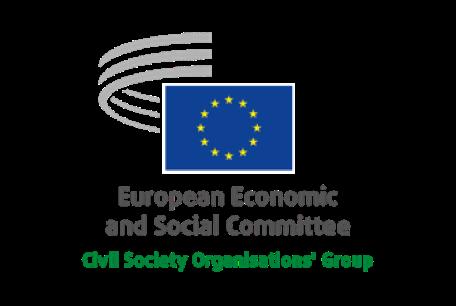
Investing in the skills of young people is investing in their future, in their career prospects, self-esteem and personal growth. At the same time, that is also an investment in our societies and competitive and innovative economies.
The Committee is particularly encouraging vocational education and training (VET), high quality traineeships and apprenticeships, which are known to smooth young people's transition into the labour market. The Committee plans to prepare an opinion on the European framework for traineeships, once the Commission will issue its proposal. On the 27 October 2023, we will also organise, together with the European Commission, an event that will showcase young people's skills excellence. Furthermore, at the
beginning of 2024, we will work with CEDEFOP on upskilling people who are low-skilled – including young people who are early school leavers and/or NEETs.
By providing policy incentives we have to ensure that all young people, even the most disheartened, have access to decent jobs and adequate education and training that are forward-looking and more able to adapt to change».
In your opinion, what role do inclusive policies play in ensuring that young people, including those from marginalised backgrounds, have equal access to skill development opportunities, and how can such policies be designed to address the specific challenges and opportunities presented by future technologies?
«First of all, we need to be aware that the pace of recovery for young people in many countries is falling behind that of the recovery for older people and notably older workers. Young people still suffer from a long-term “pandemic scar” in terms of education loss, economic loss and poor mental health. Therefore, EU's recovery must be youth-inclusive 4. The Committee is currently looking into the implementation of the national recovery and resilience plans (NRRPs) by EU Member States. The Recovery and Resilience Facility (RRF) includes measures to support youth employment and make education more resilient for some EUR 49 billion, or 11% of the total RRF budget. In an event on the 8 November, we will particularly look at the youth dimension in the NRRPs.
2 EESC (SOC/749) opinion on the European Year of Skills 2023, adopted in December 2022.
3 Eurostat, Statistics on young people neither in employment nor in education or training, 2023.
Beyond
SPECIAL EDITION Skillful Futures
4 Report produced by the youth organisation People Dialogue and Change and commissioned by the European Youth Forum, entitled
lockdown – the "pandemic scar" on young people.
Regarding the technological revolution, we need to ensure a socially fair and inclusive digital transition and we need efficient and comprehensive skills strategies to tackle challenges people face today, in particular the women, the young people, NEETs, people with disabilities etc.
Generally speaking, we must develop a long-term and coherent policy that meets the needs of young people, enable them to successfully integrate into the labour market and society and motivate them for lifelong learning.
The European Year of Skills should contribute towards clear plans and real engagement from all relevant actors. Policies need to be designed with the full involvement of civil society organisations and young people themselves. Their involvement would guarantee that policies respond to the actual needs of young people and would also ensure ownership of reforms, which is crucial for an effective implementation».
Artificial intelligence is driving the workforce transformation; it is capable of performing sophisticated tasks and assisting workers across all sectors of society. This is leading to an increasing need to advance skills acquisition and training. How/where do NEETs fit into this picture, including with respect to the European Year of Skills' main goals, especially considering the rapid advance of technologies? What actions should be taken to promote digital inclusivity in skills development policies and programmes?
«Trends such as digitalisation, automation and globalisation have been driving huge shifts in how we live, learn and work. The demand for some skills has been in decline, as new jobs are being created that require different skills and mean new requests from the labour market that call for new skills.
To properly prepare for the changing world of work –shaped by globalisation, the climate crisis, demographic change and technological advancements – governments and institutions must consider the impact of each of the trends and deliver a youthinclusive recovery, protecting young people's social and economic rights. National policy responses have to go hand in hand with the development of social
protection and labour rights, educational programmes and training initiatives.
Youth-specific, inclusive and forward-looking policy interventions are crucial to ensure that young people are not left behind. We particularly need to pay attention to NEETs and those at risk of poverty or social exclusion.
The 2023 European Year of Skills is expected to support the EU's 2030 digital targets. One of those targets is that 80% of adults should have at least basic digital skills, while currently almost half of the EU population has no or a very low level of digital skills. Also, another target is to have 20 million ICT specialists employed by 2030. However, the development of digital skills must be done in a manner that is both focused and inclusive. New technologies must promote inclusive employment, rather than exacerbating inequalities. For example, we need to increase the participation of girls and women in science, technology, engineering and mathematics (STEM) careers and education. Today, only 2 out of 5 scientists and engineers are women and only 18% of specialists in ICT are women 5.
In their Recovery and Resilience Plans, the Member States have allocated EUR 130 billion to measures supporting the digital transformation – 26% of the total allocation of the plans. Of this, almost EUR 23 billion is earmarked for digital education and digital skills development. Implementation is now of the utmost importance, with the involvement of all the relevant stakeholders and leaving no one behind».
Credits: EU
5 European Institute for Gender Equality, Gender equality index 2020: key findings for the EU, Publications Office of the European Union, 2021. SPECIAL EDITION Skillful Futures
ANNE HEGE STRAND – Fafo, Knowledge about labour, education, welfare and migration nationally and internationally

«The European Year of Skills can draw attention, initiative, and funding, to one of the most important issues for European societies: namely, to successfully include young people into the labour market. Linking young people with employers through skills enhancement is the best investment Europe can make for building a sustainable future».
As a researcher, what do you see as the key barriers that hinder the inclusion of NEETs? And how can the European Year of Skills initiatives, and related policies, effectively tackle these barriers?
«Unfortunately, there are still too many barriers hindering young access to employment. It can be useful to classify barriers into two group: individual and structural.
In terms of individual barriers young NEETs frequently lack work experience and the skills required to enter the labour market, there are also many who are insecure, lacking self-esteem, or suffer from depression or anxiety. I think a lot of focus and effort is being put into solving this issue, and the European Year of Skills is one important contributor here.
As a researcher at the Norwegian research institute Fafo, which places emphasis on understanding the conditions for participation in working life and society, how do you see the European Year of Skills contributing to the goal of promoting inclusive policies and addressing the specific challenges faced by NEETs in accessing education, employment, and training opportunities?
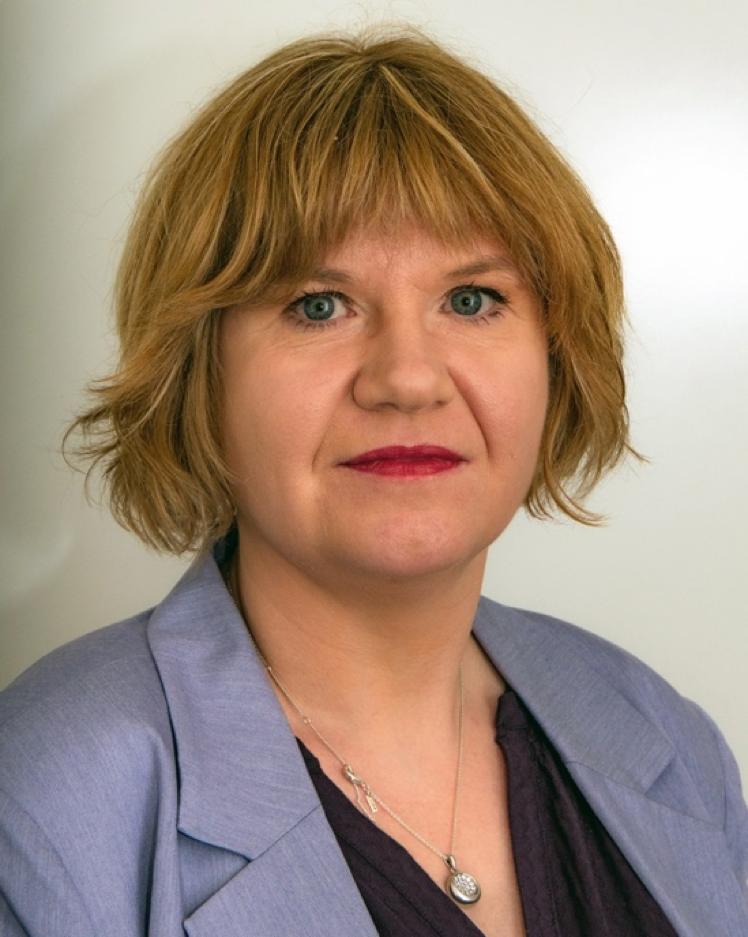
SPECIAL EDITION Skillful Futures
On the other hand, there are also major structural barriers hindering young to enter labour markets. In the future we need to pay more attention towards these. A productivity barrier hinders employers tacking a chance on young people for fear that this will reduce the company’s profits. This is about a skills mismatch between employers’ expectations and young people’s position in the labour market. But also, about employers sometimes taking the advantage of young people through no-pay or low pay opportunities. This issue needs to be raised on the broader policy agenda to solve the European NEET problem. Furthermore, young meet a facilitation barrier, that is employers lacking the skills or interest in providing opportunities for young in their businesses. To solve this problem, we need a much stronger focus on how to engage employers. Basically, we need to upgrade employers’ skills on how they can become better at employing young people. We also need to look at labour market regulations. For this we need a much closer dialogue with employers, unions, educational institutions, NGOs and policy makers. For example, many NEETs with completed education and good formal skills say they are excluded from the labour market because employers only recruit people with experiences.
This becomes an unnecessary catch 22 situation for young people. We need to find ways of making employers providing on the job training schemes, and to basically give young people a chance to step into the labour market, without taking advantage of young. For this to work we need improved knowledge on how employers think and act. Lastly, there is also a discrimination barrier. It is therefore necessary to also draw attention towards employers’ attitudes towards gender equality, race, disability, and poverty. We need to improve regulation and enforcement of equal opportunities to help young gain access to labour market».
researcher’s views there seems to be this idea that evidence-based methodology in the meaning of randomised control trials holds some form of golden standard for evaluating new initiatives and programmes. This method may be good at providing a very precise answer as to whether a specific intervention has the intended effect or not, but is often less able to explain why. I think it is important that research is broad and include all types of methodologically approaches including qualitative methods, policy analysis and discursive analysis to grasp the often complex and multi-faceted interactions between NEETs, local contexts, policy programmes and employers».
Considering the changing nature of work and the increasing importance of digital skills, how can we foster the development of futureoriented skills that empower young people, including NEETs, to navigate a rapidly evolving job market and create pathways to sustainable employment?
«Young people will need digital skills, however, all other types of skills would still be valuable in the future. Social skills, and entrepreneurship and the ability to adapt and be flexible is probably also going to be very important skills in the labour market of tomorrow».
Click here for some interesting reflections about the Impact of EEA & NORWAY Grants
Credits: FAFO
From your perspective, how can research and evidence-based knowledge contribute to shape inclusive policies and programs that effectively address the needs and aspirations of young people, particularly those at risk of becoming NEETs?
«Research is, in my opinion, crucial in documenting efficient policy initiatives and practices. In some
SPECIAL EDITION Skillful Futures
QUINTINI –OECD, The Organization for Economic Cooperation and Development
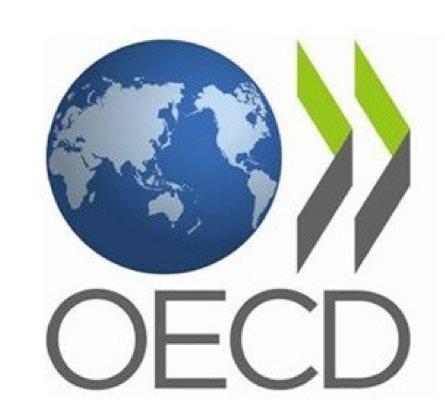
How is the OECD advising member countries for the future of work, ensuring inclusive and equitable access to quality skills development opportunities in the face of technological advancements, automation and digitalization?
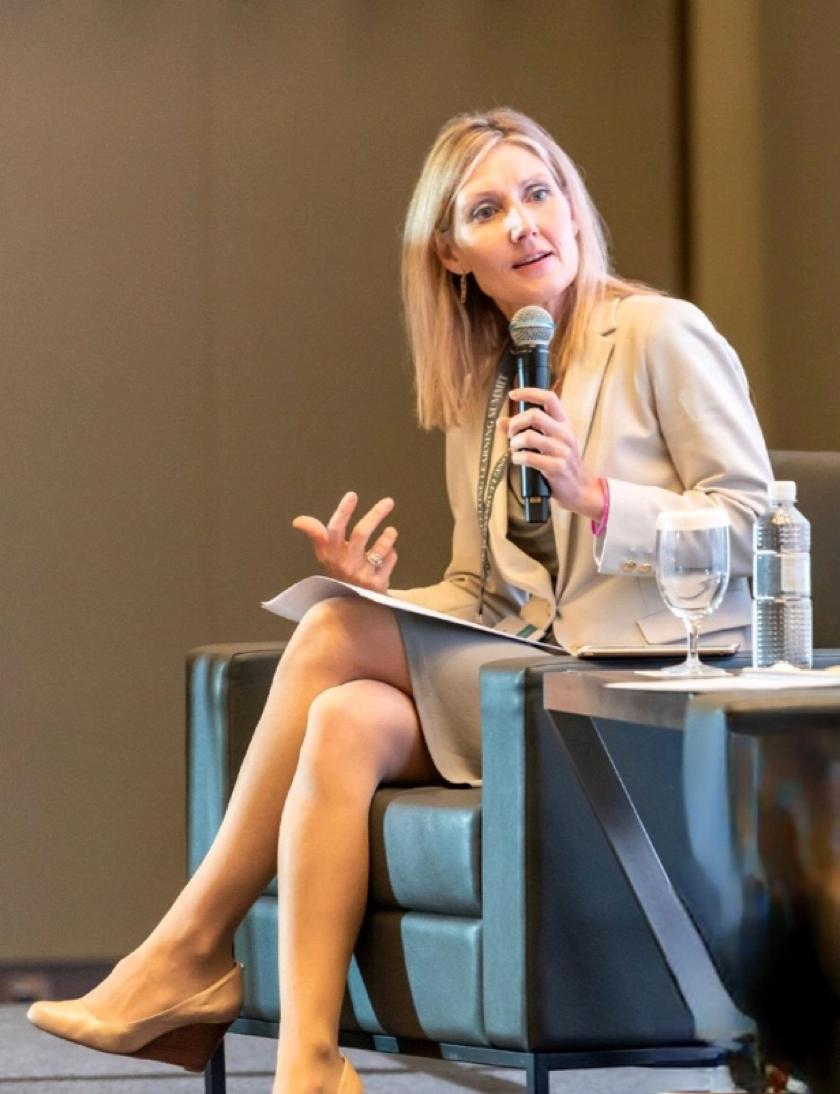
«The OECD is working very closely with member countries on two fronts. First, we are helping countries understand how jobs and skill requirements are changing in the context of the future of work. This is essential to develop education and training systems that are responsive to these changes and to identify viable transitions for workers who may lose their jobs as a result of structural change. Second, we are supporting countries in making their training systems future ready. In other words, we need training systems that provide opportunities to learn that are attractive, affordable and effective».
What innovative approaches is the OECD promoting to foster inclusive skills ecosystems that address the needs of diverse populations, including marginalised communities, persons with disabilities, and individuals facing social or economic disadvantages?
«Over the past few years, we have conducted in-depth analysis of the reasons why adults do not train. The vast majority – a good half of the adult population – do not even think of training as a concrete option for them. This is even more so for adults who face multiple disadvantages. This group do not understand the value of training or have not been able to identify opportunities that are relevant for them. Another 10-15% report barriers such as: the lack of time, for work or family responsibilities, the financial cost, and the fact that training is provided at an inconvenient time or place. All this points to the importance of helping adults navigate training and employment opportunities through quality career guidance. It also underscores the importance of providing flexible and modular training that are certified and can be stacked to achieve a qualification down the line. Training leave and financial subsidies are also essential to encourage underrepresented groups to train. Online provision can also broaden access for marginalised communities and people with disabilities».
GLENDA
SPECIAL EDITION Skillful Futures
How is the OECD supporting EEA/EU member countries in developing future-oriented skills anticipation and matching systems to ensure that individuals acquire the skills demanded by evolving labor markets, thus enhancing their employability and reducing skills mismatches?
«We are working very closely with countries to address weaknesses in their skills assessment and anticipation systems. Often, this is a matter of strengthening the involvement of all stakeholders, of collecting information in a formal and at a granularity that is optimal for policy making, of disseminating the information that is generated in an effective way. We have conducted work on skills assessment and anticipation systems in general but also on specific sectors/issues such as the health workforce and the green transition. In our experience, the key challenge is always translating the information that is generated into valuable policies insights. Few countries use the information optimally to steer employment, education and training, and migration policies».
What research and policy insights is the OECD providing to address the potential impact of climate change and sustainability transitions on skills requirements, and how are member countries being encouraged to invest in green skills development for a more sustainable and inclusive future?
«The first piece of advice we provide to countries is to set up systems that measure the employment and skill implications of the green transition. For too long, we have disregarded the implications of mitigation policies on the labour market but the consequences could be quite significant. We expect that the green transition will bring about a modest employment gain overall but the distributional consequences are likely to be significant, hence a need to support workers who need to change occupation or sectors. Unless we act swiftly, the green transition is also likely to be slowed by skill shortages in crucial areas. Scaling up adult learning systems and adapting training content to include elements of greening will be crucial for workers, firms and governments».
Credits: OECD
SPECIAL EDITION Skillful Futures
ILO, International Labour Organization
How is the ILO advocating for the inclusion of marginalized and vulnerable groups in skills development programs to ensure equitable access to quality training opportunities in the face of evolving labor market dynamics?
«The new ILO Strategy on Skills and Lifelong Learning 2030 outlines ILO’s approach towards making skills systems more inclusive, with special attention to women, youth, migrants and refugees, and other disadvantaged groups. Through this strategy, the ILO emphasises the role skills systems can play in overcoming inequalities faced by disadvantaged groups and achieving social justice.
The ILO develops and disseminates tools and guidelines to support its constituents to build more inclusive skills development systems, which effectively tackle the diverse barriers to training and decent work encountered by vulnerable groups. For instance, the 2020 “Guide on making TVET and skills development inclusive for all” helps decision-makers and TVET practitioners assess to what extent their TVET system is currently excluding certain individuals or groups, identifies underlying reasons, and provides practical ideas on what could be done to redress inequalities. The guide includes several self-assessment tools to initiate reflection and learning

Another tool is the "Upgrading informal apprenticeship - A resource guide for Africa". Informal apprenticeship refers to the system by which an apprentice acquires the skills for a trade or craft in a micro or small enterprise learning and working side by side with an experienced practitioner. Apprentice and master craftsperson conclude a training agreement that is embedded in the local norms and traditions of a society. In some African countries, informal apprenticeships, constitute up to 90 per cent of national skills provisions. ILO's approach is to preserve successful practices while addressing shortcomings including various interventions to enhance training quality, working conditions, skills recognition, financial arrangements, and promote gender inclusivity.
The ILO also provides technical assistance for improving skills financing as it believes tailoring skills financing mechanisms for disadvantaged learners is crucial for their full participation in skills development. For instance, in 2020 the ILO published a Review of Skills Levy Systems in Countries of the Southern African Development Community that makes country-specific, high-level recommendations and provides national training funds reviews.
Skillful Futures SPECIAL EDITION
Furthermore, the organization promotes gender action plans to increase the number of women in STEM careers, and the share of men in care occupations, as well as interventions to eliminate violence and harassment by skills providers or workplaces. The Women in STEM Programme is one such initiative that has empowered women in Indonesia, the Philippines and Thailand to gain technical skills and transition to STEM-related careers in ICT, ITBPO, and electrical and electronics industries respectively.
Moreover, the ILO seeks to aid individuals in rural areas by linking employment opportunities with the necessary community-based vocational training through its Training for Rural Economic Empowerment (TREE) programme.
Another significant area of focus is the ILO’s work to combat forced labour through quality skills development. To address this challenge, the ILO has produced Global guidelines on the prevention of forced labour, as well as the economic reintegration of victims of forced labour.»
How is the ILO collaborating with EEA/EU states and stakeholders to foster social dialogue and promote inclusive labor market policies that address the changing nature of work and facilitate the fair and equitable distribution of the benefits of skills development?

«Effective governance of work relies on social dialogue among governments, employers’ organizations and workers’ organizations. The ILO’s unique tripartite structure fosters collaborations and consensus-building between the different stakeholders in skills systems, thereby promoting social dialogue. The International Labour Conference (ILC) is a key part of ILO’s commitment towards engaging in social dialogue, wherein experts from government, workers’ and employers’ groups develop recommendations on labour market policies. The EU and its Member States contribute actively to these standard-setting practices as well, as evidenced in the Recommendation concerning quality apprenticeships that was adopted at the 111th session of the ILC in June 2023.
To further advance its work in skills development, the ILO undertakes different partnerships with EU states, with one such example being the collaboration between ILO and the Government of Norway for skills and lifelong learning for the Future of Work. This agreement aims to skill, reskill, and upskill individuals, contributing to the ILO Global Programme on Skills and Lifelong Learning. Another recent example comes from the formation of the Inter-Agency Working Group on Career Guidance between the European Centre for the Development of Vocational Training (CEDEFOP), the European Commission, the European Training Foundation, OECD, the ILO, and other international organisations that work on access to lifelong learning solutions for all workers.»
What initiatives and partnerships is the ILO undertaking to anticipate and address emerging skills gaps and promote lifelong learning in the context of the future of work, ensuring that individuals can adapt and thrive in an evolving labor market?
«The ILO helps constituents align skills development with labour market demands, taking into account challenges arising from industrial, sectoral, trade, technology, and environmental policies. To address the changing nature of the world of work, the European Training Foundation, CEDEFOP, and the ILO have partnered up to produce guides on Skills needs anticipation by using labour market information, developing skills
SPECIAL EDITION Skillful Futures
foresights, scenarios and forecasts, working at the sectoral level, the role of employment service providers, developing skills surveys, and finally on running tracer studies.
The ILO has also developed the Skills for Trade and Economic Diversification (STED) program that aims at offering sector-level technical assistance to identify the necessary skills development strategies for achieving future success in international trade.
ILO’s technical support enables countries to anticipate skills needs, minimize mismatches, and enhance systems and institutions. It also produces relevant research such as the Skills Innovation Facility that presents innovative solutions for handling dynamic labour market and societal changes. Another goal of the ILO is to facilitate just transitions through skills development, evident in projects undertaken for green and digital transitions. For example, the ILO has developed a guidance tool for Greening TVET and skills, supporting countries in enhancing their Greening TVET agenda and transforming training practices.
Additionally, ILO’s report on the Digitalization of national TVET and skills systems provides a comprehensive approach towards digitalization across different functions of skills systems and introduces key frameworks and tools to deploy a strategic approach at the country level.
Lastly, on an UN-wide level, the ILO participates in the global initiative on Decent Jobs for Youth which seeks to improve decent work access for youth worldwide. Through these various initiatives and collaborations, the ILO continues to contribute to the advancement of inclusive skills development for all and achieving social justice.»
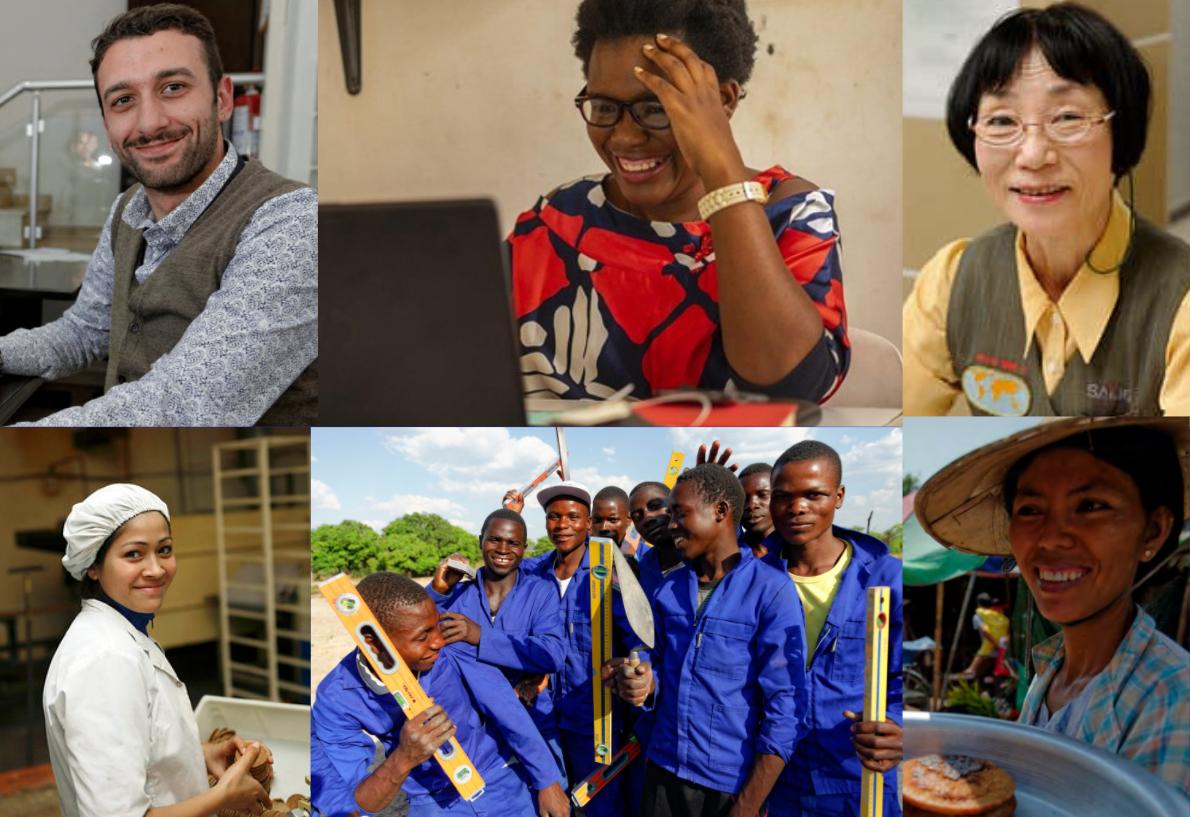
Christine Hofmann, Skills and Employability Specialist, Team Lead Skills for Social Inclusion, Skills and Employability Branch, ILO
Julien Varlin, Project Technical Officer on Skills for Social Inclusion, Skills and Employability Branch, ILO
Supported by Ipsa Banerjee, intern in the Skills and Employability Branch, ILO
Credits: ILO
SPECIAL EDITION Skillful Futures
EUROPEAN TRAINING FOUNDATION – ETF
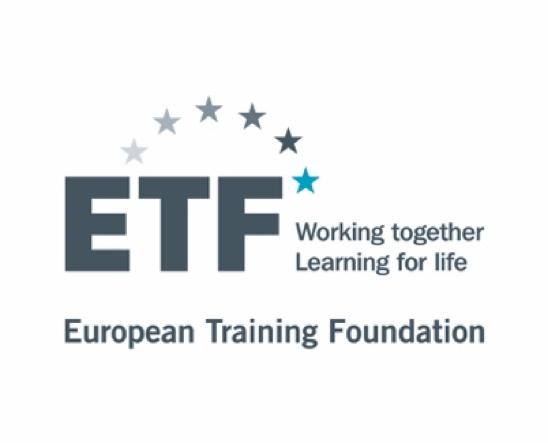
Is the European Year of Skills an opportunity, that can be considered instrumental in highlighting the significance of skills development in promoting youth employability and addressing the changing needs of the labor market?
«The transition from the European Year of Youth to the Year of Skills has provided us with a valuable opportunity to maintain a continuous dialogue with stakeholders concerning youth employability. It has also allowed us to emphasise the crucial roles of upskilling and reskilling while directing attention to the significance of labour mobility. The Year of Skills brings a fresh perspective, enabling us to explore various aspects of youth employability. This includes a focus on the local dimension, where we address the needs of communities and specific economic sectors. Additionally, it encompasses the international dimension, where we consider new approaches to international cooperation for skills development and labour mobility. This shift allows us to delve into diverse opportunities and strategies for enhancing the employability of young people, both at home and on the global stage».
How is the ETF promoting skills development processes with respect to the European Year of Skills? How these efforts are contributing to enhance the employability of young people?
«The European Training Foundation's (ETF) specific mandate places significant importance on recognising the skills and qualifications of third-country nationals. This positions the ETF at the heart of the European Year of Skills, as we continue to support our partner countries in modernising and enhancing the quality of education and training systems for all citizens. Simultaneously, we also play a crucial role in facilitating dialogue to promote the recognition of skills and qualifications, thereby supporting the mobility of workers.

SPECIAL EDITION Skillful Futures
Our primary objective is to foster a partnership approach, benefiting not only the receiving and sending countries but also the individuals involved. This approach entails ensuring the provision of high-quality education and training, enabling the portability of skills and qualifications, and respecting the right of each person to migrate. Additionally, it allows for opportunities to choose not to migrate, promoting fairness, economic growth, and social development in all countries through EU investment, cooperation, and partnerships. By prioritising these principles, we strive to create a more inclusive and successful future for everyone involved».
Which are the tools that are implemented (and need to be implemented) to ensure that skills development processes are future-oriented and responsive to the evolving needs of the labor market?
«The ETF’s work encompasses three key areas worth highlighting. Firstly, there has been a substantial increase in our investment towards understanding the demand for skills in specific economic sectors. We have successfully conducted numerous studies focusing on energy, construction, agri-business, automotive industries, and even artisanal crafts. This approach is crucial as it addresses not only the emergence of new occupations, but also the transformation of traditional jobs, many of which hold immense importance for communities and societies, including their cultural aspects.
Secondly, we have placed significant emphasis on assessing the impact of the green transition on various occupations. This involves mapping the evolution of skills investments, especially in relation to upskilling and reskilling, across all countries. We are also closely monitoring how vocational schools are adapting to meet these evolving demands.
Finally, our efforts have intensified to ensure that these endeavours are carried out with a steadfast commitment to promoting fairness. This is particularly relevant in a world marked by increased flexibility and job insecurity. We are actively engaged in crafting robust labour market policies and facilitating smooth transitions from school to work, aiming to foster a more equitable and stable environment for all individuals.
Through these three focal areas, the European Training Foundation is dedicated to enhancing skills development, supporting economic transitions, and contributing to a brighter future that embraces both innovation and social well-being».
How could new societies address the actual challenges and needs in terms of skills/competencies processes, if one considers young generations? How does ETF envision collaborating with stakeholders, including employers, education providers, and youth organisations, to foster a sustainable and inclusive approach to skills development?
«For the ETF, the path ahead primarily revolves around fostering cooperation among various stakeholders. Collaboration has been a strength of our work across partner countries, but looking forward, we recognise the need for an even wider range of stakeholders in policy-making and actions. The growing demands for upskilling and reskilling, for instance, necessitate increased engagement from companies, intermediary actors, innovation partners, training providers, and civil society organisations. This is not an easy task, and there is a significant amount of work to be done.
We have observed that Centres of Vocational Excellence and ERASMUS+ projects play a vital role in accelerating the delivery of our vision and objectives. They contribute to enhancing the skills of youth in both education and the workforce.
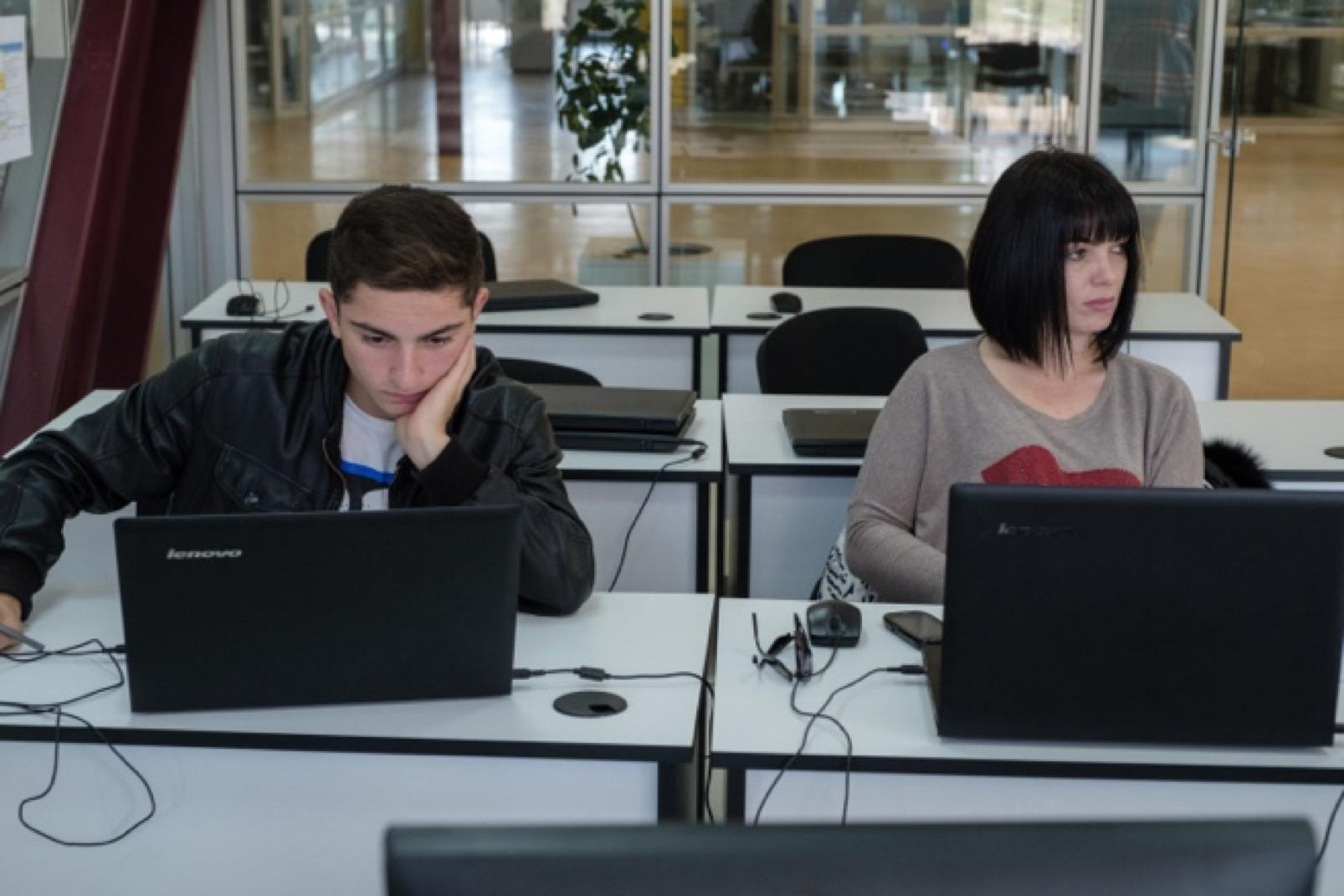
SPECIAL EDITION Skillful Futures
However, a critical challenge that still needs to be addressed in most countries is the disengagement of young people from education, training, and the labour market. The alarming number of NEETs (young people not in education, employment, or training) in some countries, reaching almost 30% of youth, is a distressing statistic. It reflects a failure to secure a promising future for our young people. In this context, Youth Guarantee schemes offer part of the solution, but it is evident that we need to implement more of these initiatives in the coming years. Addressing this issue and ensuring that all young individuals have access to education, training, and meaningful employment opportunities is crucial for securing a prosperous and sustainable future. The ETF remains committed to working with all stakeholders, including governments, businesses, educators, and civil society, to tackle these challenges and create a better future for our youth. By standing together, we can empower the next generation and build a brighter future for all».
In the context of skills development, how does ETF prioritize and promote inclusion to ensure that young people from diverse backgrounds, including those facing social or economic disadvantages, have equal access to quality training opportunities and are equipped with the skills needed to thrive in the labor market?
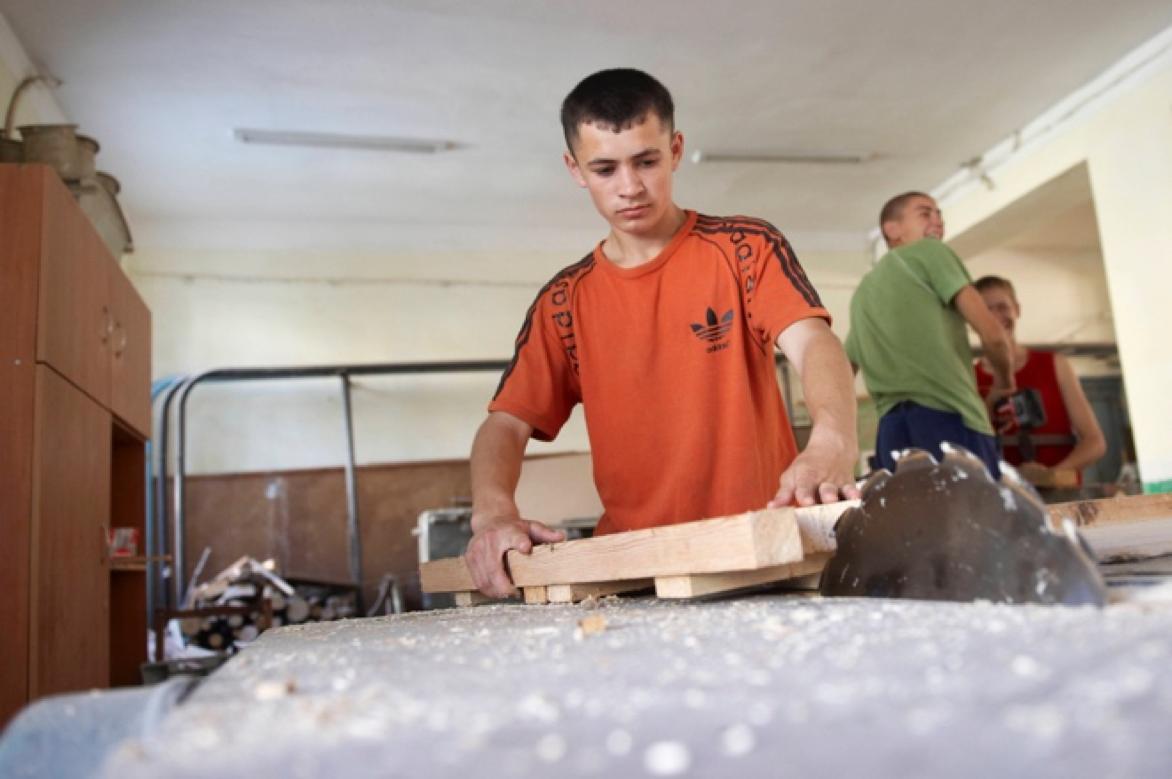
«An essential aspect that contributes to a better future is the provision of career guidance services coupled with continuous investment in innovative teaching and learning methods. These two elements have the potential to engage young people from diverse backgrounds, support traditional teaching approaches, and expand learning environments to address the unique and specific needs of individuals. Career guidance plays a pivotal role in shaping a person's learning journey and life. It offers orientation, instils confidence, and provides crucial support, among other benefits. Moreover, certain professional roles, such as youth workers, face challenges in integrating and gaining recognition within conventional training and labour market systems. To address this, collaboration among education and training providers, youth organisations, and public employment services becomes crucial. Working together, they can create a comprehensive system at both local and international levels to support individuals effectively. By synergizing their efforts, they can pave the way for a more inclusive and empowering education and employment landscape».
Recognising the crucial role of mentors, trainers, and youth workers (whether employed and/or volunteers) in supporting skills development, how does ETF foster collaboration with these stakeholders to ensure effective guidance and mentorship for young people, particularly those from underrepresented groups, and how does ETF support their capacity-building efforts in this field?
«The ETF has placed significant emphasis on collaboration with other international actors like ILO and UNICEF, aiming to reform systems and support mentors and counsellors. We focus on recognising their importance and providing guidance to enhance their competences both in policy and practice. Notably, we have implemented successful initiatives in countries like Lebanon, Ukraine, Serbia, Armenia, and Azerbaijan, where practical training for practitioners in this field has seen growing interest. In January 2024, the ETF, in partnership with UNICEF, will release a dedicated publication on this topic. It will highlight the significance of mental health for young people and underscore the role of mentors and counsellors in guiding youth towards positive engagement within their communities and in their education and professional lives».
Credits: European Training Foundation
SPECIAL EDITION Skillful Futures
education, could you highlight the importance of vocational education and training (VET) in today's rapidly changing job market? How does VET contribute to equipping individuals with the skills and competencies needed to meet evolving industry demands?
Indeed, vocational education and training has a vital role in facilitating economy’s changing skill needs. For instance, according to Cedefop Skills Forecast, residential care and social work will be one of the fastest growing sectors to 2035, which to a certain extent is attributed the intensification of ageing of population and is estimated to grow by almost 7.5% in the decade ahead. Health associate professionals and personal care workers are amongst the largest groups of occupations within the sector and are also VET-related. Therefore, to be able to meet such future demands in both numbers and quality, VET will have to play a key role.
A successful skills system is a key factor in driving
ILIASLIVANOS LIVANOS Cedefop, European Centre for the Development of Vocational Training
ILIAS LIVANOVCedefop, European Centre for the Development of Vocational Training
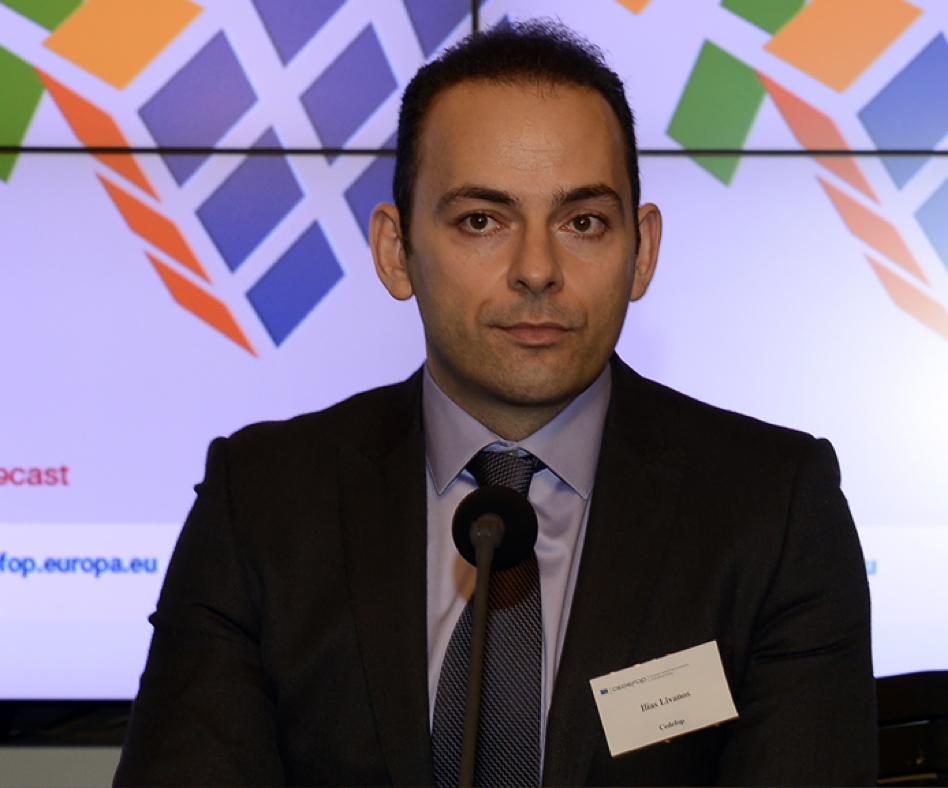
work. Cedefop has elaborated a composite indicator, namely the European Skills Index, aiming at assessing the performance of European Skills Systems, looking at all these components. VET is, of course, a key component of skills development and indeed we observe that investing in VET is positively related to a better skills system performance.
CEDEFOP provides insights on skills intelligence and trends. How will the key mega trends be evolving to the decade ahead and what are the challenges these bring?
economic
growth and social cohesion. From your perspective, what are its main components and what is the role of investing in vocational education, both for individuals and society as a whole?
Traditionally, when we think of the skills system, we tend to focus on skills development only. But other aspects, such as skills activation and skills matching are equally important. In other words, it is not only how we create the skills needed, but also how we facilitate the process of these skills been used in the labour market, and ultimately how we make sure that the skills developed and activated are matched at
Skills intelligence is an expert driven process aiming at translating data into insightful information. On the supply side, ageing is due to continue to 2035, and this will have an impact on the future workforce. The challenge this brings is that the ‘core’ workforce, say those aged 25 to 55, is thinning while the share of older workers (55+) is constantly being increased. On the demand side, driven by transitions such is digitalization, employment is due to become more skills intensive and in fact almost all new jobs (that is jobs due to expansion rather than replacement) will be for highly skilled occupations. Thus, the role of education and training is becoming even more crucial as it will need to adapt fast to secure that the workforce in the decade ahead will be both available and able to respond to simultaneous and often opposing forces.
SPECIAL EDITION Skillful Futures
LIVANOS
In the light of the digital transition taking place in the post-Covid world, what are the needs in terms of upskilling and reskilling and how can vocational education play a role in facilitating the transition?
During Covid, according to Cedefop Skills and Jobs Survey, almost half of European workers saw new digital technologies being introduced at their workplace while in the post-Covid world, about four in ten workers have started using technology to perform their tasks at work. Nevertheless, exposure to upskilling for the new technologies is considerably lower for certain ‘vulnerable’ groups such as females, older workers, and the low educated despite them having reported the greatest digital skill gaps. At the same time, labour market participation rates also remain at lower levels for such workers, reflecting to a certain extent a restricted skills potential. Effective vocational education programs must be seen as a vehicle for alleviating digital skill gaps and facilitating, thus, the digital transition.
Dr Ilias Livanos, Cedefop expert in Skill trends and intelligence

ilias.LIVANOS@cedefop.europa.eu
Credits: CEDEFOP
SPECIAL EDITION Skillful Futures
Job Market’S Best practices from the South of Italy aiming to promote conscious choice processes and to reduce the gaps between labor supply and demand
Two initiatives, common goals and mantras. ‘Insieme Creiamo il Futuro’ (together we create the future) and ‘#ORIENTAlife’ come from the South of Italy, particularly Calabria and Campania, two Regions that – in general – share common issues (when talking about Youth) with the rest of Southern Europe.
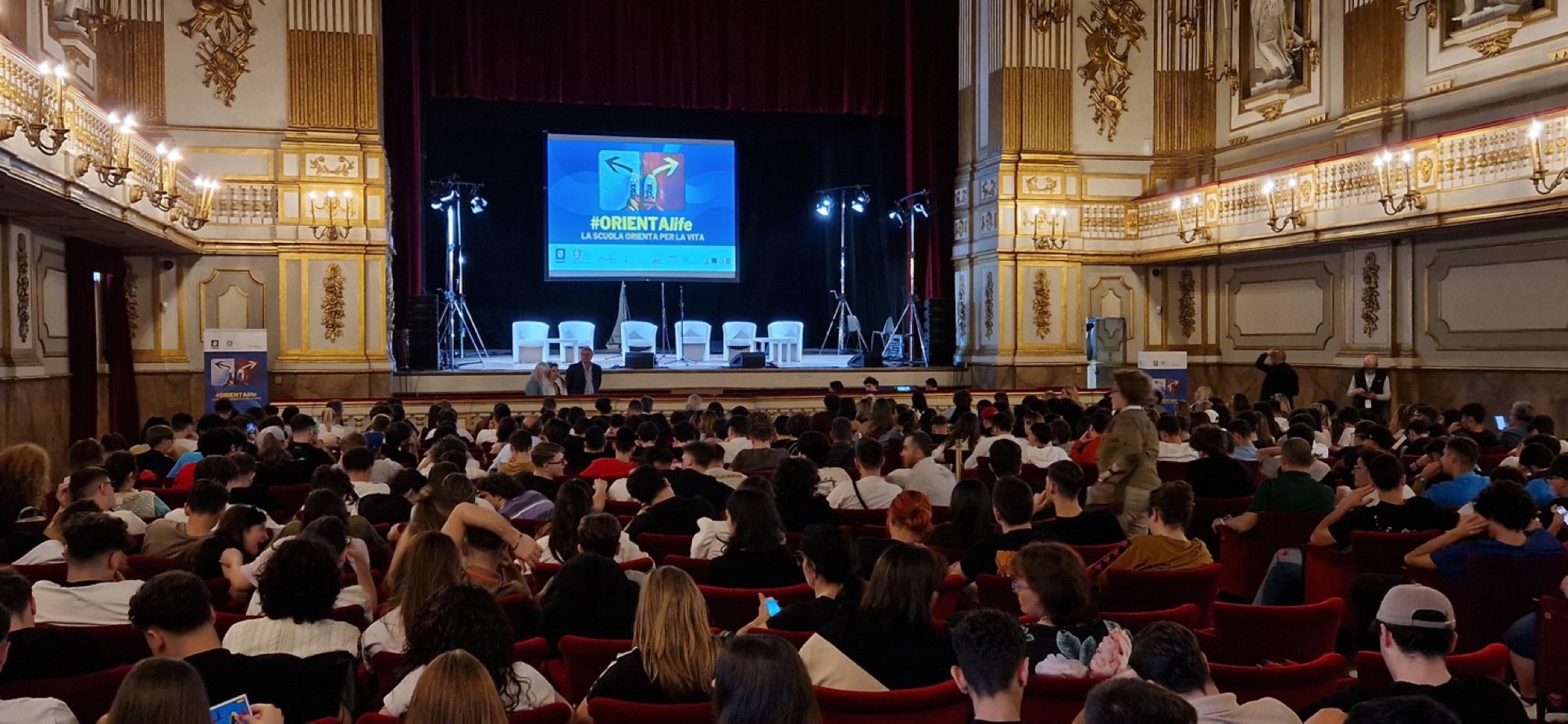
Thanks to their efforts to enhance the school as a protagonist and active interface between young people, the world of work and the professions, involving students on the one hand and a multiplicity of actors present in the area on the other, the two projects are here presented as best practices with qualities capable of being considered as replicable in other territories.
Particularly, the strength of ‘Insieme Creiamo il
Futuro’ (together we create the future) has been to create a concrete connection between the the roles and skills of significant players in the Ministry of Labour and the world of school, including trainings’ and work’ needs of outgoing students, therefore responding effectively and promptly to the needs of the labor market to integrate active policies, training policies and labor demand by placing them at the service of the social and employment growth of a territory.
The network has been constituted by involving a socalled ‘Centro per l’impiego’ (which is, in Italy, an Employment Center of the public administration, with regional competence, responsible for implementing public policies on employment and providing services in favor of the local labor market), ‘5 Scuole’, Confindustria (the main representative
‘Insieme Creiamo il Futuro’ & ‘#ORIENTAlife – the school that guides for life’
Anpal Servizi SPECIAL EDITION Skillful Futures
organisation of Italian manufacturing and service companies), the Order of Labor Consultants and the Chamber of Commerce together with the support ANPAL Servizi S.p.A. (National Agency for Active Labor Policies), the main public company which, in Italy, operates in the field of active employment policies.
This agency is at the heart as well of the second initiative here presented, ‘#ORIENTAlife’, born following the signing of an Agreement in November 2021, between the Campania Region, the Regional School Office and, as said, ANPAL Servizi S.p.A. to promote and support guidance courses in educational institutions and in the system of higher technical institutes, particularly implementing activities in schools to strengthen guidance actions, with the aim of enabling students to acquire those guidance skills useful to support them in decisions regarding their educational and professional future. At the same time, the initiative helped to implement a strategy able to involve all the main actors of the Ministry of Labor to respond profitably to the challenge of employability and the transition to work.
Particularly, ‘#ORIENTAlife’ arises from the awareness of the importance of guidance as a
strategic factor to reduce early school leaving and ensure the educational success of male and female students. Education in choice, self-knowledge and one's vocations are fundamental conditions for guaranteeing the best opportunities for cultural, economic and social growth for the new generations, promoting inclusive development. The aim is to support secondary schools in creating a "lifelong orientation" path aimed at facilitating students' selfknowledge, the educational context and the development of the skills necessary to develop a life plan. An orientation seen at 360 degrees as orientation to life, as a process capable of contributing to the growth of the personality and to the definition of a life project that is consistent with one's attitudes and expectations. All of this, from the point of view of #ORIENTAlife, cannot be achieved except through a teaching that can be qualified as a guideline.
The aim of the project, in addition to that of strengthening the guidance skills of the students, is to increasingly consolidate the collaboration between the network of public bodies involved in the guidance processes and the system of companies interested, obviously, in a dialogue increasingly close with schools and training institutions in general.
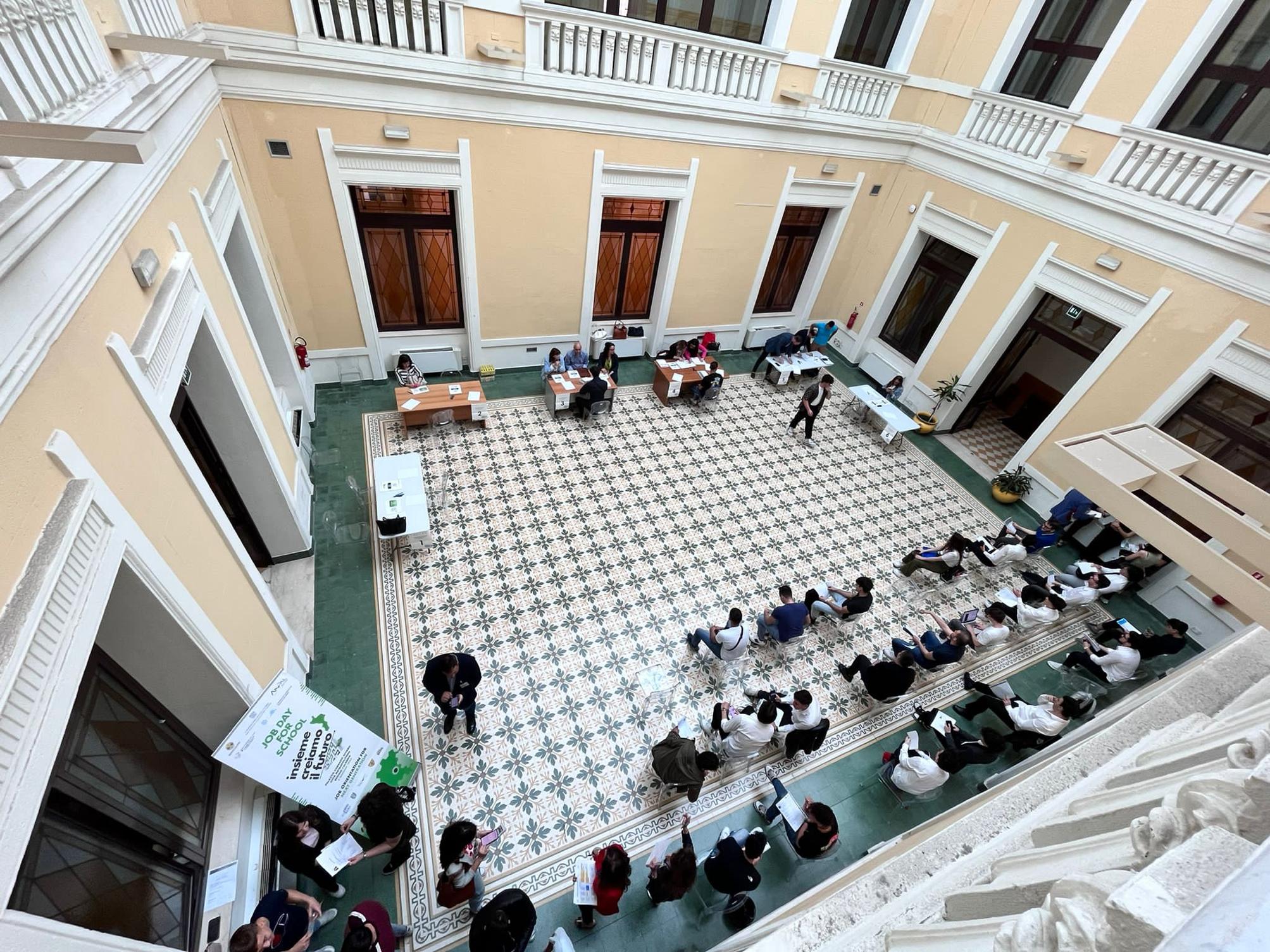
SPECIAL EDITION Skillful Futures
Orientation has been fundamental as well for the activities implemented under ‘Insieme Creiamo il Futuro’, whose purpose was to create an aid in terms of services, in particular those of guidance, provided to young people and students in transition through taking charge, qualitative-quantitative profiling, specialist guidance, up to accompaniment at work. Services capable of guaranteeing high standards of proximity, also facilitating the process of matching supply and demand by companies. All by also facilitating the collection of professional and training needs of companies, enhancing the role and support of stakeholders also through the construction and implementation of a dynamic mapping of the professional needs of companies and the skills required, also to identify innovative skills, and in line with the characteristics and evolutionary prospects of the territorial demand in connection with the needs of the companies, with respect to the professional profiles and skills required, contributing to the process of updating and introducing new professional profiles in the regional repertoire. Thus, the professional needs of companies were connected with the potential skills of outgoing students, also in relation to the possibility of aligning skills with on-the-job training realignment courses, aiming to reduce the skills gap that hinders the transition from school to training, to work, up to the company.
Among job days for schools, transition guidance workshops, profiling activities, mapping of outgoing profiles and collection of professional and/or training needs, ‘Insieme Creiamo il Futuro’ got those results:
• 52 companies applying to the Employment Center for 119 professional needs
• 18 applications were considered consistent with the mapped profiles
• 127 student candidates for 190 selection interviews
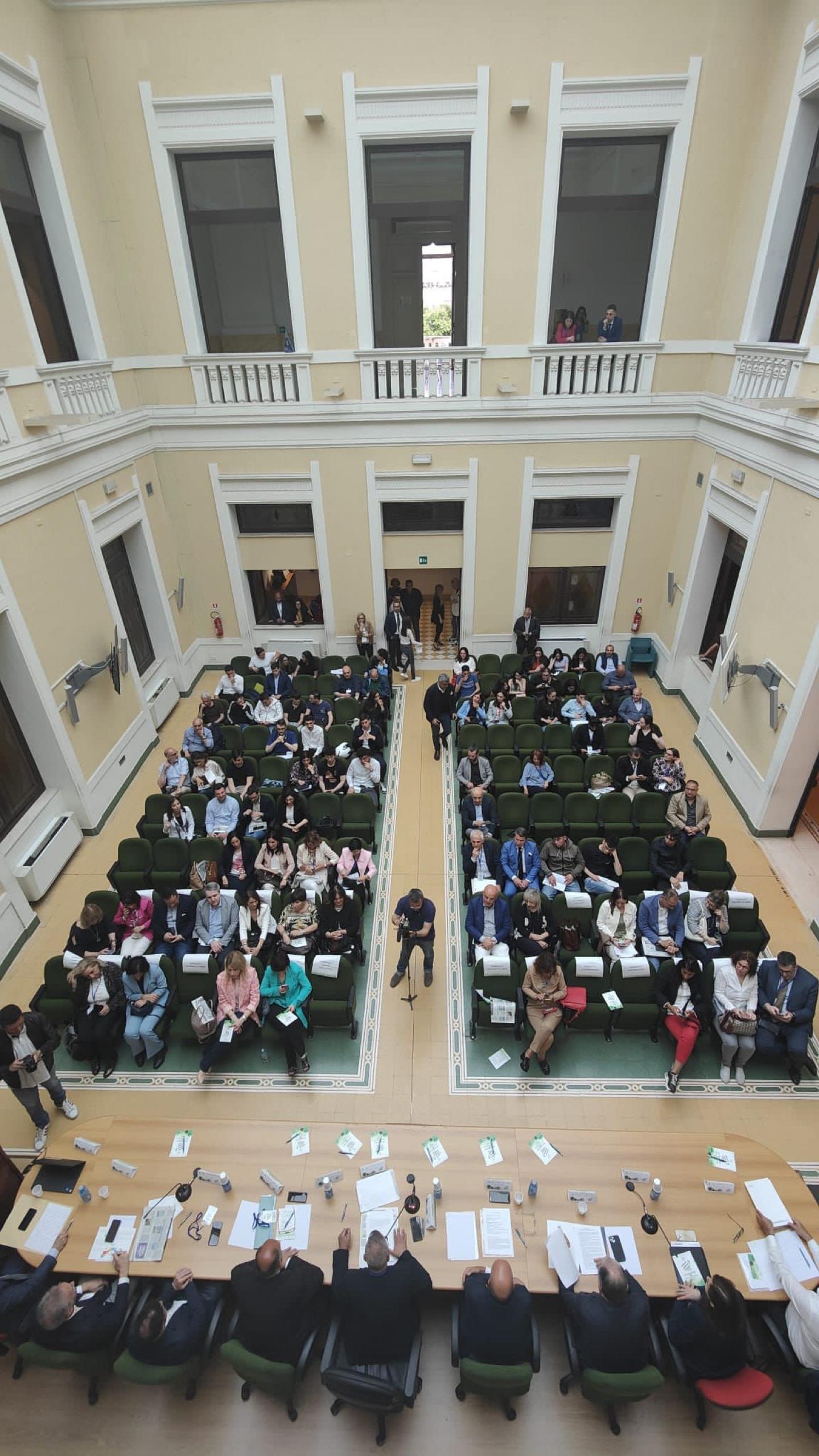
• 136 selection interviews
• 94 students showed interaction skills during the interviews
• 49 students were deemed eligible
• 22 were selected to be sent to work.
On the other hand, ‘#ORIENTAlife’ took place in about 400 secondary schools of I and II level in the Campania region, through almost 400 labs, and around 1,500 teachers and over 5,500 students were involved.
Those numbers represent the excellent result of teamworks, with Anpal Servizi engaged as leading actor in contacting schools, scheduling meetings, providing workshops, and following the entire process up to the conclusion of the activities. The strength of these two initiatives, finally, was the involvement of all the main actors of the labor market to respond profitably to the challenge of employability and the transition to work, implementing system actions to strengthen the public-private cooperation of the actors and the labor supply chains, education and training and the social sector. The main goal at the heart, alongside the specificities of each project, was to strengthen the orientation skills and guidance of (for) students, to increasingly consolidate the collaboration between the network of public bodies involved in the orientation processes and the system of companies interested, obviously, in an increasingly close dialogue with schools and training institutions in general.
With the support of Michele Raccuglia and Luigi Falco, Anpal Servizi
Credits: Anpal Servizi
SPECIAL EDITION Skillful Futures
Concerted action needed from cast on a densely populated stage to transform well-rehearsed lines into meaningful action for youth skills development.
The European Year of Skills, coming immediately after the European Youth Year, throws sharp focus on the principal international organisations. The eponymous ‘years’ help put the spotlight on their respective ambitions, efforts and policies in unleashing youth potential, cultivating inclusive skills and anticipating labour market needs by the creation of an educated, diverse and well-trained youth cohort. This is consistent with one of the Sustainable Development Goals which advocates for the strengthening and ramping up of education and skills development by a ‘substantial increase in the number of youth and adults who have relevant skills.’ Skills are the gateway to new opportunities for today’s youth.
The theme for this year’s model is “Skilling teachers, trainers and youth for a transformative future.”
As the ETF (European Training Foundation) articulates “It highlights the essential role that teachers, trainers and other educators play in providing skills for youth to transition to the labour market and to actively engage in their communities and societies.”
Acknowledging the fast and dizzying pace of change in today’s world, their mandate underlines the important level of skills development: we must ensure everybody has access to education and training in order to gain the skills and knowledge that are crucial in our transition to greener, more digital and inclusive societies.
Increasingly, the European Commission, the ILO and the OECD are laying greater emphasis on ensuring that skills development and policies are designed to be inclusive: addressing the needs of diverse populations, including vulnerable groups, marginalised communities, persons with disabilities, and individuals facing social or economic
marginalisation. There is also an equally urgent need for the creation of structured dialogue platforms between, and amongst, donors, governments, international organisations and the affected youth populations. This will help towards ensuring that the supply side of programmes and policies responds to the demand side, thus avoiding any mismatch between skills development and job opportunities.
More collaboration amongst the institutions in the design of their initiatives can help them profit from the economies of scale, shared best practices and abetting more coherence and cohesion. There still remains many stations between ambition and realisation. A recent statement, produced by members of the EU Consultative Group for Young People with a Migration Background, highlights the problems of one vulnerable group and points the way towards a resolution of some of those problems.
“Recognising & developing the skills of young migrants is crucial to protect our rights, enhance our sense of belonging and enable us to contribute to sustainable development in their countries of origin and destination.”
‘Everyone’s skills should be valued and given opportunities to grow. We, migrant youth, bring diverse skill sets that can stimulate innovation and respond to labour market needs. However, the unfortunate reality is that we are compelled to work below their skill levels. This is due to an interplay of factors such as language barriers, discrimination, lack of access to education and non-recognition of their qualifications and experience. In OECD countries, migrants with tertiary-level education are overrepresented in low-wage jobs. Across the EU in 2021, the over-qualification rate was 39.6% for nonEU citizens, compared to 20.8% for EU citizens.
SPECIAL EDITION Skillful Futures
Recognising and developing our skills is a win-win for everyone. On the one hand, it opens up opportunities to migrants for decent, meaningful work and safe migration pathways. This enables us to find work in the formal economy, raise our standard of living and strengthen our sense of belonging, purpose and selfworth. On the other hand, migrants can alleviate labour shortages and contribute to innovation and sustainable development in Europe through participation in the workforce.’
Actions that can be taken include:
• Acknowledge the value and contributions of migrants at all skill levels by facilitating the formal recognition of prior learning and qualifications to improve employability.
• Assess migrants’ existing skills against labour market gaps and emerging opportunities, including in efforts towards economic recovery and the transition to green economies, to prevent skills mismatches.
• Address the skilling, reskilling and upskilling needs of migrants with the involvement of public institutions, civil society and the private sector. Work-based learning, including quality apprenticeships for youth, can enable migrants to earn an income, meet their needs and support their families during this transition. Complementary services such as childcare are needed to encourage increased participation of migrant women.
• Promote safe and legal migration pathways to ensure newcomers’ access to meaningful jobs in the formal economy that provide social security benefits and enable them to contribute to society.”
A relatively new champion of youth is the EEAS who suggested some different prisms through which to view the role of youth in today’s fast-changing world convulsed by cataclysmic wars, climate change, energy insecurity and the constant movement of peoples.
“Born into a world they did not create, many young people step up as volunteers, advocates, and entrepreneurs, dedicating themselves to protect the well-being of their planet, countries, and communities. Growing up in a different era, they have a unique understanding of the challenges and
opportunities of the present and their innovative thinking enables them to approach problems with creativity, open-mindedness and foresight.
Today, youth are at the forefront of movements advocating for social justice, environmental sustainability, and equality. The young generation has brought renewed energy to the concept of ethical leadership recognising it as a vital skill in forging a better tomorrow for all. Prioritizing human rights, fairness, and social justice in decision-making and actions, confronting systemic biases, championing diversity and inclusion, and creating inclusive spaces where every individual's contributions are valued, are key leadership skills that represent this generation’s aspirations.”
Thomas Mc Grath
SPECIAL EDITION Skillful Futures
The challenge now is to move from rhetoric to action.
our Projects

The youth of today is the future of tomorrow
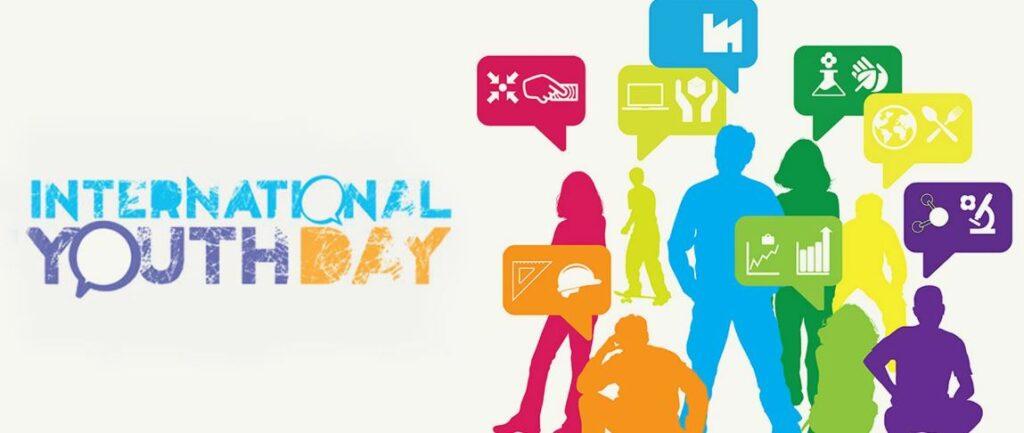
from
Credits: UNPD
Voices
SPECIAL EDITION International Day of Youth SPECIAL EDITION Skillful Futures
Empowering Coaches to Support NEETs: An Overview of the SEPAL PRO 3rd Coach Training in Suceava, Romania
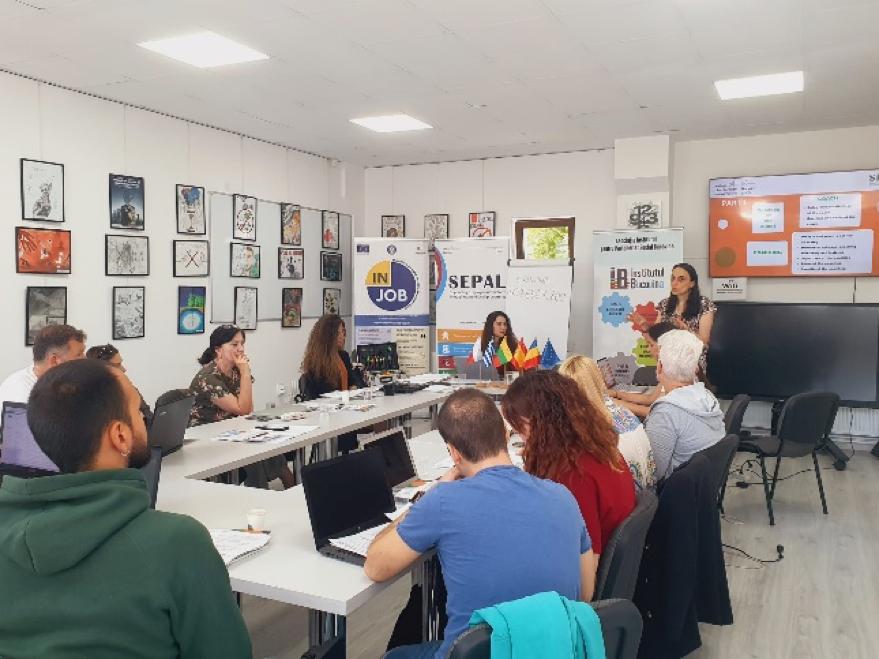
The SEPAL PRO project (Supporting Employment Platform for Apprenticeship Learning) is committed to addressing the challenges faced by NEETs (Not in Education, Employment, or Training) in 5 countries from Europe (Romania, Spain, Lithuania, Greece, and Poland), aiming to empower them to access meaningful employment opportunities.
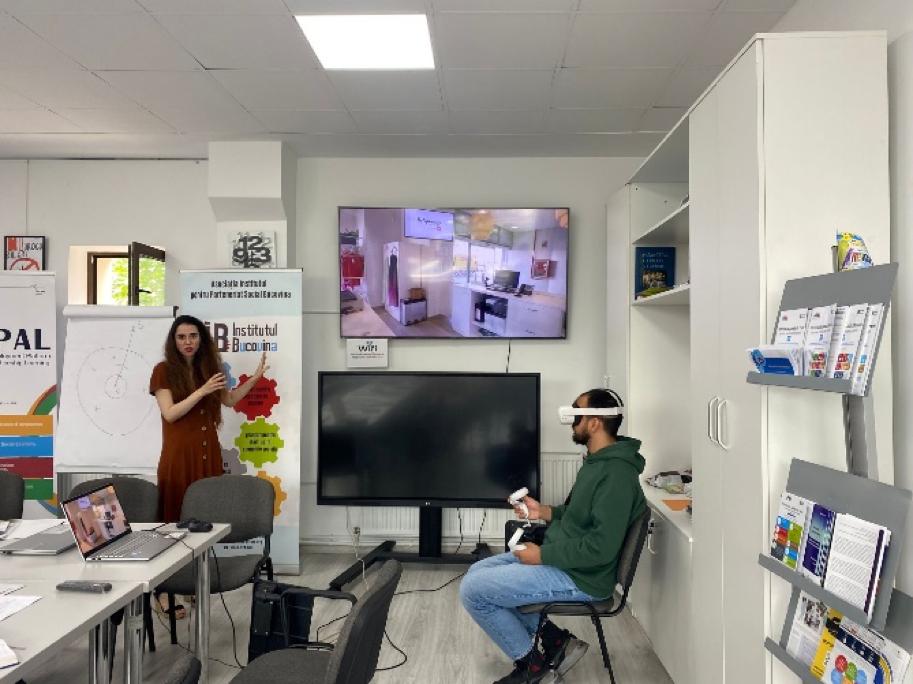
The 3rd Coach Training, held in Suceava, Romania, was a pivotal 5-day meeting that brought together 15 WISE Experts and coaches from different partner countries. Over these days, participants engaged in a series of immersive activities, workshops, and study visits designed to enhance their skills and knowledge in supporting NEETs effectively. Let's delve into the highlights of each day and the overall impact of this training!
Day 1: Building the Foundation
The first day of the training laid the groundwork for participants to familiarize themselves with the Moodle training platform, one of the central elements of the SEPAL PRO project. Guided by WISE Experts, coaches gained hands-on experience and insights into effectively utilizing this platform to gain knowledge
and skills to efficiently engage with NEETs. Furthermore, the working session on the SEPAL Platform deepened their understanding of its features and relevance to achieving project goals. In addition, coaches actively registered NEETs into the system and gathered valuable information about their backgrounds to tailor coaching approaches for individual needs. The study visits to "Pe Cai la Mitoc" provided practical examples of social economy initiatives, expanding participants' horizons, and encouraging them to explore innovative solutions for NEETs' integration into the workforce.
Day 2: Embracing Technology and Creativity
On the second day, participants ventured into the realm of virtual reality (VR) technology, testing VR glasses and exploring its potential applications in coaching. This activity allowed coaches to envision immersive coaching experiences that could further engage and motivate NEETs. In the working session on coach guidelines and training programs, knowledge sharing among partners enriched their understanding of creating effective coaching guidelines.
SEPAL
SPECIAL EDITION Skillful Futures
PRO
The highlight of the day was the creative coaching workshop, which inspired coaches to tap into their creativity and experiment with alternative coaching approaches through hands-on handcraft activities. This creative outlet offered new perspectives on enhancing coaching effectiveness and fostering individual growth among NEETs.
Day 3: Exploring Evaluation Practices and Creating Promotional Materials
The day started with evaluation activities of the NEETs' skills after the work-based training. Coaches assessed the progress and identified any additional training or support needs, enabling them to fine-tune their coaching strategies for an optimal impact. A working session focused on creating promotional materials, including powerful testimonials from coaches, aimed to showcase the transformative effects of coaching on NEETs' lives. The study visits to a wood workshop, cultural sites, and a monastery pharmacy enriched the participants' cultural knowledge and highlighted the significance of vocational training and holistic well-being in coaching.
empowering vulnerable individuals to become valuable members of the workforce. Coaches were inspired to consider collaborative efforts and innovative approaches in their coaching practice, ensuring that they cater to the unique needs of diverse groups. Additionally, the visit to the Humanitarian and Social Assistance Center for Refugees shed light on the challenges faced by refugees, spurring coaches to explore ways to contribute to their integration and well-being through coaching.
Day 4: Empowering Through Social Enterprises and Inclusivity
The fourth day took participants on a transformative journey through visits to several social enterprises and local food hubs. These enterprises, such as UTILDECO, JOBDIRECT, WISE TRAVEL, and AFIN, demonstrated the power of inclusivity and support in

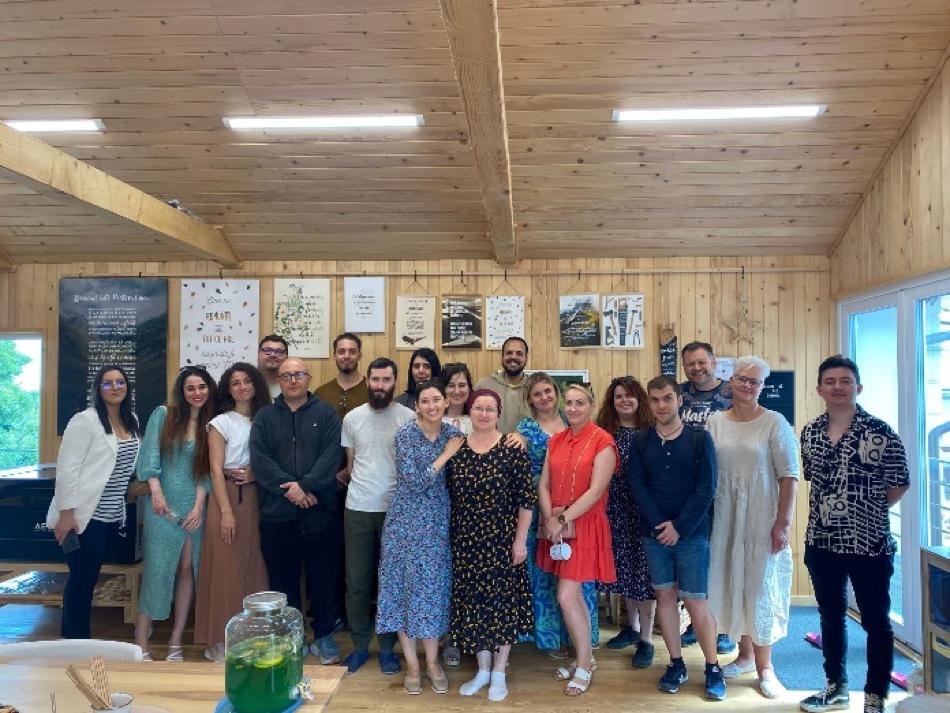
Day 5: Charting the Path for Sustainable Inclusion
On the final day, the focus shifted to engaging in deep discussions on European-level measures for the inclusion of NEETs and developing a sustainability plan within the SEPAL project. Participants explored cutting-edge strategies to support NEETs in accessing employment, training, and education opportunities. Collaboration emerged as a key theme, with participants recognizing the need for multidimensional approaches involving various stakeholders. They emphasized the importance of continuous learning, data collection, and sharing best practices to ensure the long-term impact and success of the SEPAL PRO project.
In conclusion, the SEPAL PRO 3rd Coach Training in Suceava served as a transformative platform for coaches and WISE Experts to enhance their skills in supporting NEETs effectively. Through immersive activities, technology exploration, cultural experiences, and study visits, participants gained valuable insights, fostering empathy and innovation in their coaching approaches.
SPECIAL EDITION Skillful Futures
This training strengthened collaboration among partners from different countries, facilitating the exchange of best practices and ideas. Armed with enhanced knowledge and a shared commitment, these coaches are well-equipped to empower NEETs, unlocking their potential and guiding them towards meaningful employment and integration into society. The SEPAL PRO project's mission to foster inclusion and opportunity for NEETs stands stronger than ever, thanks to the dedication and passion of these inspiring coaches.
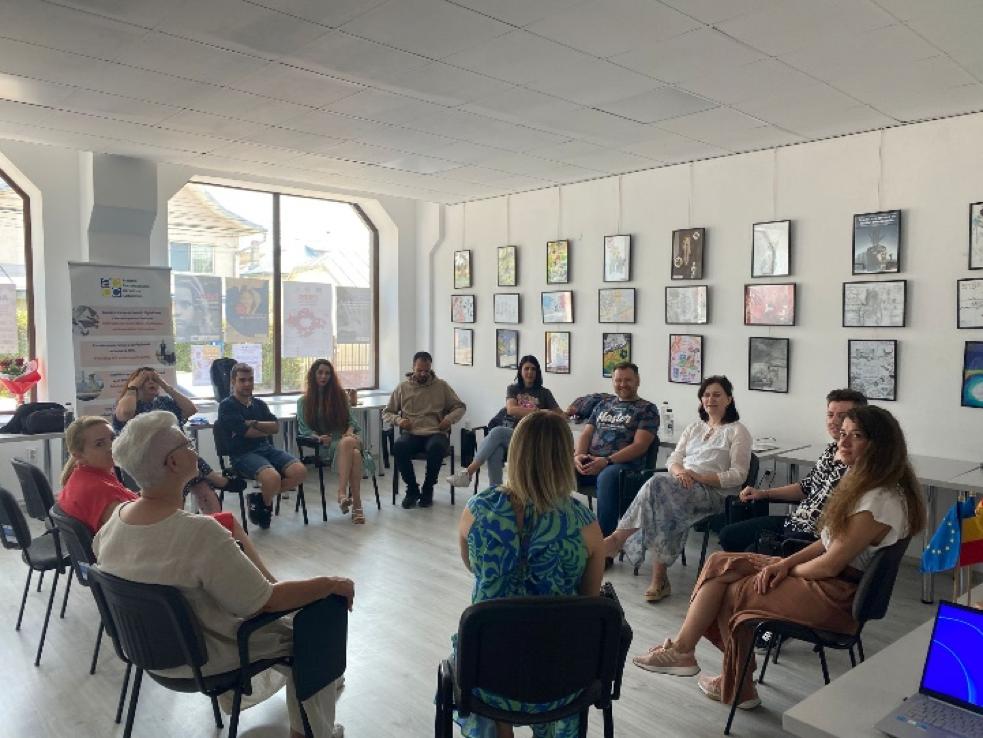
SPECIAL EDITION Skillful Futures
Overcoming Adversity and Thriving in the Workplace
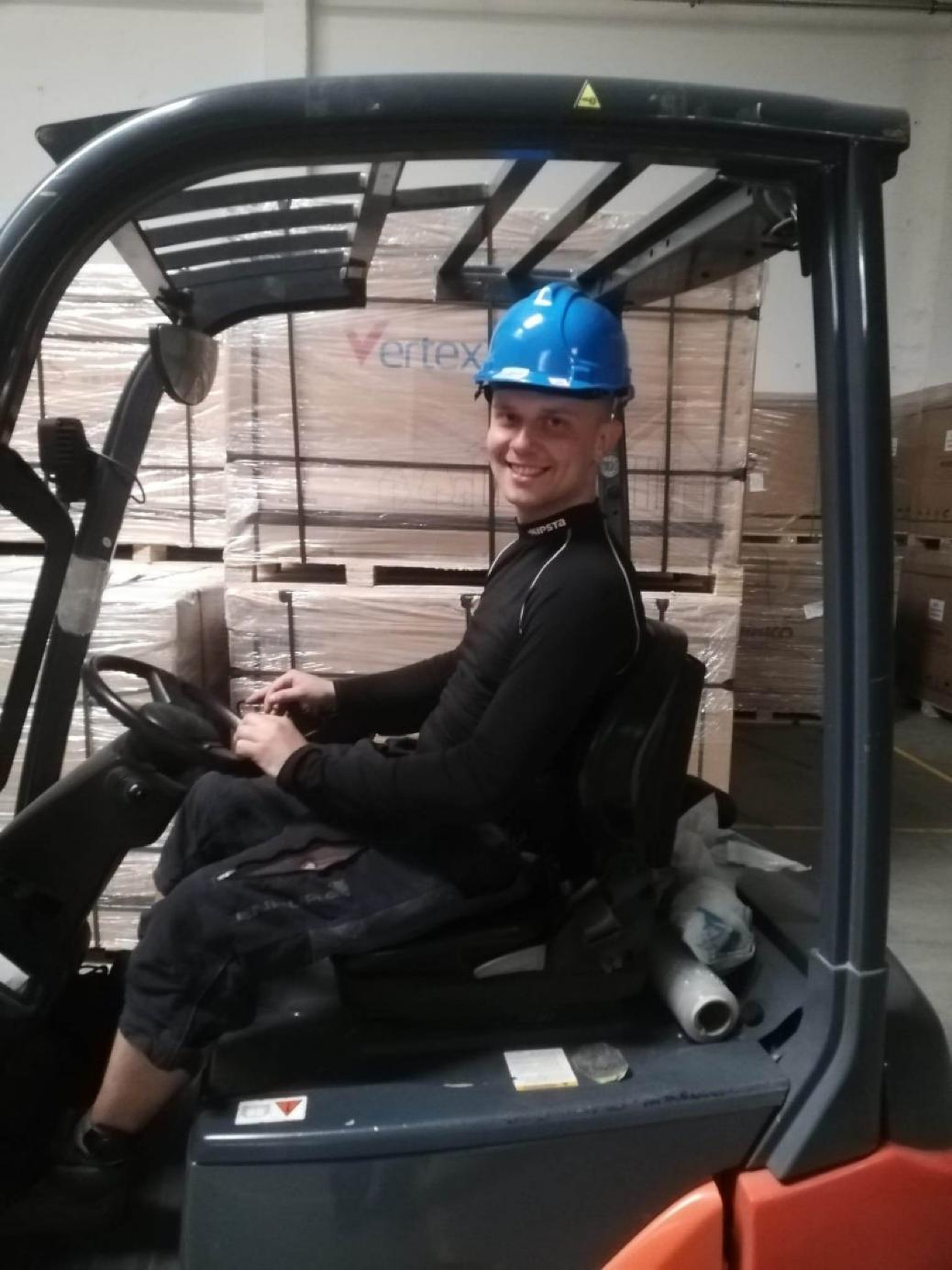
Tomasz Szurgociński from Poland
This is the story of Tomasz Szurgociński who has displayed remarkable determination, resilience, and growth during his participation in the SEPAL PRO Project - Supporting Employment Platform through Apprenticeship Learning. This individual's journey is a testament to the transformative power of second chances and the potential for personal growth, even in the face of significant challenges.
From the outset, it was evident that Tomasz had faced
various difficulties in his life, including struggles with drug addiction and legal issues. These personal battles had a profound impact on his employability and overall well-being. However, it was clear that he possessed a genuine desire to change his circumstances and embrace a brighter future.
Throughout the project, this individual exhibited unwavering commitment and dedication to improving his life. Despite facing a series of hurdles, he remained steadfast in his resolve to break free from the grip of addiction and turn his life around.
SEPAL PRO SPECIAL EDITION Skillful Futures
His perseverance and positive attitude were truly commendable and served as an inspiration to both the project mentors and fellow participants. Addressing his past challenges was not an easy process, but with the right guidance and support, this individual steadily made progress. He exhibited a profound willingness to learn and develop new skills, which led to remarkable improvements in both his personal and professional life. As he continued his journey, he discovered the value of apprenticeship learning to acquire hands-on experience and grow both personally and professionally. Notably, this individual's transformation extended beyond his job performance. As he pursued employment as a warehouse worker for a large construction company, his commitment to sobriety and personal growth became evident to his coworkers and supervisors alike. He demonstrated reliability, a strong work ethic, and an eagerness to take on new responsibilities, earning the respect and admiration of those around him. It is essential to acknowledge that Tomasz’s journey was not without challenges. During his pursuit of employment and personal development, he faced moments of self-doubt and emotional distress. However, he demonstrated remarkable courage by seeking assistance and talking openly about his struggles, ultimately contributing to his overall growth and mental well-being. While depression was not officially diagnosed by a specialist, the individual's proactive approach to addressing his emotional health is truly commendable.
Today, we are proud to say that this individual has not only secured stable employment but has also become an invaluable asset to the company he works for. His journey from battling addiction and facing legal issues to becoming a reliable and motivated warehouse worker is a testament to his resilience, dedication, and unwavering determination to embrace a brighter future.
The best testimonial is the recommendation of his current employer:

„ (…) During his work, Mr. Tomasz is involved in the implementation of the tasks entrusted to him. He is an independent, punctual, and highly motivated worker. He can work in a team and is liked by the rest of the employees. He never caused any problems, showed great interest in learning and expanding his
skills. Tomasz is an extremely valuable employee, which is very important for an employer nowadays”. In conclusion, witnessing Tomasz’s growth and transformation has been nothing short of extraordinary. His participation in the project serves as a shining example of the potential for positive change when provided with the right support and opportunities. I am confident that his story will continue to inspire and motivate others to overcome their challenges and seize the possibilities for personal and professional growth.
SPECIAL EDITION Skillful Futures
Throughout the project, this individual exhibited unwavering commitment and dedication to improving his life.
Skills, Youth and Cowork4YOUTH’s contribution
Evidence-informed policy making has long been given great importance by the European Commission and the EU in general. As the commission points out in its relevant working document 2 , “policies developed without sufficient science are less likely to solve the underlying issue and more likely to give rise to unintended consequences”. In other words, research that provides evidence for the effectiveness of various policies is considered important not only for better understanding and targeting the underlying problems, but also for minimizing the risk of failure. It must be noted that, when talking about issues such as unemployment, the possible “unintended consequences” are not only theoretical or financial, but may have very real repercussions in the lives of citizens.
More than this, however, availability of accurate and reliable data on a certain subject is also a matter of democracy; or as the Commission points out: “The case for science for policy rests first on its ability to help design more effective policies and second to support the democratic process by providing the facts to support democratic debate of the proposed policies” 3. Research and data are not only for policy
makers, but they have the ability to empower all stakeholders involved and allow them to actively and meaningfully participate in the public debate.
In more specific terms, and returning to the topic of unemployment, research and data can help youth workers, and even the unemployed themselves, not only better support their arguments and have their voice heard, but also to broaden their perspective and help them improve their outlook. Understanding trends, underlying problems or one’s place within a larger system, for example, can indeed be an empowering aspect of access to research and data.
So why this introduction concerning evidence-based policy making? Cowork4YOUTH happens to be a research and analysis project, its main concern being the production and dissemination of knowledge. On the outside, this may seem academic and only interesting to a niche audience, while other projects with their more hands-on approaches and activities on the field seemingly appeal to a wider audience
1 COMMUNICATION FROM THE COMMISSION TO THE EUROPEAN PARLIAMENT, THE EUROPEAN COUNCIL, THE COUNCIL, THE EUROPEAN ECONOMIC AND SOCIAL COMMITTEE AND THE COMMITTEE OF THE REGIONS on Better regulation: Joining forces to make better law. COM(2021) 219 final.
2 https://knowledge4policy.ec.europa.eu/sites/default/files/SWD_2022_346_final.PDF
3 Ibid.
Cowork4YOUTH
“Scientific evidence is another cornerstone of better regulation, vital to establishing an accurate description of the problem, a real understanding of causality and therefore intervention logic; and to evaluate impact”
EUROPEAN COMMISSION 1
SPECIAL EDITION Skillful Futures
The above discussion should already be giving you an idea that this isn’t quite so. It’s certainly not the way we see it.
To us, the availability of research on subjects such as employment policies, institutions, NEETs, and the skills gap is a matter of giving a voice to those on the front line – youth workers, trainers, and of course NEETs and unemployed people. It’s about helping to provide evidence and suggestions to enhance policies, and to strengthen them in their everyday struggle to improve the lives of other people.
Our project’s outputs, such as the Baseline Study and Youth Employment Observatory offer valuable insights and are freely available through our website https://www.cowork4youth.org/. Particularly the Observatory is a very useful tool for accessing processed and comparable data across various European countries. The ‘Transnational report on NEETs, skills gap and employment policies in peripheral European countries’, which will soon be made available to the public, is also very relevant to this Special Issue’s subject of Skillful Futures.
It should also be noted that our research does not only consist of sitting at a desk and crunching numbers. As part of Cowork4YOUTH’s pilot study, our researchers have been traveling around Europe meeting people working directly with youths, interviewing them, sharing insights and, hopefully, engaging them and creating networks and synergies. All in all, we believe that, within the grand scheme of the EEA and Norway Grants Fund for Youth Employment, research and analysis projects have an important part to play in providing the evidence and the theoretical backbone to support more practical interventions. And hopefully our policy recommendations will also have an impact on the future decisions of policy makers.
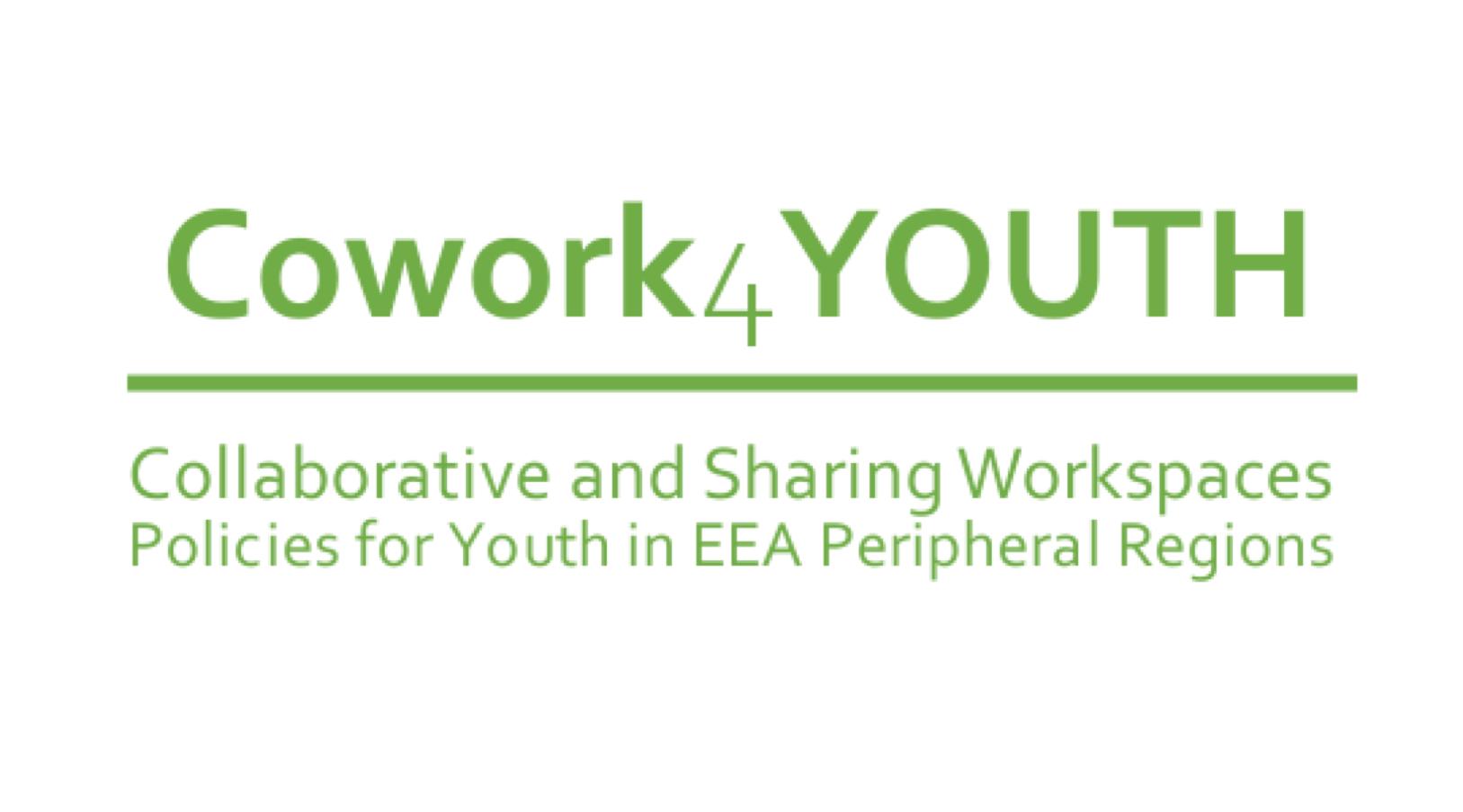
SPECIAL EDITION Skillful Futures
Empowering Youth: The Role of Trainers, Mentors, and Youth Workers
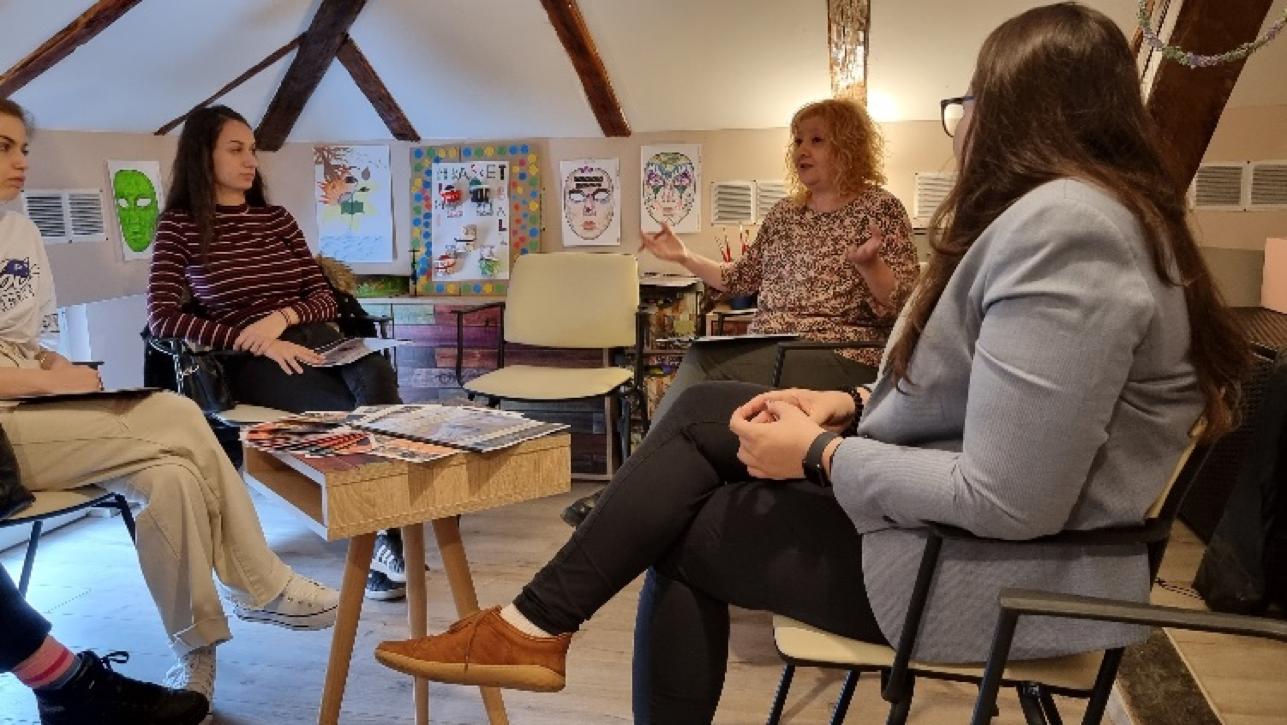
Youth unemployment continues to be a pressing issue worldwide, leaving many young people facing challenges when entering the job market especially those with mental health problems. However, there is hope in the form of dedicated trainers, mentors, and youth workers who play a pivotal role in empowering the youth by unlocking their potential through skills development. In this article, we will explore the crucial activities carried out by Project L.I.K.E – “Life Investment is the Key to Employment” team members and their unwavering efforts to support NEETS with mental health issues. NEETs, an acronym standing for "Not in Education, Employment, or Training," refer to a significant portion of the youth population who find themselves disconnected from educational pursuits, employment opportunities, or vocational training. These individuals face extraordinary challenges in transitioning from school to work life and encounter difficulties in securing stable employment.
Overcoming the challenges and successful integration in the ever-changing job-market is additionally difficult for young people struggling with mental health problems. NEETs with mental health problems represent a complex social issue with implications for both individual lives and broader societal development. Addressing the needs of those young people requires a comprehensive approach that involves targeted interventions, skill development program, and support systems to empower these young people and enable them to overcome barriers and find meaningful pathways to education and employment. At the heart of our mission lies a steadfast commitment to unleashing the full potential of every individual, fostering their talents and strengths. Our ultimate aim is to empower young people with mental issues to flourish, explore, and harness their distinct abilities. Beyond unlocking their potential, our dedicated efforts also revolve around securing sustainable employment
L.I.K.E – “Life Investment is the Key to Employment” SPECIAL EDITION Skillful Futures
Building Core Skills
In order to realize these goals, one of the key focuses of trainers and youth workers is to help young people develop core skills that are highly valued by employers. In today's rapidly evolving job market, the demand for skilled and adaptable young professionals is higher than ever. Recognizing this critical need, Project L.I.K.E “Life Investment is the Key to Employment” places a strong emphasis on building core skills among NEETs with mental problems to enhance their employability and open doors to promising career opportunities.
“Despite the long-term nature of some mental illnesses, with proper treatment many people lead stable and productive life. I believe that every young person deserves a chance to succeed, and my mission as a mentor has been to provide them with the tools and support needed to thrive in both their personal and professional lives. - this is what Vesselina, one of Project L.I.K.E mentors, shares.
Trainers and youth workers within the project play a crucial role in this transformative process, guiding and empowering youth to develop the essential skills highly valued by employers. Through various carefully designed activities and exercises, the mentors in Project L.I.K.E create a supportive environment that facilitates skill development and enables youth to reach their potential and make themselves more attractive to employers.
Throughout our mentorship sessions, I have focused on fostering essential soft skills in these young individuals. While academic qualifications are crucial, I understand that employers seek more than just technical knowledge. Hence, I have placed a strong emphasis on nurturing skills like effective communication, critical thinking, adaptability, and teamwork. These competencies not only enhance their employability but also empower them to excel in various life situations.”
One of the core skills that trainers and mentors are aiming to build and develop in young people are:
Communication Skills:
Effective communication is the cornerstone of successful integration at the labor market. Trainers in Project L.I.K.E focus on nurturing communication
abilities in the young people they work with, teaching them how to express ideas clearly, listen actively, and engage in constructive dialogues. Workshops and role-playing activities are just a few examples of the methodologies employed to refine these skills.
“Many of the NEETs I work with have struggled to express themselves effectively due to mental health issues they are struggling with. My approach to nurturing their communication skills is rooted in patience, understanding, and active listening. I create a safe and non-judgmental environment that encourages them to express their thoughts, feelings, and aspirations without fear. I recognize the significance of communication so one of my primary goals is to empower these young people to overcome their challenges and help them foster the necessary tools for success in various aspects of life. Beyond nurturing their communication skills, I also address the importance of active listening and empathy. Understanding the significance of truly listening to others fosters stronger interpersonal connections both in their personal and professional life. I have witnessed incredible improvement in their ability to build meaningful relationships thanks to the ability to actively and empathetically listen to others. I strongly believe that with this newfound communication abilities, they are better equipped to pursue their career aspirations with confidence.”
Teamwork Skills:
The ability to collaborate is one of the most valued skills today. Project L.I.K.E recognizes the importance of teamwork and equips young people with the skills needed to work harmoniously in diverse groups. Through team-building exercises and peer-to-peer interactions, participants learn the value of cooperation, effective communication within teams, and the ability to leverage individual strengths for collective success.
"Working with NEETs who are also struggling with mental health challenges has been an incredibly rewarding experience. One particular aspect that I'm proud to see progress in is their development of teamwork skills. I remember when I first met these young people they were withdrawn, lacked confidence, and struggled to engage with others. The idea of working together as a team seemed daunting and unattainable.
SPECIAL EDITION Skillful Futures
However, through carefully designed activities and a supportive environment, I witnessed them transform over time. As we embarked on team-building exercises, they slowly began to open up, share their thoughts, and actively participate in group discussions. Seeing them embrace the concept of teamwork and collaboration was a remarkable breakthrough. It not only boosted their self-esteem but also provided a sense of belonging that had been missing from their lives. Teamwork is not just about accomplishing tasks collectively; it fosters essential life skills that are crucial for both personal and professional growth. As they move towards finding employment or pursuing further education, employers and institutions value individuals who can effectively collaborate with others. Teamwork is a skill highly sought-after in the workplace, and having this ability enhances their employability and career prospects. I'm humbled to have played a role in nurturing their teamwork skills, and I'm hopeful that these skills will continue to serve them well in their future endeavors. As they embark on new journeys, I am confident that the teamwork they learned will not only open doors for them but also empower them to overcome challenges and thrive in whatever they choose to pursue."
Houses is specifically designed to empoly activities encouraging adaptability through exposing those young people to dynamic scenarios that challenge their comfort zones. Of course that has been easy. Read out what that of Project L.I.K.E mentors has to share:
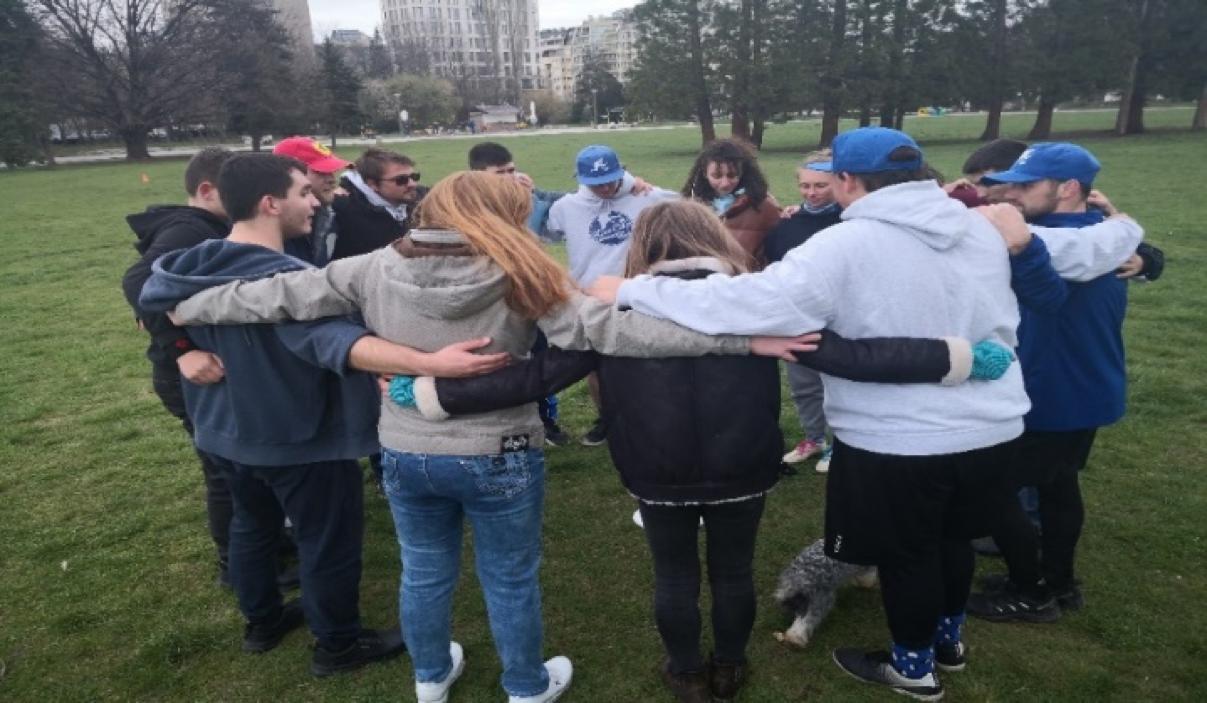
“When I first started mentoring these young people, many of them felt stuck and overwhelmed by the uncertainties. They often struggled to cope with change and faced difficulties in adjusting to new situations but we encouraged them to step out of their comfort zones and embrace change. Whether it was trying new hobbies, exploring different career paths, or simply approaching everyday situations with a fresh perspective, they gradually learned to adapt and embrace uncertainty. Instead of succumbing to stress or anxiety, they learned to approach challenges with a more flexible mindset, which significantly improved their emotional resilience. The transformation was truly remarkable. As they became more adaptable, they began to see obstacles as opportunities for growth rather than insurmountable barriers. Such mindset is extremely important in today`s rapidly changing labor market especially when employers seek individuals who can embrace change and thrive in dynamic settings. I am honored to have played a part in nurturing this essential skill, and I am optimistic about the bright futures that await each of them."
Adaptability Skills:
The modern job market is characterized by rapid changes and uncertainties. The rapidly developing labor market across Europe requires that the skills that today's youth acquire are stable, sustainable and valid for the years to come. It is expected today`s youth to face the need of constant upgrade of their skills. Adaptability is the key to thriving amidst such fluctuations and Project L.I.K.E mentors ensure that all measures are being taken so as to young people with mental problems to be prepared to handle unforeseen circumstances with confidence. The multidimensional program applied in the Youth
The impact of core skill development in Project L.I.K.E is profound and far-reaching. As these young people grow and mature through the project's interventions especially with the efforts and dedication of all the mentors and trainers, they become more attractive to potential employers. Equipped with enhanced communication, teamwork, and adaptability skills, these young people demonstrate the potential to contribute positively to any workplace they enter.
Partnerships
In the pursuit of empowering NEETs with mental health problems and combating youth unemployment, Project L.I.K.E recognizes the invaluable role of partnerships with local businesses and community organizations. These collaborations serve as a vital bridge between the mentor's efforts
SPECIAL EDITION Skillful Futures
and the real-world job market, creating meaningful employment opportunities for the youth it serves.
“Building strong partnerships with local businesses, industries and community organizations is crucial for several reasons. Firstly, it enables us as mentors to gain insights into the current job market demands and tailor our skill development interventions and exercises accordingly. Only by understanding the specific needs of employers we can help the young people we work with relevant skills, enhancing their employability. Secondly, partnerships increase the opportunity and access to internships and job placements, directly connecting young people with potential employers and facilitating their entry into the workforce.”
Examples of Successful Collaborations: Project L.I.K.E has witnessed numerous successful collaborations between trainers, mentors, youth workers, and external stakeholders that have made a tangible impact on youth unemployment. One such example is the partnership with a local tech company. Recognizing the growing demand for digital skills, the project teamed up with the tech firm to provide IT training for participants.
IT experts, our NEETs dived into various aspects of digital literacy, ranging from basic computer skills to coding. Many of them had never experienced such exposure to technology before, and it was heartwarming to see them embrace these opportunities with enthusiasm.
This collaboration not only enriched the skill sets of young individuals but ignited their interest in further developing these skills and opportunities to pursue education and careers in the field.
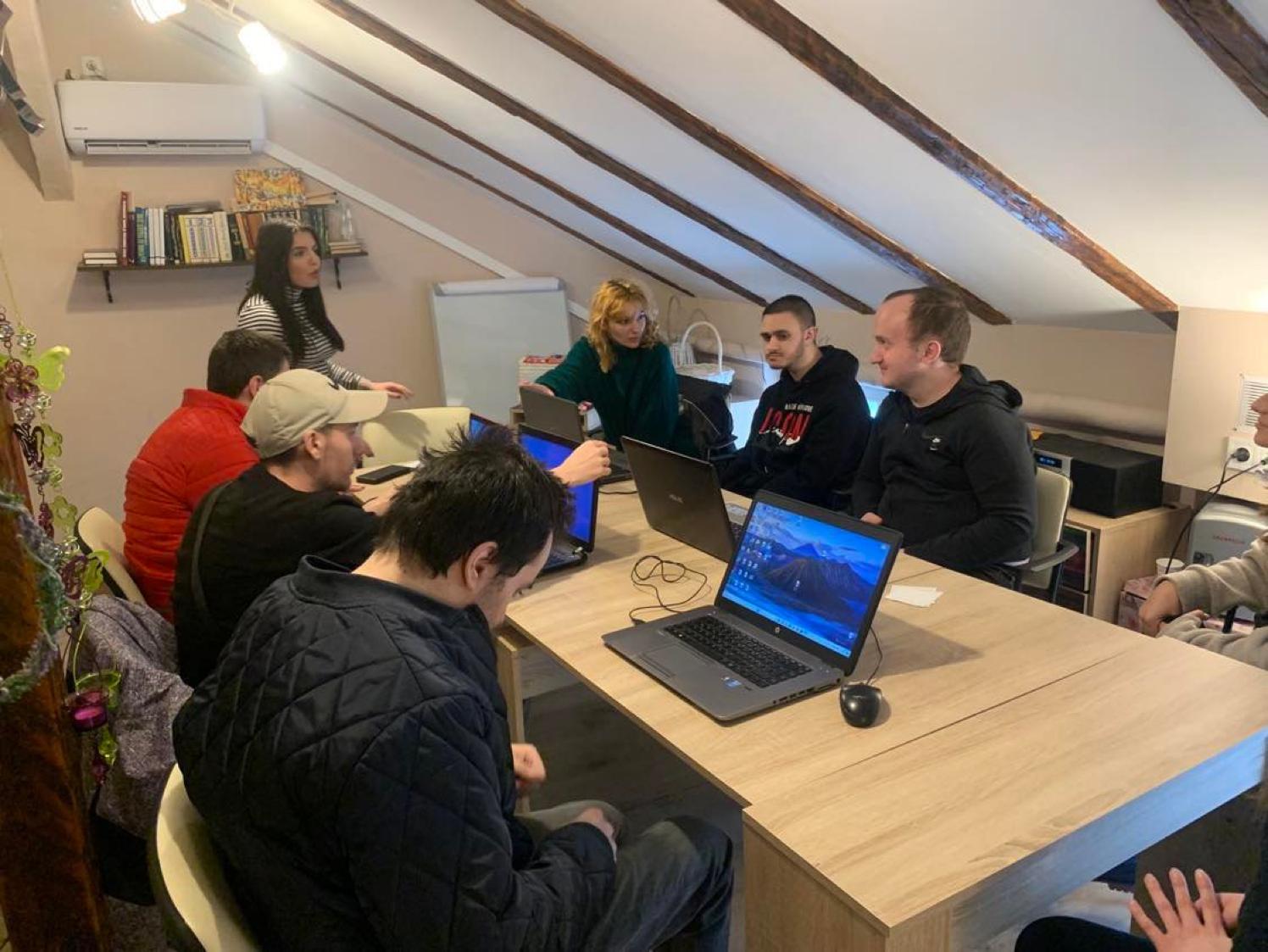
This is the story of the 25-year old D.Z, who joined the project "L.I.K.E. "Investments in life are the key to employment" because of a lack of motivation for future realization and serious difficulties in integrating the labor market. He has always had an interest in technology, which, however, due to the trials of mental health, remains forgotten. Treatment and psychological support, mentoring and guidance to build a stable daily routine helped D.Z. to effectively set goals, and with the support provided by all of our team– to follow them. It is with joy and a sense of personal satisfaction that I can now say that thanks to the continuous support he received and the series of training sessions with IT experts, his interests in technology and motivation to explore the job possibilities in this field has been revived.
“Our main goal has always been to provide the young people joining Project L.I.K.E with opportunities that would prepare them for the modern job market and digital skills are one of those relevant skills. Unfortunately, many of the young people we work with face multiple barriers including limited access to education and technology so collaboration with experts from the field of digital technology became a priority. Through training sessions, and hands-on experiences facilitated by the
Another successful partnership involves the collaboration with a local financial company. Together, the mentors, trainers and a team of financial experts initiated a series of workshops dedicated to the development of financial literacy among the group of NEETs. Financial literacy is a critical life skill that empowers individuals to make informed decisions about money management and financial planning. For NEETs (Not in Education, Employment, or Training) who also face mental health challenges, acquiring financial knowledge can be especially transformative.
“One such remarkable journey is that of a young 21 years old man T.P, who joined Project L.I.K.E with little to no financial literacy and struggled to navigate the complexities of managing money. When I first met him, he openly admitted to feeling overwhelmed and uncertain about financial matters. He had never been taught how to budget, save, or invest. Realizing that this is not solely his difficulties
SPECIAL EDITION Skillful Futures
but rather to the most of young people we work with, we embarked on a partnership with a local financial company and a series of financial literacy workshops tailored to their needs. Understanding that everyone learns differently, we focused on providing real-life examples and interactive activities that would make the concepts easily understandable.
Throughout the workshops, the young man`s curiosity and eagerness to learn became apparent. He was constantly asking thoughtful questions and showed a willingness to confront his financial challenges head-on. I witnessed a remarkable transformation in Alex's financial confidence. He began to embrace a proactive mindset, tracking his expenses diligently and setting up a personalized budget that suited his lifestyle. But the most significant breakthrough came when T.P shared his intend to broaden his knowledge and start an onlinecourse. His journey is a testament to the profound impact that mentorship can have on the lives of young people. As a youth mentor, I remain committed to continuing my work in empowering NEETs with mental health like T.P to unlock their potential and create a brighter future for themselves.
their strengths, and explore opportunities despite the hurdles they may face. By addressing mental health concerns in conjunction with employment support, these professionals create an environment that fosters holistic growth, ensuring that NEETs are equipped not only for the job market but also for life's challenges.


As we move forward, it is crucial to encourage trainers, mentors, and youth workers to continue their efforts tirelessly. Together, we can build a brighter future, where every young individual feels empowered, supported, and capable of realizing their potential, regardless of the challenges they may face. Let us continue our journey towards fostering an inclusive society that ensures no young person is left behind, enabling them to thrive both professionally
In conclusion, trainers, mentors and youth workers play an essential role in empowering young people facing mental health challenges and unemployment, commonly known as NEETs. These professionals offer a nurturing and supportive environment, providing the necessary tools, knowledge, and skills to enhance the employability of NEETs struggling with mental health issues. Their role cannot be overstated. They act as beacons of hope for NEETs, inspiring them to believe in their potential, recognize
SPECIAL EDITION Skillful Futures
Only by understanding the specific needs of employers we can help the young people we work with relevant skills, enhancing their employability.
Hidden Likes Youth House in the fight against Stigma
The practice of psychologists is the one that most closely approximates so-called "Helping Behavior". It gives us two of the most amazing abilities, namely: to impart our passion for it to others and to support the successful realization of the client in society, his personal growth and awareness. Perhaps the most satisfying part of psychological counseling occurs when we look at the client and succeed in recognizing in him an independent, responsible, and coping individual who has found his sustainable place in society, realized his potential and weaknesses, and learned to live in symbiosis with these two aspects. What is the benefit to us of having been able to reveal the benefits of helping to at least one person? Besides the emotional well-being associated with the good deed done, we actually realize that we have reached someone's core being. We have given them valuable information that, with our help, they have successfully read, extracted what they need, and charted a path to a better future for themselves and everyone they will help in some way.
“Each day, I am reminded of the immense value of the work we do when I see my clients grow and evolve, breaking free from the chains of their mental health issues. It is truly heartwarming to witness their personal growth and awareness, as they gradually overcome obstacles. Being a part of my clients' transformation from feeling isolated and excluded to becoming integrated and empowered members of society drives my passion for this profession. The mission to support them in finding meaningful employment, equal opportunities, and social inclusion is a collective effort I am proud to be a part of.” – shares Vesselina Paskaleva, psychologist and mentor at Project L.I.K.E
Thus begins the struggle of the Hidden Likes Youth House specialists against the public court, which represents the part of society that accepts stigma but does not accept the different, thus isolating them and restricting them from their purely human rights. The stigmatization of people who present with mental
disorders is one of the main problems faced by professionals in their clinical practice. Persons with mental disorders are one of the groups that are often approached with prejudice, leading to their excessive rejection by society, work and learning environments. For this reason, most people with mental health issues are left without education, work, friends and family. Many of the people who reject and stigmatize them, in fact, afraid of them or simply do not know what communication approach to use. In addition to ending stigma, the mission of Hidden Likes Youth House is to convey accessible and useful information to a broad audience regarding mental disorders and appropriate therapy. In order to give visibility to our cause and to make the public aware of the main aspects of mental illness and the possible therapies, we have gone through a number of ups and downs, but at the heart of it all has remained our desire to give support, resilience and empathy to guide as many young people as possible towards a world where they can be autonomous and successfully integrated, both in the labor market and in society.
The daily challenges faced by young people with mental health problems, depending on diagnosis and duration, are as follows:
• Imbalance of higher cortical functions (nervous system functions). Cognitive impairment and disturbed processes of human consciousness are predictors of the abnormal behaviors that youth with mental illness often demonstrate.
• Communication barriers. Speech limitations, inappropriate and inappropriate expressions are the primary antecedents of a complicated transition to employment.
• Demonstration of unconscious resistances. Maladaptive patterns of behavior, lack of motivation on the part of youth with mental health problems, and reluctance to engage in intended therapeutic activities, which create problems with therapist-client and clientcommunity interactions.
L.I.K.E – “Life Investment is the Key to Employment” SPECIAL EDITION Skillful Futures
In addition to the problematic aspects described so far, the main obstacles on the path to quality sustainable employment, equal opportunities and social inclusion are the following factors:
• The inability of conventional employment methods to meet the specific needs of employees with mental illness.
• The stigmatization and social exclusion of people with mental disorders.
In order to achieve our goals, we therapists at Hidden Likes Youth House use an eclectic method through which we are able to properly assess risk and develop effectively adapted therapeutic approaches tailored to the capabilities and cognitive abilities of the target group we work with. Therapy sessions with clients and parents are conducted both in a group format and individually. Some of the therapeutic approaches that we follow and implement in settings that include youth with mental disorders are as follows:
Art Therapy: Through the power of the artistic arts, we are able to encourage youth to uncover and understand emotions, fears and thoughts hidden beneath the surface. Art therapy activities support self-expression and enhance the desire to seek solutions to problems

Outdoor sports activities (yoga, soccer, etc.): One of the main benefits of this therapeutic approach is that it reframes feelings of isolation into a sense of community. Participation in different types of games and sports increases self-esteem and enhances engagement, social integration and improves overall physical resilience.
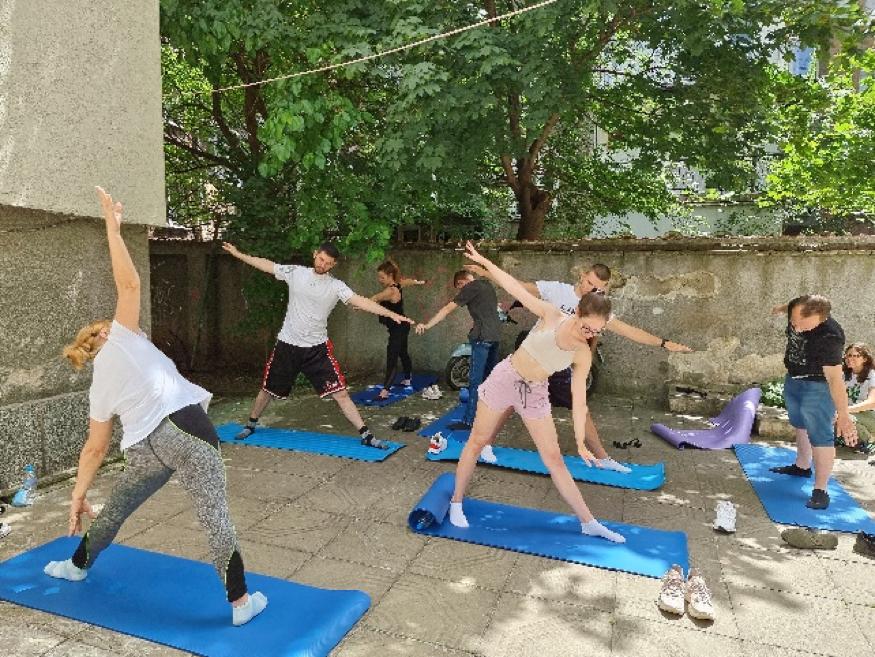
Animal therapy: Interaction with animals has the power to reduce feelings of isolation, reduce stress levels and stimulate physical activity. We have also witnessed the incredible impact interaction with animals has on the young people`s behavior. After a few animal-assisted sessions we found out that they become more concentrated and responsible. Having acquired control over the animal, NEETs gain confidence in their own abilities to look after and take care of something.

At the heart of our goal is our desire to create antistigma measures and to present young people facing mental health problems not in the light of stigma, but in the light of human beings who have the capacity to perform work activities and to develop.
And here are some of the main Anti stigma activities of our association:
• Providing career-oriented counselling. Through this type of counselling, we help young people in the following areas:
o To acquire practical job search skills; CV writing.
o To succeed in identifying their opportunities.
o To be able to identify their career goals.
SPECIAL EDITION Skillful Futures
o To start the process of planning and implementing their career.
• Actively promote equal opportunities through different types of activities:
o Organizing and carrying out Anti stigma seminars aimed at different audiences, in order to present accessible and useful information regarding people suffering from mental illness.
o Organizing and implementing open campaigns aimed at increasing cooperation from potential employers on labor market issues and providing innovative approaches to reduce unemployment for young people with mental health problems.

The fight against unemployment is a notorious problem in today's society. It is viewed by state institutions from different angles and multiple perspectives. In the overall picture, employment is one of the most important components of a fulfilling life. It provides social interaction between members of society, a field for advancement and is the main means of earning an income. For people with mental disorders, at this stage, it is proving extremely difficult to find their place in the labor market. This problem is real and worrying because of the many stigmas and the general prejudice that those suffering from mental illness cannot be effective and useful to society. We at Hidden Lakes Youth House do not allow ourselves to be driven by prejudice and ensure young people with mental health disorders have access to education, training and employment support. We work to break down stigma and succeed in inspiring many people to become part of our mission. In the following lines, I will briefly but comprehensively share with you a truly inspiring story from my therapeutic practice at Hidden Likes Centre.
About two years ago, A.D., a 20 years old man came to the centre. He sought help from us at a difficult time for him, caused by the onset of a mental illness. In an effort to find employment and be accepted by society, he unequivocally and repeatedly faced prejudice. Through social media pages, A.D. connected with us and began to walk the path to selfacceptance, self-expression, and fighting fears. This happened thanks to his active involvement in various therapeutic activities, of which Art Therapy was his favourite. Through it he developed his
communication skills. The results were not long in coming and after a year he was able to find his place of work. I cannot describe the excitement and curiosity that was read in his eyes. His wish for a fresh start came true, but that didn't stop him from attending the group therapy sessions. The main request for his continued attendance appeared to be related to a desire to support, encourage and inspire other members on their journey to change and finding the right workplace.
Prepared by: Loreta Stoyanova, intern at Project L.I.K.E
SPECIAL EDITION Skillful Futures
Being a part of my clients' transformation from feeling isolated and excluded to becoming integrated and empowered members of society drives my passion for this profession. The mission to support them in finding meaningful employment, equal opportunities, and social inclusion is a collective effort I am proud to be a part of.
Success stories and interviews with experts by Young Entrepreneurs Succeed (YES!)
Young Entrepreneurs Succeed (YES!) is a trust-based partnership engaging 8 public & private institutions from Germany, Greece, Italy, Poland, Spain, and United Kingdom with wide experience promoting entrepreneurship among underserved youth. The scaling trust-based partnership models to recharge youth entrepreneurship: supporting underserved communities with innovative entrepreneurship support instruments (TPM-RYE) project, benefits from €3,3m grant from Iceland, Liechtenstein and Norway through the EEA and Norway grants fund for youth employment. The aim of the programme is to activate unemployed youth to access the labour market and promote entrepreneurship.
YES! Will provide youth not in education, employment, or training from Greece, Poland, Italy, and Spain with various services to start & grow business or to find a job:
• Training
• Coaching
• Access to finance
• Mentoring
Here you can read some of the success stories of Young Entrepreneurs Succeed (YES!)
And here you can watch interviews with experts. There are two kinds: interviews with mentors about entrepreneurship and interviews with experts about young people and their access to the labour market.
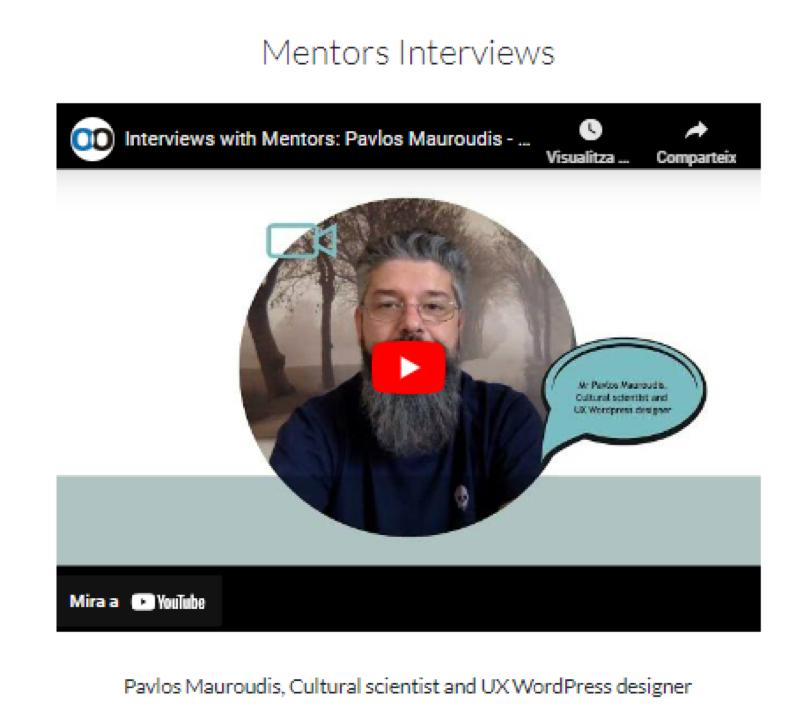
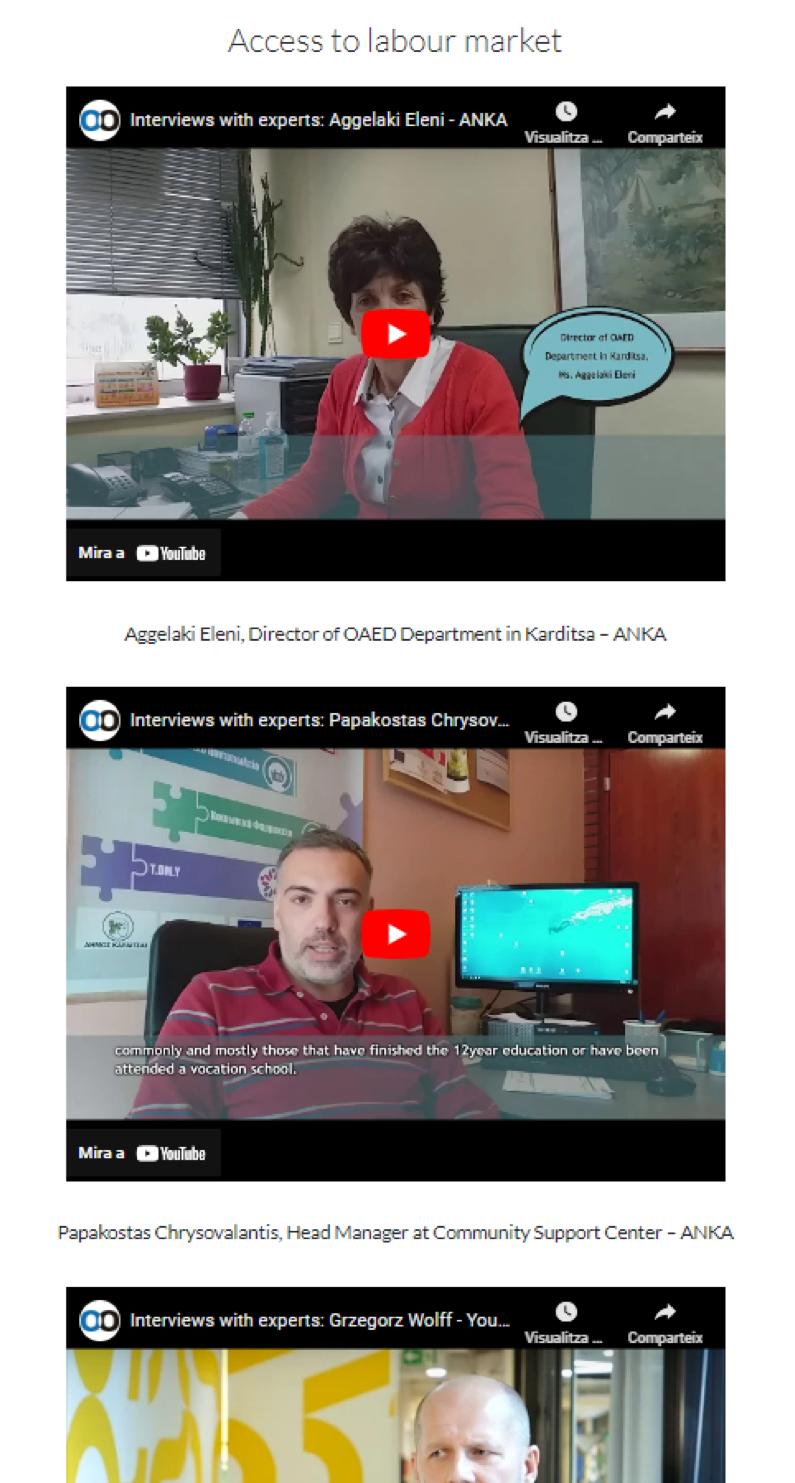

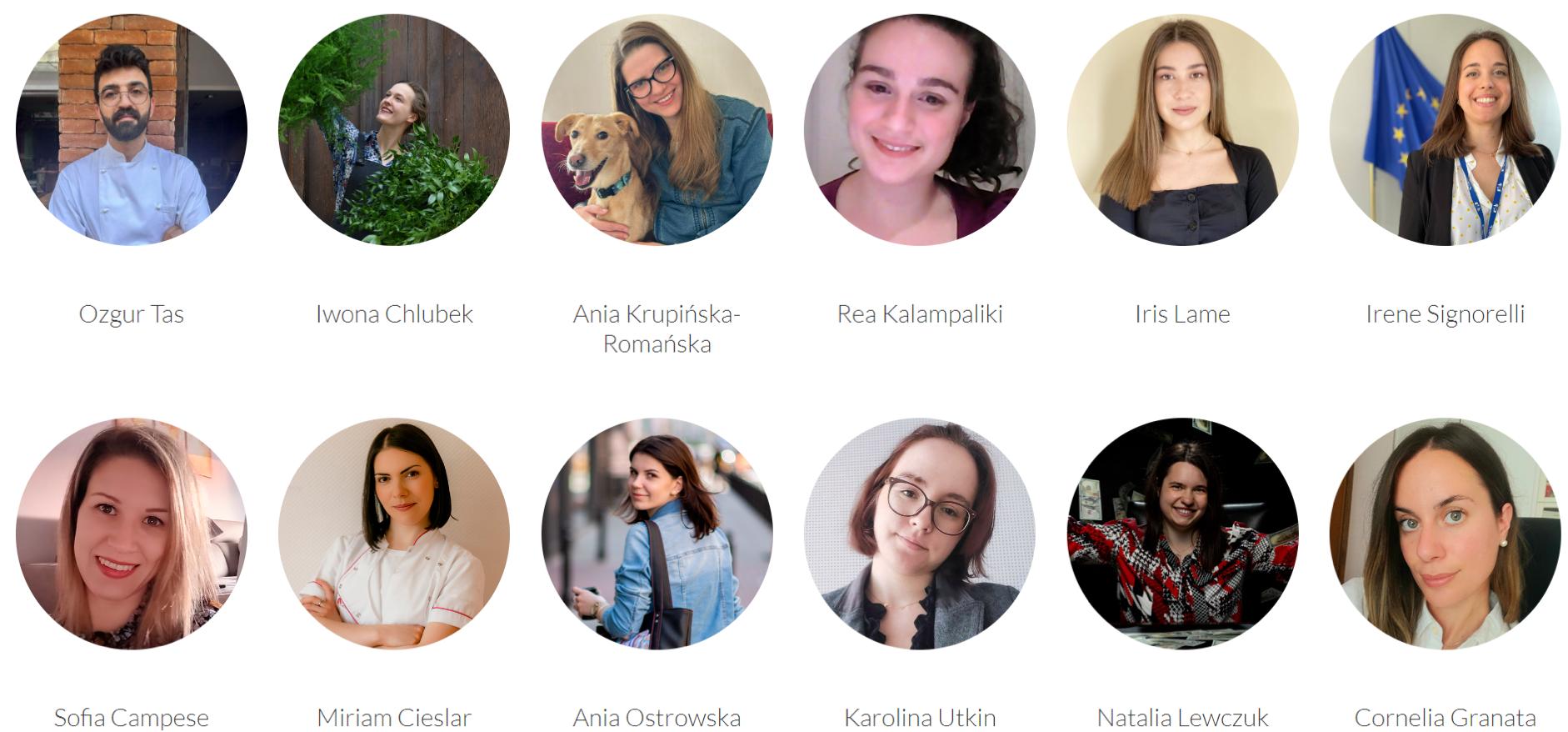
YES! SPECIAL EDITION Skillful Futures
Interview to Jo Gray Director of Membership Services and Engagement Youth Business International
Could you please briefly introduce Youth Business International (YBI)?
Youth Business International (YBI) leads a growing global network of 50 enterprise support organizations (our members with a passion for empowering underserved young people to start, scale and sustain their businesses. We work with our members to strengthen the capabilities and the quality of their delivery models to support young people into entrepreneurship. This can involve co-creating new solutions or developing existing approaches and scaling effective solutions. As the only global network focused on Youth Entrepreneurship, we draw on our shared knowledge and expertise to connect, collaborate and generate content to provide the global standard in inclusive economic programmes for young entrepreneurs.
During the last 5 years YBI has joined the Young Entrepreneurs Succeed project, together with other partners across Europe, funded by the EEA & Norway Grants Fund for Youth Employment. What is YBI’s role in this partnership?
Our project is made up of Research, Implementation and Knowledge partners. YBI is a knowledge partner in the consortium and our role has been to support the implementation partners by introducing or sharing relevant products and services that could enhance or improve their programmes. For example, we have shared our mentoring programme design approach and worked with partners to develop their capacity to improve and adapt these programmes. We have done this online, via face-to-face workshops and have shared content via the Peer Learning platform that was created by the consortium.
As Director of membership services and engagement you are very close to the entrepreneurship support organizations in Europe. What are their main challenges? How do you support them?
I think there are shared global challenges across our entire Network of 50 members. Accessing the funding required to not only deliver the quality programmes that are needed but also to ensure the organisations that run these are strong, sustainable and skilled. We are all working in volatile times and every organization I know has to be agile so that they can respond to the next global challenge that eventually impacts on economies and young people’s ability to create work and an income.
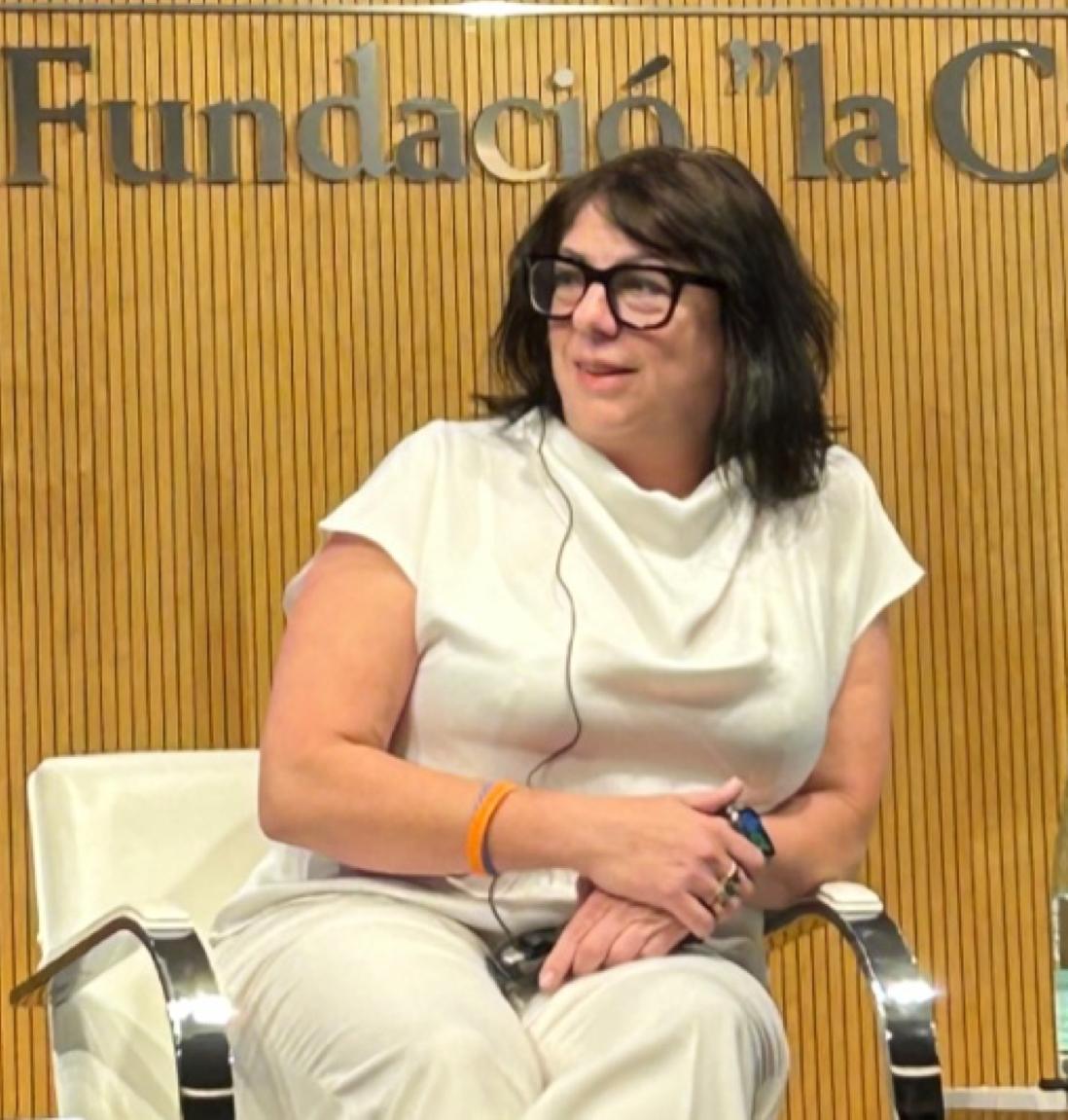
YES! SPECIAL EDITION Skillful Futures
For Europe, I think we are all aware of the impact of conflict and climate change which has caused huge numbers of people to migrate to survive. Many of our European members have specific programmes that support refugees and migrants. This is not going away, and we work together to identify good practices to ensure effective programmes that help refugees and migrants become entrepreneurs in a new country.
We also work together to develop tools to support young entrepreneurs with a social or green mission for their business. We see more and more young people with a drive to make a difference in the world and we are keen to ensure they have the right support to be able to achieve that mission.
How has the Covid pandemic affected the way you support the entrepreneurship support organizations and how they support young entrepreneurs?

During the COVID-19 pandemic, we all had to embrace digital tools fast but at the same time, understand how to use them to support the work we were all doing. No one could just flip their face-to-face activities straight to online. So, beyond the tools it was around how you created a good learning experience through a screen, there is a real skill in this. We have supported ESOs to develop their facilitation skills in the online space so they could continue to deliver impactful support to young entrepreneurs remotely.
One of YBI’s great achievements was moving our face-to-face Soft Skills curriculum online. The belief was that trying to support young people to develop critical soft skills could only happen face-to-face. However, with no other option we had to innovate and experiment and the end result was a series of learning sessions that worked in that environment.
Volunteer mentoring has been a key service to help young entrepreneurs to start and grow their businesses. Why is mentoring so powerful?
I have been involved in the world of mentoring for nearly 20 years and I have never seen a more powerful yet simple way to change lives. The impact of one person voluntarily giving their support and sharing their wisdom with another should never be underestimated. This type of generosity has no price tag. When these relationships are part of a well-designed programme, that involves support and development for all participants, that truly understand that these are human relationships not transactional exchanges of information – really there are no limits to what can be achieved.
I am continually in awe of those that give their time to support a young entrepreneur. It is absolutely critical to business success and there is so much evidence to support the impact it has on both the individual and the sustainability of their business.
What have you learnt being part of the Young Entrepreneurs Succeed partnership?
I have been reminded of the power of diversity and difference and the value this brings to all that we do. We have shared a mission, but all bring different backgrounds, knowledge and experience. This has led to robust conversations! But ultimately delivered better results.
SPECIAL EDITION Skillful Futures
I have been involved in the world of mentoring for nearly 20 years and I have never seen a more powerful yet simple way to change lives. The impact of one person voluntarily giving their support and sharing their wisdom with another should never be underestimated. This type of generosity has no price tag.
Let us share what the EEA & Norway Grants Fund for Youth Employment is also about: When we felt part of those amongst us that fall through the cracks of the system
On 28/06/23 in Larissa Prison a training course was completed with the participation of 15 imprisoned NEETs in the process of being released in the coming period. The thematic of Social and Solidarity Economy and Entrepreneurship was chosen, amongst a number of offers presented to them, by the trainees themselves. A warm heat wave to our hearts by their choice…still not the first or only one in our interaction with the colleagues working closely with our NEETs and the NEETs themselves. The course was implemented in the framework of YES! Project by the Development Agency of Karditsa (AN.KA. S.A.) in cooperation with the University of Social Solidarity Economy (UnivSSE Co-op).
Instead of any description from the NEETs’ side, allow us to share their evaluation comments hereunder:
"We have never experienced such a course before", “It meant a lot to us", "A good experience!", "We’ve learnt a lot", "We feel strong and will exert efforts to make things work after our release", "We hope to do something jointly together (meaning other prisoners) in the future".
Besides the feedback shared by participants, the Director of the 2nd Chance School of the Prison and the work consultant working at the School, also engaged deeply in this initiative, multiply expressed their gratitude for the highly qualified lecturers and the quality of the educational material.

YES!
SPECIAL EDITION Skillful Futures
They testified that they were impressed by the welldesigned training course and the overall cooperation with the implementing partners (AN.KA. S.A., UnivSSE Co-op) referring to the whole collaborative experience and the willingness and openness of the partners to further support, if need be, attendees in the future and find a way to expand the alliance beyond the said course.
“To us, this is hopefully the promising start of a collaboration and not just one go”, they said. They stated moved and honored by the attention they attracted though the seminar, which is not common when it comes to the most deprived and looked-under part of society, that is prisoners. They confessed that prisoners are the very definition of vulnerable as, apart from being prisoners, they usually fall under other categories of vulnerable social groups, indicatively ROMA, migrants, refugees, addicted, just to name a few.
As far as the lecturers of UnivSSE Co-op are concerned, they confided that this tutoring experience was a very special one. They stated amazed by the active participation and genuine interest of participants. The force of a better life after release seems to be driving for most of the participants, some of which are considering working together and starting a social enterprise consisting of ex-prisoners. At the beginning of the course prisoners could not even imagine that similar examples have been recorded in other countries while as the availability and eagerness of the tutors to further support such a potential venture ignited the hope of real re-integration. The latter is certainly something that the specific Prison Staff are to be thanked for as they pave the way towards re-integration while someone is still in prison. The rich curriculum and variety of activities being implemented under the 2nd Chance School is remarkable considering the standards we have in mind when thinking of the imprisonment system.
It goes without saying that, YES! partners, AN.KA. S.A. and AUA foremostly, declare ready to contribute through other YES! services as well (coaching, mentoring) and support prisoners with their expertise and know-how if need be. We also feel grateful for the impeccable cooperation with the entities involved in this action, proving in practice the value of the Trustbased Partnership Model. Grateful for the delicate
approach maintained by the Prison’s colleagues, as even the language used when reference to the prisoners was being made, implies the respectful attitude towards them.
Grateful, we are, for the quick reflexes of UnivSSE Co-op, which had to respond to this challenge in a short notice and for their level of professionalism and flexibility to support prisoners in the case of a future social economy venture, which is of course not deriving from any contractual commitment. Last but certainly not least, we wish to convey a big “Thank you” and “Congratulations” to the protagonists of this course, the attendees, who despite being perceived as outcasts, seem to work their way to a better life where giving back to the society and be valued as a member, raises hopes in all of us for a better way of being…
If we were not in a pre-election period, in GR, which obliged us to stay below the radar, we are pretty sure that the work of ANKA and our colleagues would be highlighted as an innovative and pioneer work with this specific sub-group of NEETs. We do promise, though, that our lessons learned will feed and hopefully guide the policy discussions when it comes to the rehabilitation of youth inmates.

Thank you, ‘Fund for Youth Employment”!!!!
Eleni Bletsa (ANKA), Yiorgos Alexopoulos (AUA)
SPECIAL EDITION Skillful Futures
Empowering Youth Through Flipped Learning for Remote Work
At the core of the "Go Remote:Unlocking the potential of remote job opportunities!" pilot project lies a profound commitment to reducing youth unemployment in Latvia's less developed regions. By addressing demographic, social, and economic barriers, the initiative aims to empower young jobseekers with relevant skills to access remote job opportunities. The project's collaboration with international partners showcases a dedication to leveraging global expertise and best practices in remote working trends. Furthermore, "GO REMOTE" acknowledges the significance of remote work's rising prominence in the contemporary job market and strives to bridge the skills gap, ensuring that young people are equipped to meet the demands of the evolving work landscape. Through its holistic approach to training, mentorship, and flexible learning, "GO REMOTE" lays the foundation for the brighter future of Latvia's youth, enabling them to flourish in the remote work domain and contribute to the growth of the nation's economy.
Next to the comprehensive training in remote-job professions like Data Input, Customer Support and Digital Project management, the Latvian team collaborated to provide an extra 60-hours recordings with additional tasks and homeworks that focuses on developing a range of valuable transversal skills highly sought after by employers in the field of remote jobs. These skills encompass communication, presentation, team management, leadership, online etiquette, cybersecurity, and data management and visualization. Trainees would have a choice to choose which topics to cover, but after each section, there would be a multiple-choice quiz of 10 questions, that would measure your knowledge.
In the context of Flip-learning, the "GO REMOTE" project exemplifies how trainers and youth workers can effectively leverage this approach to enhance the
growth and success of young students in an online environment. Embracing the concept introduced to the international team by the academics from Kellir Academy, the project has tailored its training program to maximize the benefits of Flip-learning. Through the provision of a diverse range of activities and exercises, trainers create an engaging and interactive learning experience that encourages active participation and self-directed learning.
In the flipped classroom model, trainers utilize recorded content, such as the 60 hours of course material offered by "GO REMOTE," which allows students to access and review the theoretical knowledge at their convenience. This asynchronous learning approach empowers students to pace their studies, ensuring they have a solid understanding of the concepts before engaging in practical exercises. The recorded content reinforces the commitment to the participants' success, as it provides a valuable resource for continuous learning and revision.
During the live, interactive sessions, trainer together with a mentor guide students through role-playing scenarios, group discussions, and real-life case studies, fostering critical thinking and problemsolving skills. The practical application of acquired skills in these activities enables students to understand the relevance and real-world application of the concepts learned. The Trainer's role is to be the head-master of knowledge and the mentor is there to help in breakout rooms or group sessions to those who feel behind. Furthermore, the emphasis on adaptability through unexpected challenges challenges students to think on their feet, promoting resilience and the ability to embrace change confidently—an essential skill for remote work and beyond.
GO REMOTE SPECIAL EDITION Skillful Futures
Trainer together with mentor also play a crucial mentorship role throughout the program. By offering guidance and support, on the training platform online and 40 minutes before the live session the mentor offers guidance for practical works of the course“Pop-in”concept, when those who need can come in at their own pace and ask questions or help.Trainees of the course together with a mentor create a positive and nurturing learning environment where students feel empowered to ask questions, seek clarifications, and grow both personally and professionally. The personalized attention provided in the flipped learning setup enhances student engagement and fosters a sense of community, where participants feel valued and supported in their learning journey.
All-in-all through a 2-month program consisting of theoretical and practical learning in 32-hour live sessions, young jobseekers from Latvia's rural areas are equipped with the essential tools to excel in the remote working landscape by easy-access to 60-hour learning materials that are diverse by topics of transversal skills needed in remote environment. We partnered with “Riga Tech Girls” - a well-known community in Latvia dedicated to educating and inspiring girls & women about technology. Within their network for the first year of training, they gathered professional speakers from the field, 2- 3 speakers for each topic, to cover the most moderate and modern information out there. Their community's "Explore Technology" education programme is increasingly gaining popularity in Latvia. Thanks to the widespread and successful sharing of the initiative on "Riga Tech Girls'" influential social network during the implementation year in Latvia, the project rapidly gained traction and increased its visibility, leaving an indelible mark on the first set of trainees and positioning itself as a trailblazer in tackling youth unemployment with innovative solutions.
“A big thank you to everyone involved. I learned and discovered many things that I once thought I would never understand, but now I do. Superb! Dāvis and Pēteris were exceptional leaders, very friendly, and always ready to help. It was a pleasure to attend the online lectures, especially to witness Dāvis's magical enthusiasm and joy when talking about Excel. Pēteris was fantastic at solving everything and motivating everyone to move forward! Thank you! It
was a wonderful experience, and it's a pity that it's already over” wrote a participant of the Data Input course. The team of the trainings in Latvia from all gathered feedback and comments can sum-up that participants are appreciative of the valuable knowledge and skills gained during the training, boosting their confidence in remote work. The young adults are creative, progressive and ready to communicate, if the trainers communicate providing personalized 1:1 communication with unwavering dedication to help each participant.
In the initial phase, 249 young individuals participated in the training, with 235 taking part in "Speed-dating" job-interviews, and 84 continued to work with mentors. During the second cycle, the project received over 400 applications, and more than 300 participants, aged 20 to 29 and including long-term unemployed and young mothers, engaged in the training program. The overwhelming response underscores the project's impact in addressing youth unemployment and equipping young individuals with essential remote work skills for a brighter future. Looking ahead, the trainers are actively seeking to participate in other activities empowering more young jobseekers in their journey towards successful remote work opportunities.
The “Go remote: Unlocking the potential of remote job opportunities!“project benefits from a € 1.168.039 grant from Iceland, Liechtenstein and Norway through the EEA and Norway Grants Fund for Youth Employment. The aim of the project is to reduce youth unemployment in Europe.
Article written by:
Darta Ansone
International project manager at “Visas Iespejas”
“Go Remote: Unlocking the potential of remote job opportunities!
SPECIAL EDITION Skillful Futures
NEETs in Italy
Among the various Italian emergencies, the growth of NEETs (not in Education, Employment or Training), is assuming worrying dimensions. Young people who do not study, do not work and are not included in training courses have exceeded three million in Italy, of which almost two thirds are women. This makes Italy one of the European countries with the highest number of young NEETs, with a higher incidence in the central-southern regions.
In this context numerous European and governmental initiatives are inserted to counter this phenomenon through active policies that see young NEETs as beneficiaries.
Among these is the EURIBOR project, of which REATTIVA, a non-profit organization with offices in Campobasso (Molise region) and Florence (Tuscany region), is a partner for Italy.

The project is intended to counter the aforementioned phenomenon through targeted actions of social inclusion and on-the-job training targeting women between the ages of 15 and 29. In fact, the Project envisaged a selection of 30 women in a vulnerable situation, residing in particularly disadvantaged areas, coming from migratory flows,
refugees, falling within a target characterized by social or psychological discomfort, to start a training path on the subject of e-commerce and digital marketing.
Here the project assumes the double value and the double objective of a social inclusion project and an active employment policy project. The project is currently in the process of activating internships with companies in the area.
The greatest difficulty in carrying out the project activities was certainly that of intercepting the reference target relating to people who live on the margins of society, girls who dropped out of school, girls who, despite having completed a course of study, have not undertaken a career path, single mothers, foreigners residing in migrational centres. The methodology used was that of the creation of a network between the various stakeholders including schools, municipalities, local public bodies, voluntary associations, local social areas and local employment centres.
Through synergistic and concerted actions between all the actors, the Project Team managed to identify and follow up the applications of 45 women from various backgrounds. So, after the procedural moment linked to the selection, the life stories of
EURIBOR
SPECIAL EDITION Skillful Futures
these women came out, stories that are sometimes dark and far from the common idea of adolescence we are used to.
The selections, followed by a team made up of a labor market expert, a training expert, a social worker, are in fact intertwined with stories of migration experiences, escape from hunger, war, walking for thousands of kilometres, violence along the difficult journey, illnesses, desperation and detachment from the families of origin, up to landing in migrational centers where, to soothe the wounds and begin a project of hope, there is that sharing with eyes that have equally seen hunger and sufferings.
Stories of distant worlds from the battered African continent but also touching stories of a world that is our world, a Europe that amazes us with a denial of rights and freedoms and with a war that still seems inexplicable, as unacceptable. Stories of girls who fled from the Ukraine of 2022, battered by a war that still seems to us a fiction and which instead has all the cruelty of the horrors of the past in their stories. Again, stories of very small towns emerge where, hidden in small houses, girls live or survive with lives
that are very different from those of their peers born and raised in urban contexts.
Girls who cling to each other to survive, aware that alone they are too fragile to find the strength to rebuild a new life. Delicate and fragile; difficult to talk to them because every question can make the wounds of their souls burn again.
From a silent and previous torpor, this whole scenario exploded with the exploration started with the EURIBOR Project. Different stories, many difficult, linked to girls who are given the hope of acquiring self-awareness first of all and then of entering a society that may appear less foreign, up to the training that allows entry into the world of work that can make them become protagonists of their lives.
Written by Luisa, expert of the EURIBOR Mobile Team
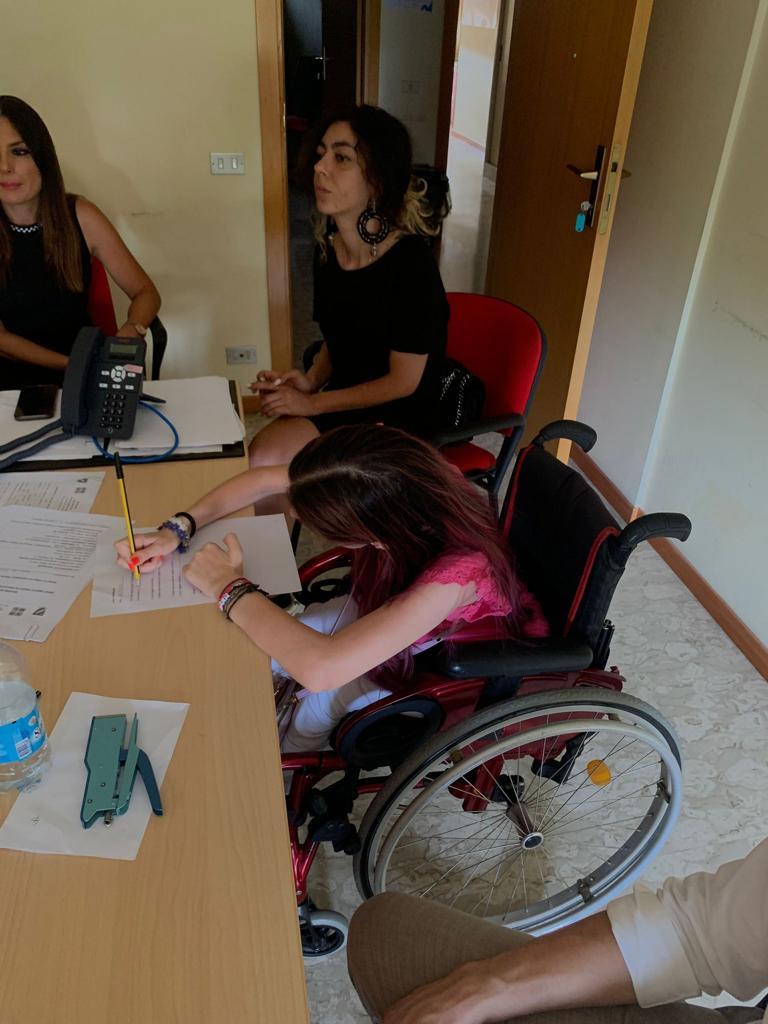
SPECIAL EDITION Skillful Futures
Skills for Good: Connecting NEETs with Green Jobs
The world is changing at a rapid pace, and it is young generations that will feel the impacts of climate change the most. Youths are also best placed to take on the challenges presented by the changing environment, which is why the INTERCEPT Project is working on connecting young NEETs with work in the green sector.
Led by Jobsplus in collaboration with eight other organisations from Lithuania, Italy, Poland, Slovakia and Luxembourg, the INTERCEPT Project is open to job seekers between the ages of 25 and 29 who are interested in building a career that has a positive impact on the environment.

We spoke to psychologist Kristina Jonaitienė, one of the trainers who took part in the project, about the effects that this initiative has had on youths so far.

What are the most important skills that participants gain through INTERCEPT?
Through the INTERCEPT project, we aim to raise awareness about the topic of the green economy through a non-traditional and nontheoretical training framework. This involves practical exercises, introspection, reflection, and discussions. During these sessions, participants explored alternative scenarios for designing the future labour market, prospective employees, and the implementation perspective of the green economy. The participants of the project honed their ability to make choices based on sustainable values, while emphasising personal responsibility at every step.
INTERCEPT
SPECIAL
Skillful
EDITION
Futures
They were also encouraged to develop a sense of awareness, understanding and the ability to foresee the consequences of different options. These qualities and skills will enable them to collaborate effectively with the green economy sectors of the future.
What feedback have you received from participants?
The participants expressed their gratitude for the lectures, stating that they found them interesting. They also thanked me for the excellent sessions, and after completing the training, they confidently affirmed that the sessions were truly beneficial. Moreover, the participants reported that the sessions were both captivating and engaging.
What was the biggest challenge that you faced, as a trainer, during this project?
The classes I led focused on the topic of motivation, but the groups had already come together and were highly motivated! Therefore, we changed our approach to harness their energy and enthusiasm towards making concrete plans, developing employment strategies, empowering themselves, and enhancing their ability to stay motivated.
How did the training impact the motivation and skill set of participants in their pursuit of internships?
Throughout the sessions, I noticed that some project participants tended to attribute their failures to external factors such as time constraints, the economy, employers, or inadequate education. I aimed to instil the understanding that personal choices and actions are the most crucial factors for success. We delved into analysing the various influences on these choices, particularly motivation. By establishing causal relationships, we could challenge unproductive or harmful belief systems.
It was truly rewarding to hear several participants open up after the training and acknowledge the need to take greater personal responsibility. As a culmination of the training, we collectively emphasised that motivation, the willingness to change, the drive to act, and the desire for change are the key components necessary to redesign their future employment scenarios. I firmly believe that this experience will empower the participants to pursue their goals with even greater motivation, consciousness, and determination.
SPECIAL EDITION Skillful Futures
Working Towards a Greener Future
Through INTERCEPT, youths learn practical skills that prepare them for work in the green sector. Participants also undergo a 240-hour paid work placement with green businesses, giving them firsthand work experience. We spoke to two participants – Sean Azzopardi from Malta and Laura Repsyte from Lithuania – who share their own experiences of taking part in the INTERCEPT Project.
Sean Azzopardi, Malta

goals. Even in my current role as a Media Editor, I have already met people who have helped me realise what steps I can take to change things for the better.
The project has taught me many lessons and helped me focus on my long-term goals. I learned that people are not as closed-minded as I previously thought, and I had the pleasure of working with people from different walks of life who shared ideas and collaborated on important projects.

Through the project, I got the opportunity to explore ideas that I had never discussed before. Our trainers took time to listen to my ideas, allowing me to elaborate further and share knowledge that I had about different topics, such as the overpopulation of Oriental Hornets which has led to agricultural issues. Being listened to by the trainers has given me more motivation to speak up. I now look at things through a different lens and I feel like a better person, for which I am grateful!”
“After growing frustrated at the lack of progression in my previous roles, I felt it was time for a change. I was looking out for a new avenue to explore, and the INTERCEPT Project proved to be everything I was looking for and more. When thinking about my career, I aspire to be a driver of change – whether it’s through politics or foundations – to promote a better way of working. I want to be able to look back and see the changes that I helped make for myself, the people around me and future generations. INTERCEPT has undoubtedly helped me move closer towards my
INTERCEPT
“Being listened to by the trainers has given me more motivation to speak up”
SPECIAL EDITION Skillful Futures
“When my PES consultant asked me whether I would be interested in joining the INTERCEPT project, I was immediately intrigued. We soon scheduled a meeting where I was given more detail about the project, and I was thrilled at the opportunity because I had a strong desire to expand my knowledge about sustainability, the green economy, and the integration of technology in the workplace.
Through INTERCEPT, I learned about the importance of maintaining sustainability not only in our personal lives and the environment but also in the workplace and our relationships with employers. The knowledge and insights shared during the training made me realise that work should offer opportunities for self-realisation, skill acquisition, and the enhancement of existing competencies. Moreover, the project revealed that many people face similar challenges, regardless of their age, such as uncertainty about their desired career path or the type of work they want to pursue.
Apart from gaining a deeper understanding of sustainability, this project has taught me valuable teamwork skills. Moreover, this experience has led me on a journey of self-discovery to recognise my strengths such as discipline, which is one of my

positive attributes. I also discovered my interest in communications through this project, which aligns with my career aspirations that I had before participating. I feel even more motivated, now, to pursue a career in this field.
I would highly encourage other youths to participate in this project, particularly because it encompasses both theoretical and practical components. The internship component allows participants to work in their dream companies while also providing an opportunity to explore entirely new and unfamiliar fields. The project organizers offer guidance and support throughout both the theoretical and practical phases. The theoretical part of the project deepens participants' knowledge of sustainability, the green economy, and technology, while also providing selfdiscovery exercises such as various tests and psychology lectures. Overall, this project offers a comprehensive and rewarding experience for youths, and I would highly recommend it!”
 Laura Repsyte, Lithuania
Laura Repsyte, Lithuania
“This experience has led me on a journey of self-discovery to recognise my strengths”
SPECIAL EDITION Skillful Futures
Navigating the Future: Youth Perspectives on Essential Skills in the Ever-Evolving Job Market.

In an ever-evolving global economy, the dynamics of the labor market are undergoing a profound transformation, demanding a versatile and adaptable workforce equipped with a diverse set of skills. As industries embrace technological advancements and innovation accelerates, the demand for traditional job roles diminishes, making way for a new landscape that values skills acquisition more than ever before. For the youth, who stand on the cusp of their professional journeys, understanding the skills required to thrive in this rapidly changing job market is of paramount importance. To shed light on this critical subject, this article captures the insights and opinions of the youth on the skills they consider essential for a successful future.
The results were gained from a questionnaire, given to young people by the YOUTHShare project, and offer valuable insights into the skills gained through training programs and the youth's perception of their relevance in the labor market. One striking observation is the diversity of skills acquired during the training, ranging from traditional ones like language, economy, and communication skills to
modern digital skills and entrepreneurship. The respondents highlighted the significance of digital skills, including IT proficiency and using new technologies for entrepreneurship, indicating an awareness of the growing digitalization in various industries. This underscores the importance of fostering technological competence among the youth, as it can open doors to employment opportunities and empower them to venture into entrepreneurship confidently.
It is encouraging to note that a majority of the respondents believe that the skills acquired during the training programs will indeed assist them in finding a job or starting their own business. The enthusiasm shown by some participants, expressing how the training boosted their confidence and equipped them to pursue their dream ventures, reinforces the positive impact of skill development programs. This aligns with the idea that a wellrounded skill set not only enhances employability but also nurtures a culture of entrepreneurship, crucial for driving economic growth and innovation.
YOUTHShare
SPECIAL EDITION Skillful Futures
Moving on to the question of upskilling and reskilling, it is evident that most respondents acknowledge their importance in the local job market. The rapidly evolving nature of industries and the job market is acknowledged, and young individuals recognize the need to constantly improve and enrich their skills to remain competitive. The correlation between continuous self-improvement and better job prospects is well-acknowledged by the respondents, emphasizing the role of upskilling and reskilling as an ongoing process that ensures one's employability in the face of evolving job demands.
As for the skills needed in the future , respondents expressed a mix of technical and soft skills. The growing significance of digital and programming skills is emphasized, reflecting the increasing reliance on technology across various sectors. Additionally, the mention of environmental protection and marketing skills, highlights the emerging need for sustainability-oriented expertise and effective communication in an ever-connected world. Furthermore, the significance of networking, public speaking, and language proficiency indicates the enduring importance of interpersonal and communication skills, regardless of technological advancements.
In conclusion, the answers given, paint a clear picture of the youth's recognition of the importance of skill gaining in the labor market. With an emphasis on digital competencies, entrepreneurship, and continuous self-improvement, the respondents demonstrate a keen awareness of the evolving job landscape. As we progress into an increasingly digital and interconnected era, cultivating a versatile skill set that combines technical prowess with strong soft skills, will undoubtedly empower the youth to navigate the challenges and seize the opportunities of the future job market successfully.
Anna Saroukou, Communication Manager, YOUTHShare Project
SPECIAL EDITION Skillful Futures
The contribution of the YOUTHShare consortium on youth employment
In Europe, youth unemployment in April 2023 was 13.8%, which translates to 2.664 million young people under 25 (Eurostat, 2023). YOUTHShare aims to reduce youth unemployment in coastal and island regions of the Mediterranean EEA by advancing young NEETs skills in trans-locally resilient economic sectors such as agri-food production and related circular economies. The importance of tackling youth unemployment is to give young people the opportunity to enter the labor market, but it can also benefit organizations, businesses, and society in general.
By understanding the challenges faced by young people in the job market in relation to selfemployment issues and social entrepreneurship, it is possible to contribute to reducing youth employment. For YOUTHShare, the Southern European countries were economically affected by the economic crisis, which resulted in a mix of high youth unemployment and anemic growth in the aftermath of the recession. Also, the Mediterranean regions of the European Economic Area have been unfavorable in recent years. Greece, Italy, Spain, and Cyprus have become the entry points of mixed migration flows. The economic pressure of managing the humanitarian aspect of the flows and contributing to their integration later on adds to the socio-economic pressure of tackling unemployment.
Based on the above challenges, the YOUTHShare consortium developed material that can contribute to the reduction of youth unemployment with courses in the eLearning platform of the project (https:// elearning.youthshare-project.org/login/ ). The courses aim at empowering young women, migrants, refugees, asylum seekers, and youth in general on "Concepts and Tools in the Social, Sharing, and Resilient Economy". Through the platform but also through synchronous training, young people were
able to learn how to develop a sharing platform, how to present and promote their ideas on social media, and how to transform a business idea into practice. Other than that, users can understand the different employability paths in relation to agri-food, tourism, and the circular economy within the Mediterranean European Economic Area (MED EEA).
Furthermore, the YOUTHShare consortium created a second platform called the Sharing Economy eplatform, which networks social enterprises in resilient sectors (Join2Share e-platform: https:// join2share.eu/), which is a networking platform for the Social and Solidarity Economy. The social and Solidarity Economy aims to support individuals, and that is also what the platform provides. Join2Share aims to help SSE entities share knowledge, ideas, services, products, and much more. You can promote your SSE business and its social innovation and goals; you can find other similar businesses and stay in touch with them; you can discuss a variety of topics with other members; you can find products and services from other SSE businesses and expert professionals; you can keep up to date with events; you can receive (and provide) information about legal matters, funding opportunities, and more.
Upskilling and reskilling are crucial methods for professional development because job indicators change quickly. Their employability has improved, and they can take advantage of new employment prospects thanks to lifelong learning. All the resources and services are available online to encourage young people to upskill or reskill themselves, and trainers, mentors, and youth workers of the YOUTHShare initiative continuously work to assist young people in their job path.
Foteini Sokratous, KAM CARDET, YOUTHShare Project
YOUTHShare
SPECIAL EDITION Skillful Futures
Towards resilient youth labour markets. Tackling skill shortages and youth precarity through Observatory-based Research event
- The Cowork4YOUTH Employment Observatory and the
- The [e-Reslab Aegean] Observatory for employment and resilience in the Euro-Med Area
Mark your calendars for September 14th as the YOUTHShare and Cowork4YOUTH projects, in collaboration with the Fafo Institute for Labour and Social Research, present a common event entitled: "Towards Resilient Youth Labor Markets: Tackling Skill Shortages and Youth Precarity through Observatory-based Research." This event, hosted at the captivating Fafo Institute building, will be accessible to a global audience through a hybrid mode of participation. A link of the event will be provided soon!
Approved by the European Union as an "European Year of Skills" event, this event’s aim is to present the Observatories developed on skills and youth labour markets in the young workforce and discuss ways to improve the collection and processing of up-to-date and granular data, as well as Observatory-assisted research and production of policy recommendations. You can find more information about the event here: https://year-of-skills.europa.eu/events-andactivities/towards-resilient-youth-labour-marketstackling-skill-shortages-and-youth-precaritythrough-2023-09-14_en and its location on the interactive map at https://year-of-skills.europa.eu/ index_en.
The event will consist of main and introductory addresses and two sessions. The first session will focus on introducing the Observatories and platforms developed by the participating projects:
- The YOUTHShare Youth Employment Monitor (YEM).

The observatories provide information and up-todate data regarding youth employment and its different aspects, and can act as useful tools for conducting any further research regarding employment, youth employment and policy implementations. The YOUTHShare job and coworking spaces matching platform aims at facilitating the identification of suitable and available co-working spaces in Greece, Cyprus, Italy and Spain.
The second session will consist of presentations regarding Youth Employment and Skills. The topics will be about: Precarious youthspaces and the role of social and sharing economy, The role of co-working spaces in engaging the youth, Mapping skills in youth labour markets across the EU and Youth labour in energy transitioning regions. Both sessions will be followed by interactive discussions, encouraging a fruitful exchange of ideas and solutions that contribute to building a more resilient youth labor market and broader labor market improvements.
Anna Saroukou, Communication Manager, YOUTHShare Project
YOUTHShare SPECIAL EDITION Skillful Futures
Unleashing Youth Potential through Skillful Trainers, Mentors and Dedicated Youth Workers
Youth unemployment is a critical global issue that demands urgent attention. Young people are a valuable resource for any society, and their productive engagement in the workforce is crucial for economic growth, social stability, and overall development. However, in many regions of Europe, youth unemployment rates still remain very high, leading to a range of negative consequences such as increased poverty, social unrest, and diminished opportunities for future generations. Tackling youth unemployment requires a comprehensive approach involving various stakeholders, including governments, businesses, and civil society. One key group of stakeholders that play a significant role in addressing this issue is trainers and youth workers. These professionals are instrumental in equipping young people with the necessary skills, knowledge, and support to transition successfully into the labour market. They can contribute to facing youth unemployment through skill development activities,
career guidance, entrepreneurship support, upskilling oriented training, networking opportunities and mentoring programs.
Young people face several specific challenges in the job market, particularly when it comes to selfemployment and social entrepreneurship. For example, they might have limited experience and networks, it can be difficult for them to have access to finance, and sometimes they also need to balance education and entrepreneurship. The initiatives related to the YouthShare 2.0 project focus on providing mentorship, training, project support, and networking opportunities to empower young entrepreneurs and social innovators to overcome the obstacles they face in the job market.
Developing core skills that are highly valued by employer is crucial for young people entering the job market or pursuing their careers. These skills, such as

YOUTHShare SPECIAL EDITION Skillful Futures
communication, problem-solving, teamwork, and adaptability, are often referred to as soft skills or transferable skills, and they play a significant role in a person’s success in the workplace. Trainers, mentors, and youth workers play crucial roles in providing guidance, solutions, and support to young people as they navigate various challenges and transitions in life. Each role has its unique focus and approach, but they all aim to empower and assist young individuals in their personal, academic, and professional development. The resources and tools that they can use to support young people are diverse and continually evolving: online platforms and e-learning, mentorship programs, mobile apps, community resources, workshops and activities, social media, skill development programs, collaborative projects. Of course, the specific resources and tools used may vary based on the needs and preferences of the young individuals and the goals of the trainers, mentors, and youth workers. The most effective approaches involve a combination of personalized support, relevant resources, and an understanding of each person’s unique circumstances and aspirations.
Forging partnerships with local businesses, industries and community organizations is crucial for creating employment opportunities for young people for several reasons, such as access to job opportunities, upskilling, networking and support, and fostering community engagement. The YouthShare project is an example of successful specialized training programs, aiming at upskilling young people and giving them the tools tailored to their needs, also through internships. Overall, the project shows a comprehensive approach to tackling young unemployment, by leveraging the expertise and resources of various entities, young people can access better job opportunities and, in turn, contribute to the growth and prosperity of their communities.
As educators and guides, trainers, mentors and youth workers have the power to instill a culture of lifelong learning among the youth, which is essential for their personal and professional growth. They have the unique opportunity to inspire curiosity and foster a love for learning. Encourage young people to seek new opportunities for growth, whether it’s through formal education, online courses, workshops, or selfdirected learning. By promoting a culture of lifelong learning, they can equip young individuals with the skills and mindset needed to navigate a dynamic and
unpredictable future. The journey of learning never truly ends, and by setting an example as lifelong learners themselves, trainers and mentors can inspire others to do the same.
Rosa Messuti – GAL Cittadella del Sapere, YOUTHShare Project
SPECIAL EDITION Skillful Futures
"Unlocking Youth Employment Potential: A Focus on the Tourism Sector Amidst COVID-19"
The COVID-19 pandemic has been an unprecedented disruptor, and young people aged 15 to 25 have borne the brunt of its impact, particularly in the tourism sector. This pandemic-induced crisis has intensified existing labor market challenges faced by young individuals, making it increasingly difficult to access gainful employment especially related to tourism sector.
The tourism sector was brought to a standstill by lockdowns, travel restrictions, and plummeting revenues for more than 2 years on the run. Many young individuals found themselves out of work, while others hesitated to enter again the industry amidst uncertainty.
Today, the tourism sector has been gradually in rise again! New recruitment opportunities in the tourism sector became evident in last years. However, key challenges are there! Young people, often lacking the experience or the skills needed by tourism businesses! Both lockdowns and the distance learning approach endorsed during Covid -19 seriously impact this young’s generation upskilling process. As an example, distance learning did not provide the same level of practical training needed and the one that could be gained via hands-on experiences! Evidently, there is some truth in the arguments of hotelliers about that in 2023 youngest workers lack some key skills in customer services in tourist industry! But as you can read below, it is not the only one!
The Struggle of Hoteliers in the Greek Islands, Philip Panas, Operation Manager-Alexander the Great Hotel
The enchanting Greek islands, with their idyllic beauty and Mediterranean charm, have become a
magnet for tourists worldwide. However, behind the postcard-perfect scenery lies a daunting challenge for hotel owners – finding and accommodating staff. As the influx of visitors soars during peak seasons, the demand for hospitality services reaches new heights, leaving hotels grappling with the scarcity of skilled personnel. The seasonal nature of the industry, coupled with remote island locations, compounds the difficulty in attracting and retaining qualified employees. Housing them presents yet another hurdle, as affordable and suitable accommodations become scarce commodities. In the quest to provide exceptional experiences to guests, hoteliers are forced to adopt innovative solutions, navigating shared lodgings and temporary arrangements to ensure their teams can continue delivering warm hospitality in paradise.
Obviously, the challenges faced by Greek island hotels is more intense! These remote islands due to its population size have a limited local talent pool obliging them to attract employees from densely populated areas! This solution of course generates a new challenge how to find suitable accommodations for employees! Evidently, Greek remote island hotels face significant challenges in recruiting and accommodating skilled staff due to the seasonal nature of the industry and their territorial characteristics.
YOUTHShare had tried to help remote island hoteliers by providing a pool of possible youth workers! Of course, not always successful, as the same problem of highly demanded tourist personnel is steadily increasing!
YOUTHShare SPECIAL EDITION Skillful Futures
On the other hand, young people are not willing to work in tourist industry! The seasonal character of the work and the existing preconceptions about working conditions are a deterrent to this career choice! They usually see it as temporary job to supplement their income during their studies!
YOUTHShare trainee, No name
“Undeclared work, informal forms of employment (part-time, temporary), dependent employment relationships, low wages, unpaid overtime are some of the issues that young people nowadays encounter more and more frequently, especially in the tourist sector. Also, many young people, especially those who choose to work "in season", are also faced with poor working conditions, with many employers not even following the legislation with employment contracts and insurance for the employee. Working in the tourism sector is often unfortunately translated as working long hours, which it is not actually reflected in the pay. Working for 6-8 hours per day under sun, extreme heat conditions and pressure, for a salary that may not exceed 4 euros per hour. Finally, due to pandemic and the lockdowns employers claim losses and choose to hire less people than the one that they actually need. Why on earth to choose to work in tourist sector? For working no more than 3 months of the year? It’s ok for now, but I am looking for another career choice.
Obviously, the high youth unemployment that exists is not due to insufficient demand for labour on the part of employers, which is the usual type of unemployment, but to the mismatch between the jobs on offer and the skills available on the market. In absolute numbers, staff shortages based on the data of "Insete" amounted to 60,225 of the 262,981 jobs provided based on the organizational chart of Greek hotels in 2022 and it is more this year! This mismatch between the jobs on offer and the skills available on the market were increase due to pandemic.
Organizations, and educational institutions are essential to revitalize the industry and offer targeted support and training to young individuals seeking opportunities within this sector.
YOUTHShare was able to organize the most needed internships in the tourist sector as well during its years of operation, and able to match the needed personnel with the well –fitted employer! Greece, employers and hotel industry need to invest more in targeted training and internship in tourist industry
sector! By investing in initiatives that promote tourism-related skill development, mentorship programs, and entrepreneurial ventures, we can ensure that young people are equipped to flourish in the transformed tourism landscape. A strategic focus on the youth will foster resilience and adaptability, preparing them to contribute meaningfully to the industry's resurgence.
Aimilia Markaki, KAM NESC, YOUTHShare Project
SPECIAL EDITION Skillful Futures
Youth employment in the tourism sector and its challenges
Youth employment in the tourism sector has traditionally been an important source of employment for young people, offering both full-time and part-time job opportunities. However, in recent years, a decline in youth labour force participation in this industry has been observed. This phenomenon raises concerns about working conditions, skills shortages and employment trends in the tourism sector. In addition, the exploitative situation that some young workers may face needs to be addressed. A significant problem in youth employment in tourism is working conditions. Young workers often face long working hours, low wages and lack of employment benefits. In addition, work in the tourism sector often involves irregular shifts and flexible working hours, making it difficult to reconcile work with other aspects of young people's lives, such as education or leisure time. These unfavorable conditions may discourage young people from entering the sector or lead them to seek employment in other industries.
A further major challenge is the skills shortage. Many jobs in tourism require specific skills, such as language skills, customer service, hotel management or tourism marketing. However, the lack of access to quality education and adequate training programmes makes it difficult for young people to acquire these skills needed to enter the tourism sector. This lack of qualifications limits employment opportunities for young people and can also contribute to labour exploitation, as workers without the necessary skills are more likely to accept precarious working conditions.
Moreover, employment trends in the tourism sector have also changed in recent years. Digitalisation and automation have led to a reduction in demand for certain traditional jobs. On the other hand, new job
opportunities related to technology and digital platforms have emerged, such as working in online marketing, social media management or tourism app development. However, these new trends require digital skills that many young people do not yet possess.
There are multiple reasons why there is a decline within the young labour force in the tourism sector. The COVID-19 pandemic has had a significant impact on the tourism industry, with hotel closures, flight cancellations and travel restrictions leading to a decrease in demand for tourism services. This has resulted in job cuts and consequently a lack of opportunities for young people. The lack of development and promotion of careers in the tourism sector has also played a role. Many young people may see tourism as a temporary or low-quality job with no prospects for career growth. This perception limits their interest in entering the sector and their motivation to acquire the necessary skills.
Overall, youth employment in the tourism sector faces challenges in terms of working conditions, lack of skills and changing employment trends. Addressing this situation requires investment in sector-specific training and education programmes, as well as the promotion of sustainable and responsible tourism. By taking these measures, labour exploitation can be reduced and opportunities for young people in tourism can be improved, creating a more equitable and promising working environment for this generation.
Jose Fernandez, AEII YOUTHShare Project
YOUTHShare SPECIAL EDITION Skillful Futures
My work as a Key Account Manager of YOUTHShare project, NESC
The empowerment of youth plays a pivotal role in shaping a brighter, socially equitable and sustainable future. YOUTH Share besides trainers, project managers and communication officers has envisaged the role of the Key Account Manager to operate its 4 transnational employment centres (TECs). Mainly, the idea of reaching out/coaching /jobplacement /mentoring, from one person, the KAM was adopted, adapted and elaborated from the new practices for work inclusion of the “Ripples in the Water Methodology” in Norway -NHOConfederation of Norwegian Enterprises. KAMs takes an “in-between role” providing support both to employers and to NEETs. All KAMs acted as a liaison, career coach, life coach, facilitator, and a diverse manager with aim to impact on workplace inclusion policies approach in their territory! This article sheds light on how we are working to fulfill the YOUTHShare vision.
Work as a Project Managers: Turning TECs into Reality and networking with local territory
As a KAM I should ensure the smooth operation and success of the YOUTHShare TECs. Drafting strategic plan, communication strategy and elaborating on a effective resource management, and keen attention to detail was a crucial task in turning TEC into a tangible centre open to all NEETs. By collaborating with various stakeholders and partners, my role was to create a dynamic network of support that amplifies the project's impact and brings about positive change on a larger scale.
Work as career officer: Building Foundations for Success
As a KAM, I work tirelessly to engage young individuals from diverse backgrounds, offering them guidance, counseling, and a safe space to express
their thoughts and aspirations. By actively listening to the concerns of the youth, by identifying their unique needs and dreams, youngsters felt welcomed. Through this personalized support young people will be more eager to talk about, plan and go on for developing essential life skills or/end build the confidence to navigate life's complexities.
Work a liason between NEETs and Employers
As a KAM I have to encourage employers to offer internships and apprenticeships to NEETs. I had to organized different “Job Matching meetings” to match NEETs with suitable job opportunities. I found extremely difficult to take this role! I had to find the right language to communicate with employers ! On the other hand, I had to train or/and assist job seekers with resume building, interview preparation, and providing guidance throughout the hiring process. A sense of personal fulfillment took place every time when a successful match occurred. Witnessing a positive transformation in the lives of the NEETs, knowing that I have played a role in shaping their career paths, was my best reward for this job.
YOUTHShare has not only transforms the lives of NEETs but also lays the foundation for it had left an indelible mark on my heart and mind and give me the power to dream once again for a better world for us all.
Aimilia Markaki, KAM NESC, YOUTHShare Project
YOUTHShare SPECIAL EDITION Skillful Futures
Let’s ask the trainers! An insight on their experience with young NEETs in Extremadura
For this special edition of the Youth Employment Magazine for the European Year of Skills 2023 and following the RAISE Youth philosophy of empowering youth and giving them the skills needed to improve their job prospects and encourage them to find (self) employment, we wanted to ask the trainers that have participated in the RAISE workshops and training programmes in Extremadura about their experience and what they think are the most important skills a trainer must have to engage with young NEETs and make them participate in the training sessions.
For the purpose of this article we asked a series of question to several trainers that have participated with the team of FUNDECYT-PCTEX in the formative activities organized within the framework of the RAISE Youth project and this is what they have to tell us:
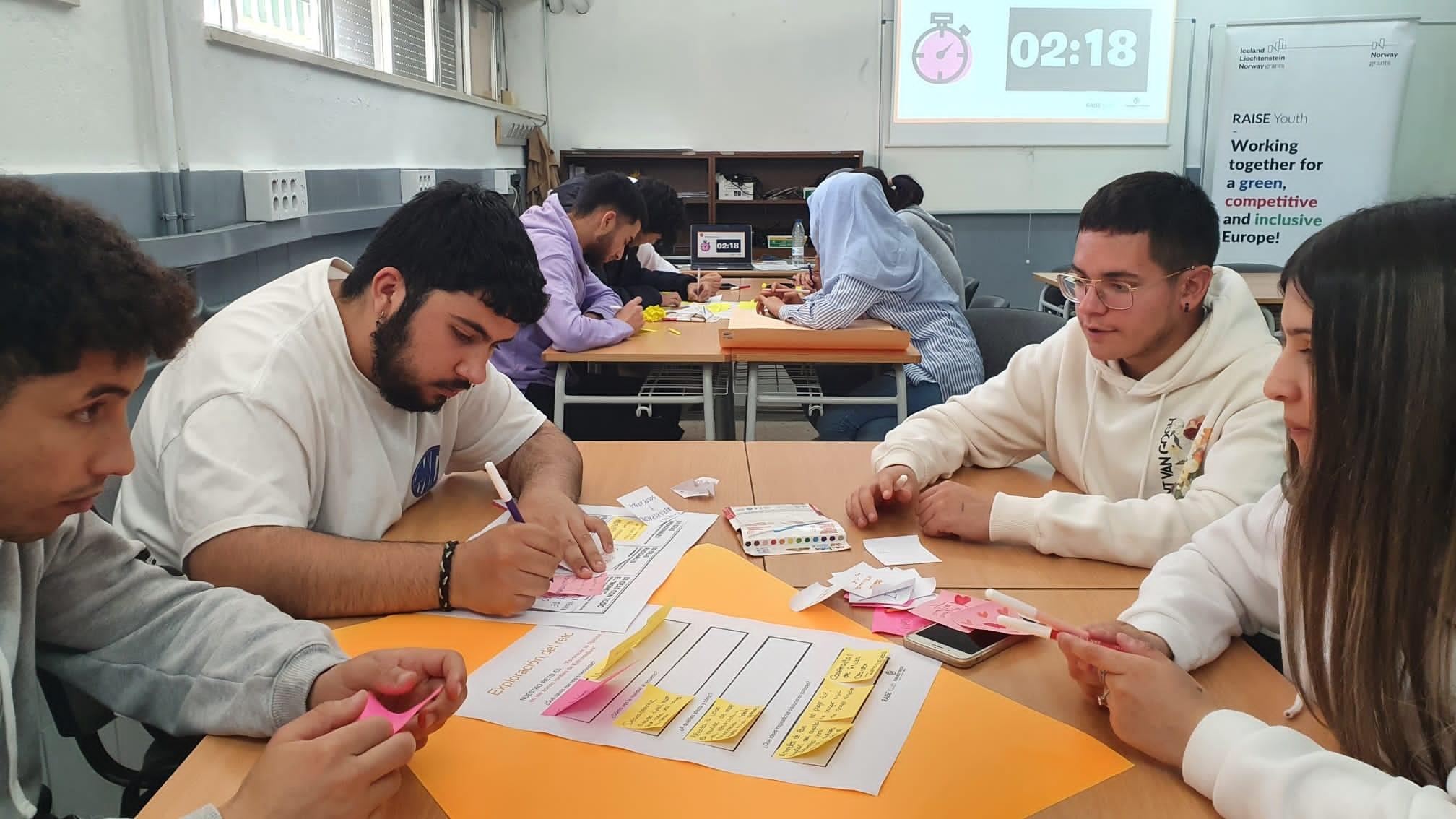
• What are the most important skills a trainer should have when connecting with young people?
When asked this question, the trainers emphasized the importance of having high empathy and the need of refocusing training on more practical cases that put young people at the center of the learning process. When engaging with young people, it is important to keep their motivation and engage them in the learning process by active listening to them, having high communication skills and using youth-friendly resources that they feel comfortable using and are relevant for the training.
• What are the tools and resources that work
best when connecting with young people
in Extremadura?
The trainers mentioned that the tools and resources used when connecting with young people are not the priority, but where the trainers put the focus of the activity. From their point of view, we have to shift the
RAISE Youth SPECIAL EDITION Skillful Futures
focus from the trainer as the figure of authority and put it on young people, making them active agents in the training process, giving them more autonomy and relegating the figure of the trainer to a more supporting role, somebody young people can look for when needing advice but that does not constrain their learning process.

They also noticed that, when connecting with young people and making them engaged in the learning process, one of the methods that has proven to be most successful is the Bring Your Own Device (BYOD) approach. By allowing young people to bring things they are familiar with (i.e. their mobile phones) it is easier for them to participate, as trainers play on this familiarity to implement training activities. In conclusion, the main role of the trainer and the best way to connect with young people is to connect their emotions with the training process because, as the trainers interviewed summed up really well: “Without emotion there is no learning”.
• Is it important to know the business and social fabric of the region when working with young people?
When asked this question, they trainers main conclusion was that every training activity and initiative must be supported by the reality of each
context. The trainers must know beforehand, at least on a superficial level, what are the particularities of the regions and communities they are working with and it is their job to connect the training with the territory. By knowing the problems, challenges and resources available and by letting young people share what do they perceive to be the direst problems in their communities and vicinities are currently facing, trainers can enable young people come up with ideas based on the territory, engage them by making the training based on their own perceptions and co-create a space where young people can freely exchange their ideas and, in conclusion, learn.
• How do you keep your skills up to date? Do you think it is important?
In regards to the upkeep of their skills one phrase I would like to highlight is: “We are always on beta, in order to be a trainer, you must always be getting trained in order to learn, you must know how to learn.” In order to connect with youth and keep up with their trends and interests, trainers must be where young people are, either in situ or online. By doing this, by being where youth are and by always learning new skills and relearning old ones, a trainer can successfully engage with young people and give them the training they may need.
SPECIAL EDITION Skillful Futures
Is it important for young people to improve their skills?

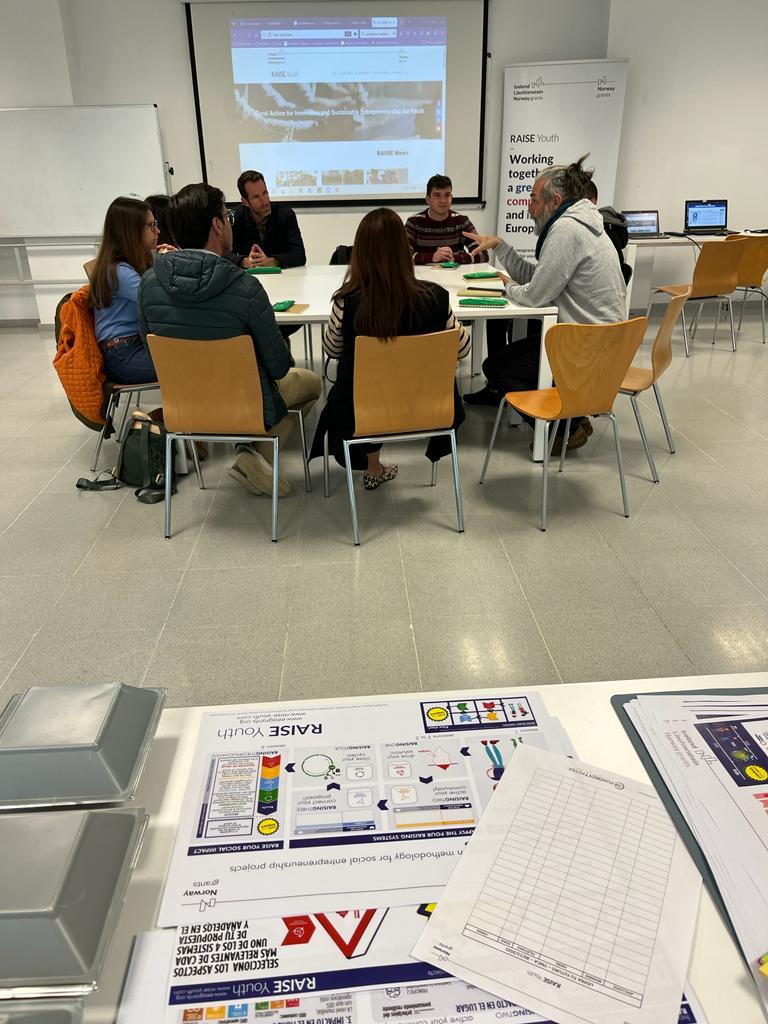
It is of the utmost importance that young people keep on training and developing their skills. The trainers interviewed emphasized that we currently live in an everchanging environment and that is very necessary for young people to keep up to date with what is going on in the world. By having a set of well-developed skills to face the challenges that young people will face when accessing the labour market, young people will be able to properly address this challenges and problems and become more resilient to create a better world for everyone to live in.
Trainers also pointed out that when developing skills and getting trained there is not always a need of formal training because people can learn from every experience they have. Every skill can be transformed and upskilled and, by being willing to adopt this way of thinking, we can help young people improve their own skills and help them be better-equipped for the world we live in today.
•
SPECIAL EDITION Skillful Futures
The main role of the trainer and the best way to connect with young people is to connect their emotions with the training process because, as the trainers interviewed summed up really well: “Without emotion there is no learning”.
RAISE Youth Expert for Family farm Business
The RAISE Youth - Rural Action for Innovative and Sustainable Entrepreneurship for Youth project pilots and promotes an innovative RAISE Model of (self) employment for NEETs based on sustainable agribusiness in 4 rural regions of EU with high unemployment rates and depopulation. Since the start of the implementation in 2018, the RAISE Youth project has contributed to providing decent and productive work for youth through social innovation in rural areas of Bulgaria, Croatia, Romania and Spain.
When tackling the youth unemployment in each of these counties RAISE team had to consider the specific situation and characteristics of the target regions. This means that trainers and youth workers had to be carefully selected in order to respond to the needs of the NEETs with respect for their situation, background, possibilities and aspirations.
The RAISE Youth trainers in Croatia are mainly working with unemployed youth from rural underdeveloped areas. These young people show
different interests in profession selection and for this reason a variety of trainers had to be included in the RAISE program. However, considering the territorial characteristics and tradition of the target area in Croatia, majority of the NEETs included in the project leaned towards the agriculture and rural tourism. Trainers and mentors included in RAISE Agro program have expertise in sustainable agriculture and permaculture, traditional agriculture, rural tourism development as well as business development and funding.
Ana Barac, RAISE Youth expert for Family farm business and Rural Development Programme of Republic of Croatia was included in the RAISE training and mentoring program since the start and she has significantly contributed to the RAISE success in Croatia. Ms. Barac has more than 20 years of experience in entrepreneurship, business development and for the past 15 years she has specialized in family farm businesses (OPG in Croatia) and Rural Development Programme.

RAISE Youth SPECIAL EDITION Skillful Futures
She has been guiding young people included in the Project through the process of establishing a family farm, from administrative requirements to business idea development. Upon the establishment of their own business, project participants can turn to Ms. Barac for the support in the process of applying for funding from Rural Development Programme of Republic of Croatia aimed at increasing the competitiveness of Croatian agriculture, forestry and processing industry, as well as improving the living and working conditions in rural areas. Above all, coming from the rural area of hinterland Dalmatia and being an entrepreneur and family farm owner herself, she understands young people trying to trying to succeed in the agricultural business and they feel it. When asked to describe her experience working with youth within the RAISE Youth project, Ms. Barac
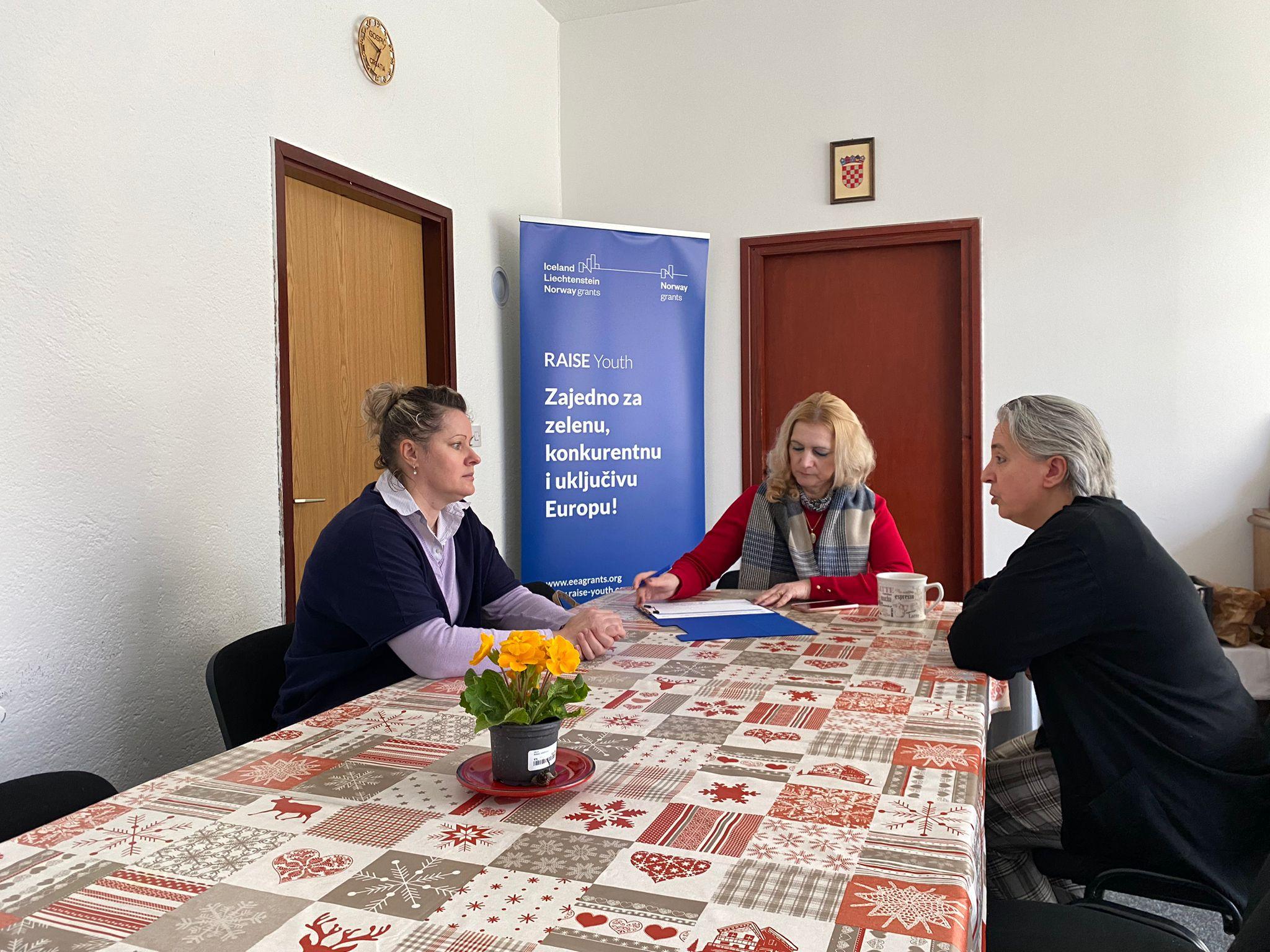
stresses the importance of connecting with them and understanding their background in order to direct them to take the right business path. Going through the mentorship with her, many young people discovered the potential of a long-forgotten family land which they turned into agricultural business or an old village house which can be renewed and used for rural tourism.
What Ms. Barac, as well as other RAISE trainers and mentors noticed when working with youth, is the lack of career guidance and development of basic business skills in the educational system of Croatia. For this reason, all of them agree project such as the RAISE Youth are of great importance for supporting youth and overcoming challenges of job market.
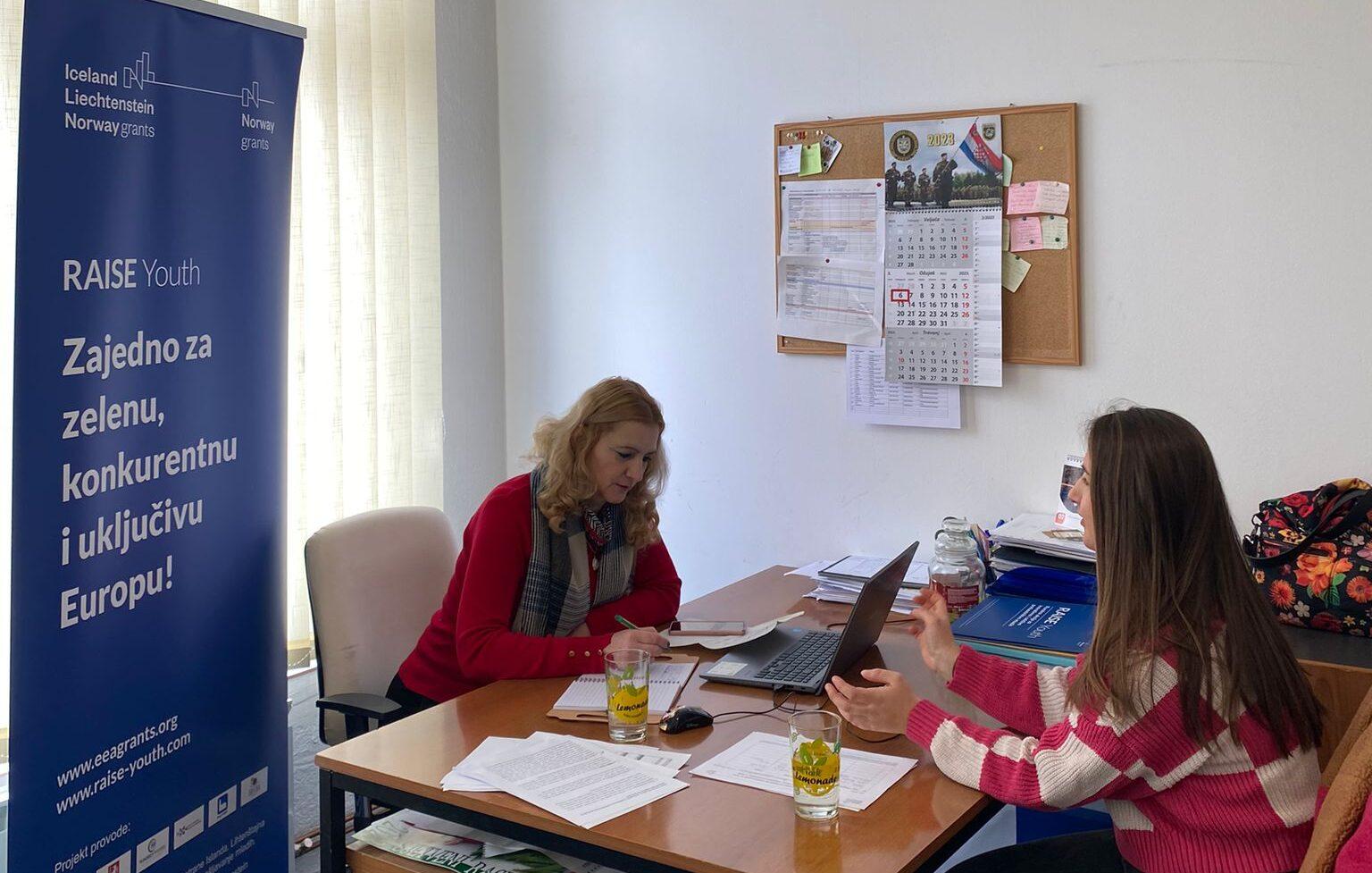
SPECIAL EDITION Skillful Futures
Community Shapers - Unleashing Youth Potential through Skillful Coaches, Trainers, Mentors and Dedicated Youth Workers
While the StayOn project aims to encourage, motivate & equip young people with soft and hard skills to achieve their professional goals, the role of empowering the participants is entrusted to coaches. Coaching, complementing the training in the StayOn approach, offers them additional and more intensive support, a space to consolidate their knowledge and gain confidence to put new skills into practice. The support to coaches in supporting coachees is therefore vital if they are to guide and empower our young participants.
Young people entering the job market today face many challenges, from the lack of opportunities or the necessary skills, some of which the formal education didn’t and perhaps couldn’t teach them, to uncertainty and feelings of gloom. The doubt they might feel is just as much a result of not having enough experience and reassurance in themselves as it is of the unstable and unpredictable world around them. Any initiative that aims to tackle youth unemployment and contribute to their insertion must adapt to the changing needs of young job seekers, reinforcing their existing skills and upskilling them with new ones. We should also consider the project’s target group, young NEETs in rural areas, and adequate skills for them, such as digital skills, abilities to manage environmental impacts, etc.
“Through my participation, I was able to develop my interpersonal skills. It allowed me to re-construct my CV and write my resume. In addition, I learned what career opportunities I have among the local community. … Thanks to my participation in this project, I feel motivated to take action. I learned that there are many opportunities for development in my area.”
Kasia, a 21-year-old StayOn participant from Poland
By integrating the StayOn toolkit's valuable tools into my coaching process, I empower participants to make positive changes in their lives, overcome challenges, and stay focused on their path to success and well-being.
 Maria Eduarda Costa, coach, CRESAÇOR (Portugal)
Maria Eduarda Costa, coach, CRESAÇOR (Portugal)
As the job market requirements evolve, so do the core skills we need to help our youth acquire and develop. The growing importance of communication, personal development and other soft skills is increasingly recognized by recruiters and employers. One of the most essential skills and values we can transmit to our youth is that of curiosity, openness and a culture of lifelong learning which will better prepare them for any potential further changes in future conditions and the transition to a greener and fairer economy.
StayOn
SPECIAL EDITION Skillful Futures
Coaching in StayOn has allowed me to significantly improve my skills and face the challenges that coaching practice entails with greater confidence.

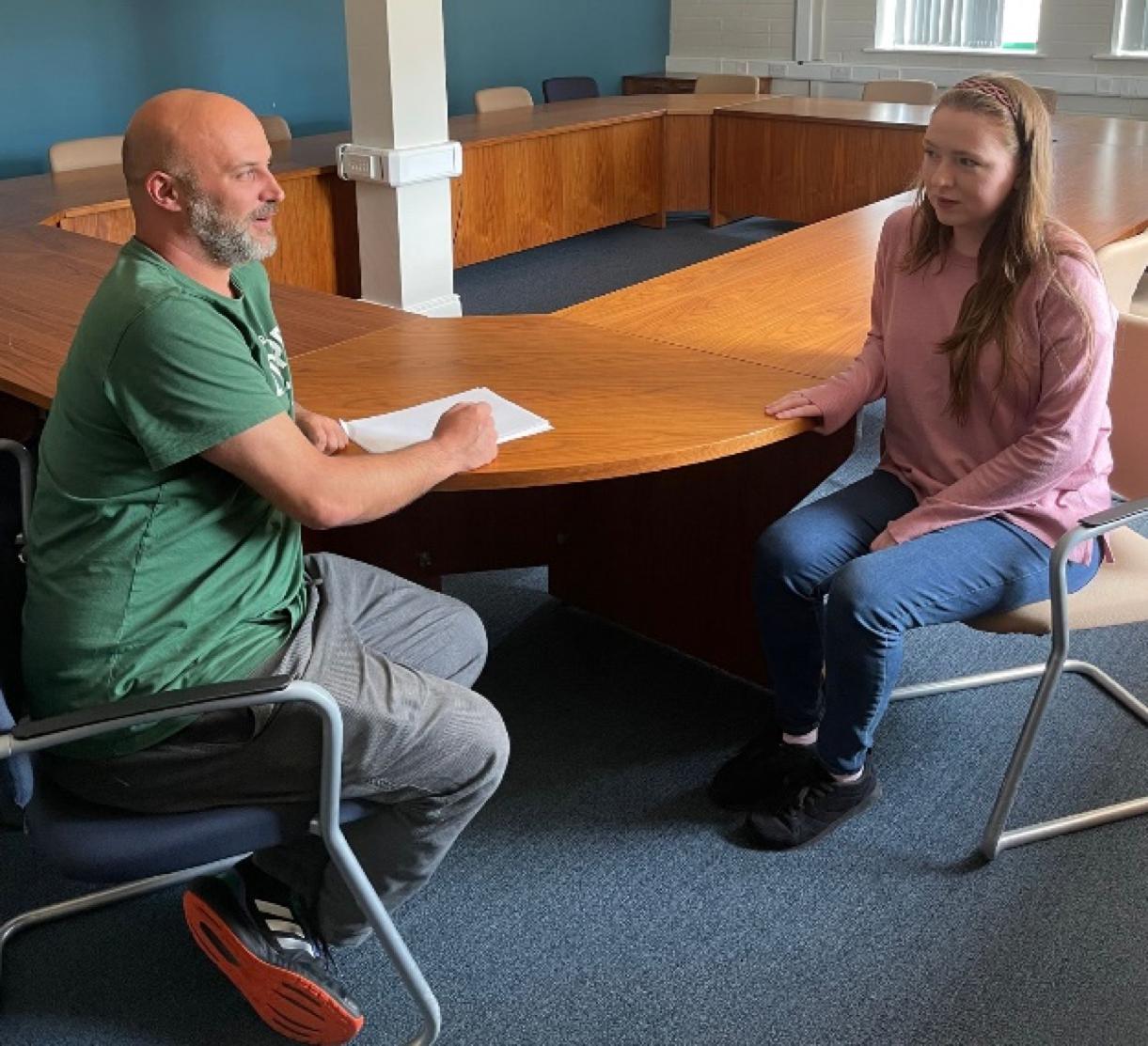
 Luigi Auteri, Coach, ATIS (Italy)
Luigi Auteri, Coach, ATIS (Italy)
The coaches & trainers do not just empower youth by teaching and developing (new) skills, they are also trying to unlock their potential through deepening their knowledge, providing guidance in their career decisions, helping them in finding solutions, setting goals and inspiring them to take the next step.

To support the coaches within the StayOn project, we developed a model for personal development, which consists of:
• train-the-coaches meetings in person,
• regular coaching supervision,
• StayOn Coaching: framework and toolkit and
• a personal development tool The Shapers in a
• form of a card game.
Within our sessions, we use the tools to conquer challenges, embrace change, and cultivate resilience. We delve into effective communication, goal setting, and time management, empowering them to seize every opportunity.
Boris Gidakovic, Youth EU Project’s Officer, Meat Partnership (Ireland)
Photo 2: StayOn coaching session from Greece
Photo 2: StayOn coaching session from Ireland
SPECIAL EDITION Skillful Futures
The coaching toolkit was developed at the beginning of the project with the purpose of giving StayOn coaches initial guidelines and support for starting the coaching process. The coaching toolkit gives coaches the basic framework and guidelines for coaching sessions, as well as tools and exercises they can use. As a manual, it can also be referred to in moments of doubt or need for additional support and serves as material for training new coaches. The main chapters include a theoretical framework, an explanation of what coaching is, its logistics and goal, the main guidelines for StayOn coaching, and also several specific coaching methods. The proposed model for coaches is based on the flexibility and modularity of suggested approaches, as the participants and implementing countries vary in their needs.
The tools of the StayOn toolkit include: suggestions to help start the coaching process:
- to open the conversation and explore the options, start with Dialogue, Questions, and Frames;

- use cards The Shapers, to make the conversation fun and relaxed, yet focused;
- help participants with the reframing, and always co-create the conversation based on respect, compassion, curiosity and openness to different perspectives;
- use open-ended questions to understand the coachee better and build mutual trust.
methods to help understand the needs of participants and set clear coaching goals:
- SMART goals (Specific, Measurable, Attainable, Realistic, and Time-bound) for more clarity and focus;
- Wheel of life for reflection & action on life aspects’ (im)balance and areas for improvement;
- GROW model: Goal, Reality, Options, Will for planning and brainstorming;
- WDEP (Wants and needs, Direction and what they are doing, Evaluation of their behaviour & Planning and commitment to change).
- the Scale of Motivations to move to higher motivations, and
- SSCC (Stop Start Continue Change) that helps evaluate their behaviour in the context of their desired goal and/or outcome.
The card game The Shapers was developed mainly for StayOn coaches to use with the participants helping them develop their skills, increase their motivation and grow their confidence to stay on in their local communities, by giving them a frame to imagine, focus, act and reflect through activities of ice-breaker, inspiration, challenge and career coaching.
The StayOn coaching toolkit prepared by BB Consulting was very useful for the StayOn project during both individual and group training of NEETs in the Podlasie region, Poland. In particular, we used a chapter with a description of social activities for participants and examples of using 'The Shapers' cards, which were of great interest to our young people.
Natalia Truszkowska, Coach, The Polish farm Advisory and training centre (Poland)
My experience with the coaching toolkit is great. Even if I could be considered an experienced coach, I found the toolkit refreshingly useful, and not only did it help me throughout my coaching / training sessions but in parallel it taught me many new and useful learning tactics.
Dimitrios K. Tsolis, MSc, PhD, Coach / Trainer, Rezos Brands S.A. (Greece)
SPECIAL EDITION Skillful Futures
Through train-the-coaches, the toolkit, the card game and coaching supervisions, we are supporting the StayOn coaches to better support the participants on their way to empowerment, but also in their own personal growth. Using all the tools in the toolkit, we want the key quality of StayOn coaches to be able to listen, adapt & stay positive and support the coachees in a way they feel heard and valued, so they can actively use the skills they are learning to reach their own goals. Equipped with the tools, the StayOn coaches are doing an amazing job with the participants, helping them gain confidence, learn new skills, broaden their horizons and ultimately change their lives. We are immensely proud to be able to support them all on their journey of creating a more inclusive, active and creative world.
It is because of the guiding values and approaches of coaching, that we believe it is an essential method to sincerely and effectively encourage young people in the world today & equip them with vital skills for the future.
Check out more about the StayOn project, the coaching toolkit and The Shapers on our website www.stay-on.eu and let it help you in your process of supporting the new generation of community shapers.


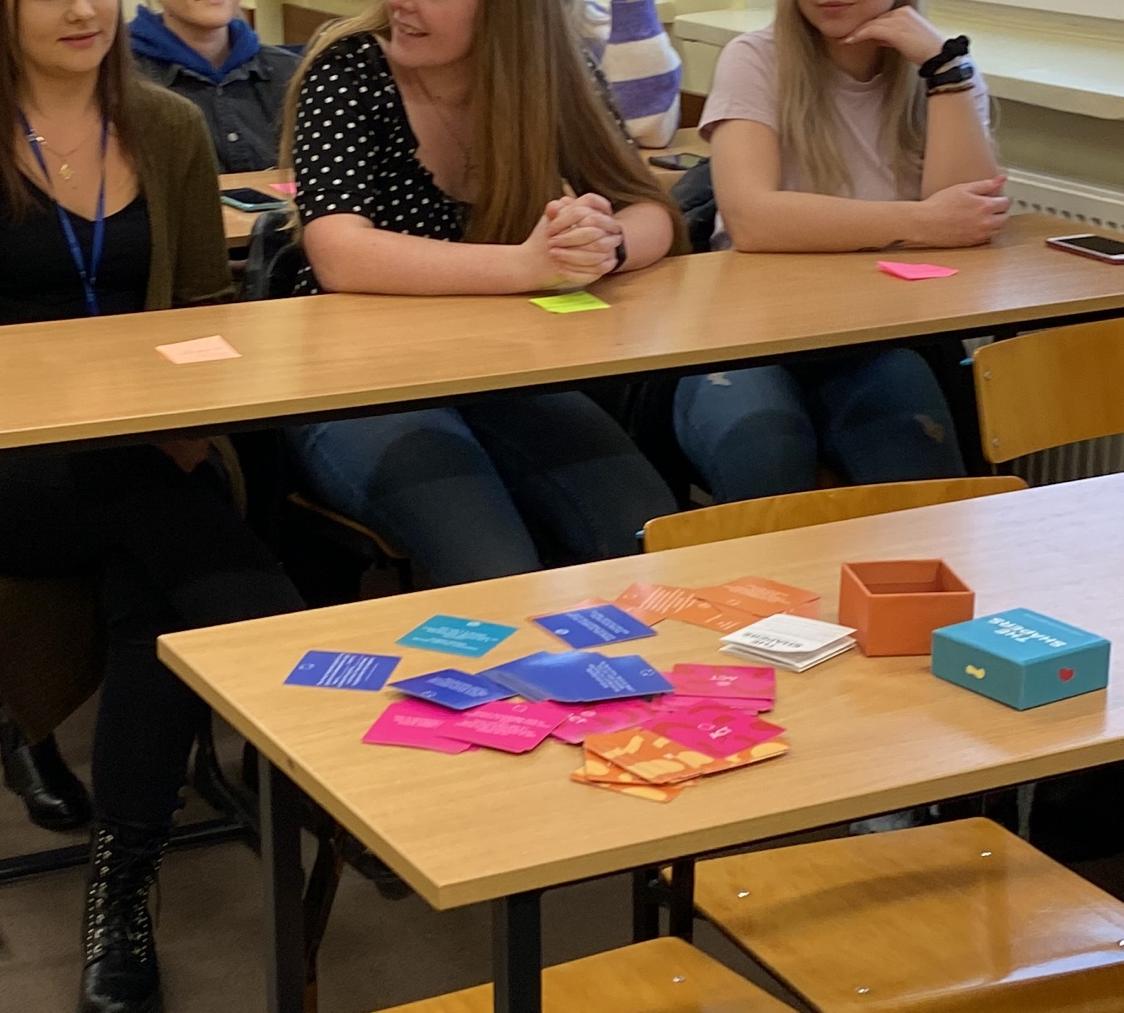

BB Consulting team
StayOn project
Photo 4: StayOn coaching session from Italy
Photo 3: StayOn coaching session from Poland
“StayOn helped me unblock. My self-confidence was low and now I can say that it has increased immensely.”
Sara Marques, a 28-year-old StayOn participant from Azores, Portugal
Photo 4: StayOn coaching session from Portugal
SPECIAL EDITION Skillful Futures
Video Interviews
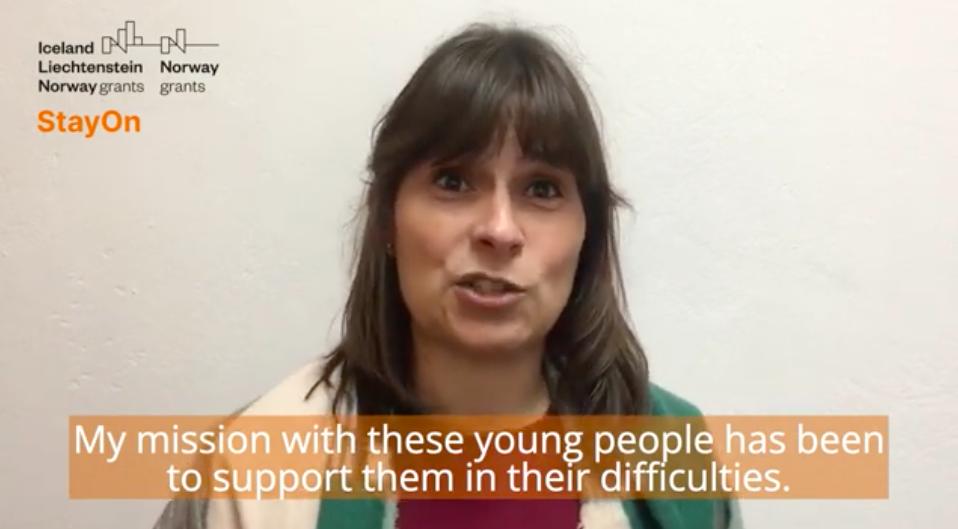
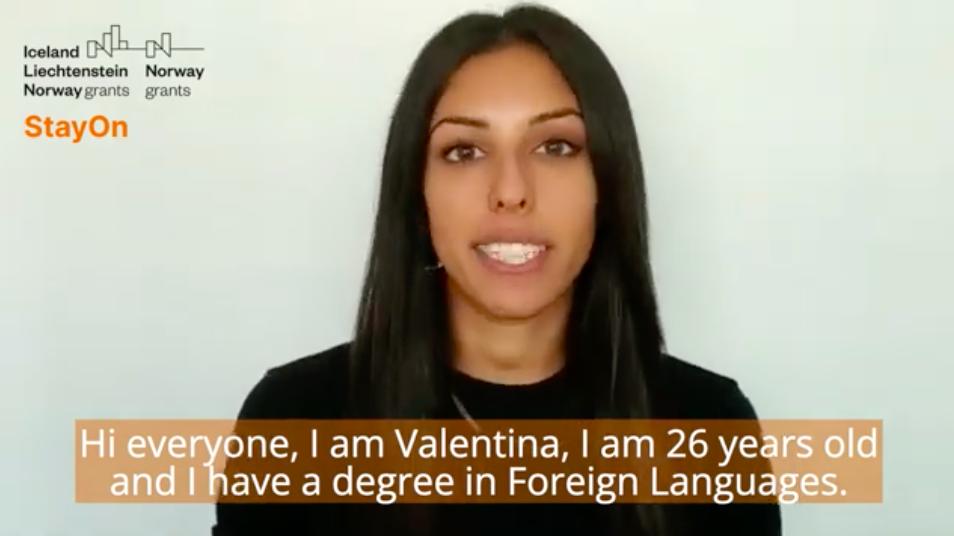
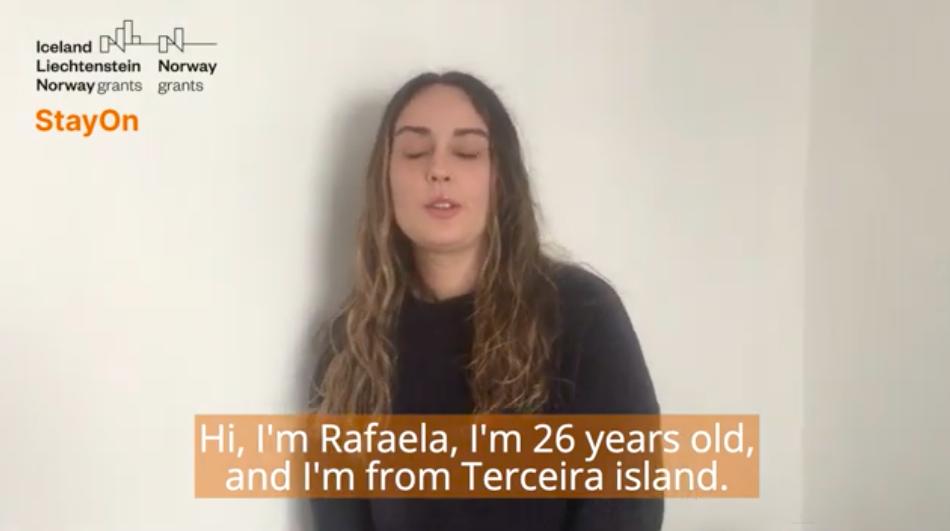
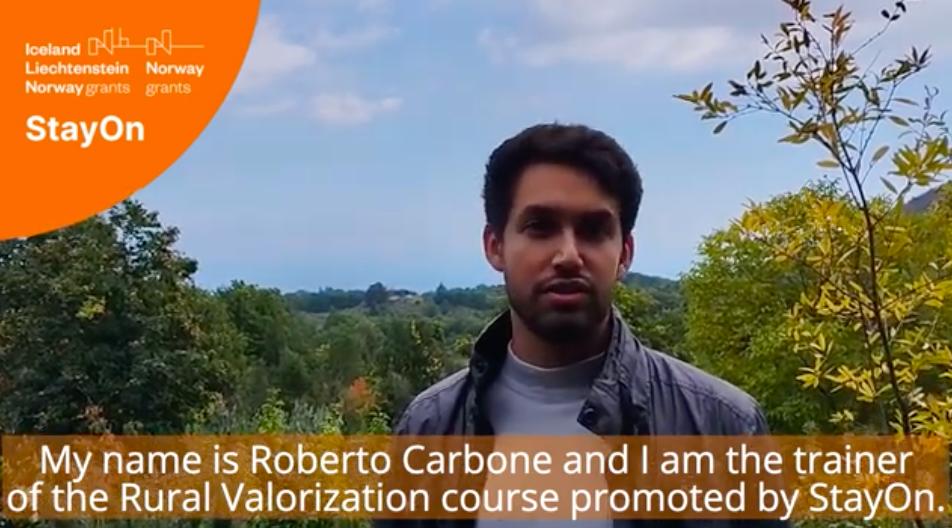
SPECIAL EDITION Skillful Futures
https://youtu.be/9XDisfZ4tTA https://www.youtube.com/watch?v=rduCzKv97BY https://www.youtube.com/watch?v=-Xy7CR2eSzM https://www.youtube.com/watch?v=yErtA59cZ9w
https://www.youtube.com/watch?v=sPA8x5ZFmaI
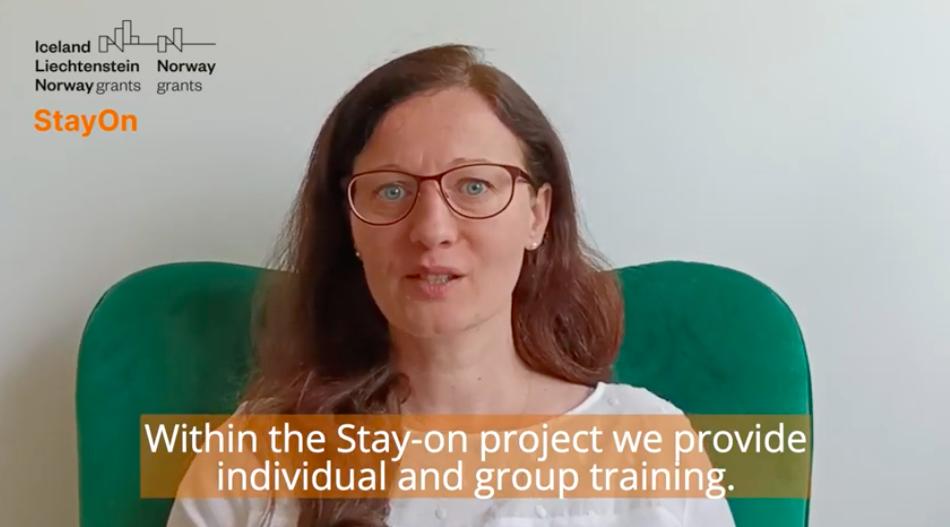
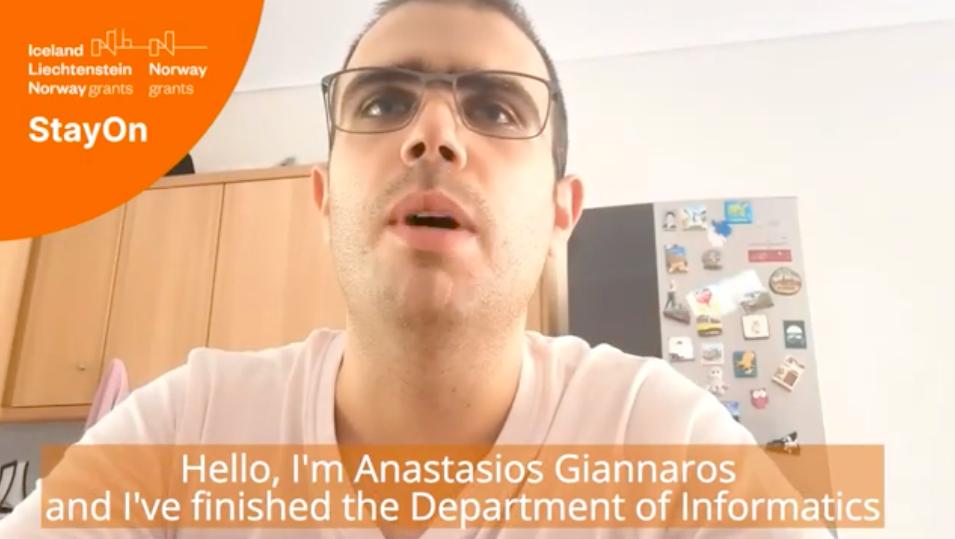

https://youtu.be/-MKULKkIc2E
https://www.youtube.com/watch?v=zULP_wRHhCM
SPECIAL EDITION Skillful Futures
We all know, that outdoor learning (OL) approach is an effective and beneficial method of education and self-development. The statement has been already proven by researchers, results, numbers. It’s certain that it increases engagement, there are of course physical health benefits, improves creativity and imagination, reduces stress, improves well-being, better attention and focusing on issues and can also provide equal opportunities for people from diverse backgrounds.
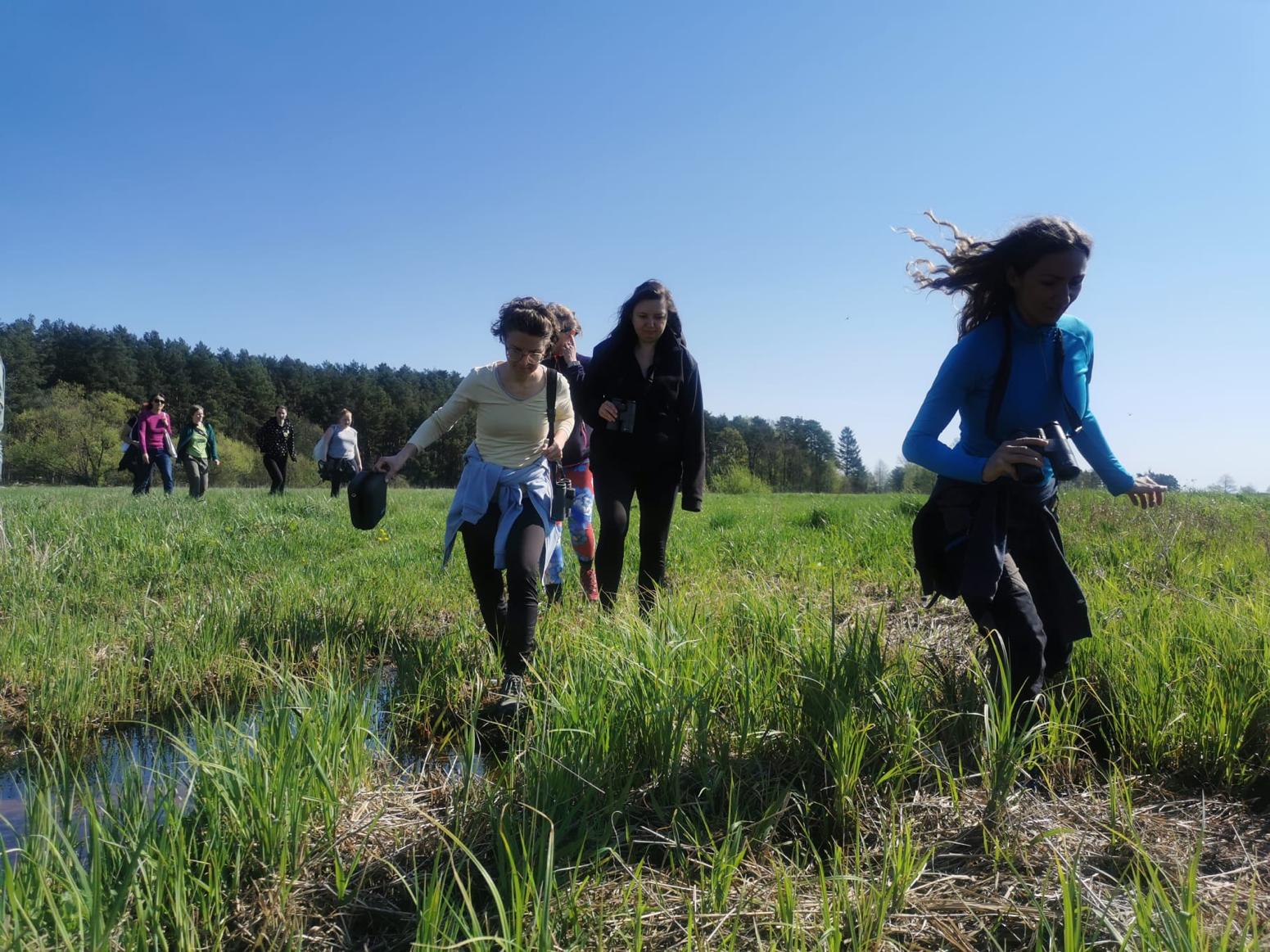
Basing on the Center for Innovative Education knowledge & experience of our main coach, we may say, that first of all, strength and effectiveness come from the nature itself: the environment increases our susceptibility to change, to discovering different things. The environment matters. While communing in the bosom of nature (that gives the authenticity of the place, kind of natural, neutral environment), we move more, we see greenery, we have more light –this has been proven scientifically. You may find very
accessible scientific explanation of these mechanisms in Andrew Huberman’s podcasts about raising motivation – neuroscientist, associate professor of neurobiology at Stanford University School of Medicine.
While being outside, at the OL trip, cut off for a couple of days from technology and the routine of our habits and lives, we don't have ready-made schemes, our self-remote control is off, that's why our defense mechanisms that block changes are weaker allowing us to listen to ourselves. Then, we’re starting to accept inconvenient content, because there is no usual pattern (in our everyday life routine we go to our own toilet, we drink our favorite brand of coffee in our favorite cup and so on, and so on). In the forest, we’re redirecting attention in another direction, we have to "survive" without our everyday facilities. And that's why the content given by mentors and coaches during outdoor learning training is better received by the participants.
YOUTHShare SPECIAL EDITION Skillful Futures
Outdoor Learning as an effective method of self-development & support in returning to labor market: trainers’ and participants’ voice.
A sine qua non condition in every therapy or coaching is whether the motivation is serious: it doesn't have to be strong, specific but it has to be. This is the basis. Is there a willingness, or is the motivation serious enough that you want to take advantage of it?
The trainers & coaches – their kind presence is a key factor. The person of the trainer gives you the opportunity, this is someone on your side, accompanies you in the change, does not judge. Authenticity also counts a lot - the trainer is a person who is credible. A trainer or coach is acting and working on the conditions of the participant. Outdoor learning is not a social rehabilitation camp. This is important.
Here are two stories of Zosia & Julia, OL participants. Zosia gives us the perspective of a person who is entering the adult life. Julia, in the moment of revolutionary changes in life & the return to the labor market, decided to take part in a trip.
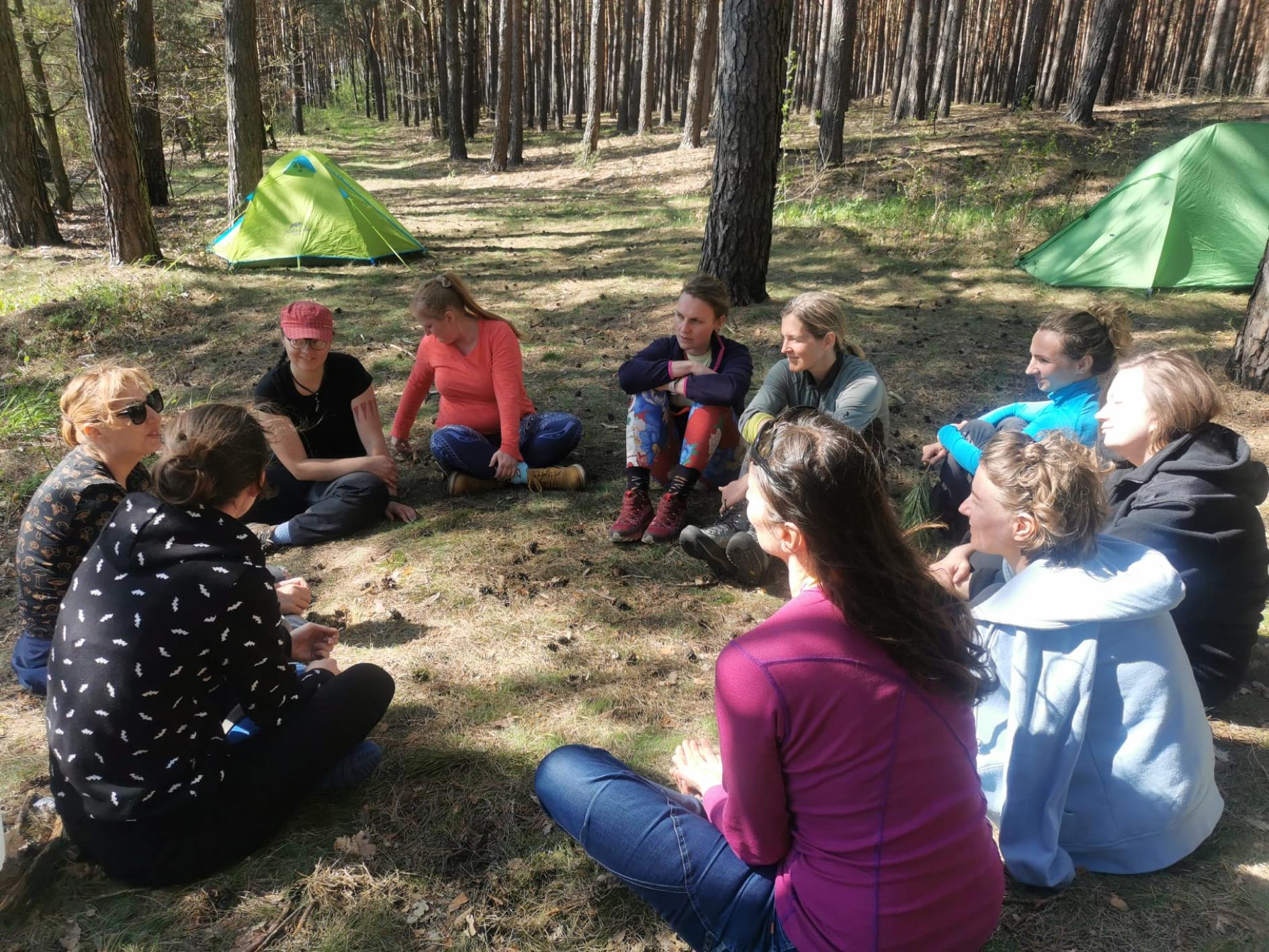
Both came with fears and hopes. This hope did the job.
Zosia (22). Despite her young age, she works on many fronts, she intends to go to graduate studies, find a permanent job. She felt exhausted because problems were piling up. Going to the forest, cutting off, leaving the phone = leaving the problems, contact, it was very
motivating for her. “The trip allowed me to breathe, gave me energy, gave me a broader view of things”. In the outdoor learning group they drew a lot from the fact that they became equal (despite the age difference). As if someone had pressed pause in life. Zosia thought about a lot of things, reviewed her decisions to see if they were right. And the trainers were great! At first, she wasn't thrilled that there would be mentors, coaches. She even blamed herself for allowing herself to go on this trip. Thanks to her coach, she began to look at many things differently. Bare feet on a wet meadow at sunrise… She felt free again. "I must and I will suffocate", "everything limits me" - it turned out that not at all! It's not like someone is forcing us to do something. Only we put these nooses around our necks. She understood that nothing would happen if she lowers the bar.
“The hardened core inside me has been crushed in the long run - a few months have passed and the OL effect is working”.
Julia (42) is at the moment of dynamic changes in her life - private and professional. Basically a life revolution. She didn't know what to do next - in her career. What would she like to do, what is she suitable for? She read a post about OL and the opportunity to take advantage of learning about strengths during such a trip. She had a strong motivation. Julia understood that not all questions had to be answered
SPECIAL EDITION Skillful Futures
She found her strengths and started training in this direction.
There, in the forest, at last she was for herself and not for others. It has been a kind of reset and also great openness to other people. She was surprised by the fact that it depends on the participant what will happen, what you want to talk about, the topics and time of coaching are not imposed. She had to surrender to what was going on. She could afford to be yourself. Normally, we look for excuses not to give ourselves space for self-inspection and for not giving ourselves a chance for self-development - because
this is also leaving the comfort zone. During OL there is no space for these excuses. That’s its effectiveness.
The FOLM project for NEETs, granted by Iceland, Lichtenstein, and Norway as a part of the EEA and Norway Grants Fund, resulted with success in 80% in general: 22% of participants came back to labor market, 49% went back to education, 9% afterwards were in training, travel or active job search.

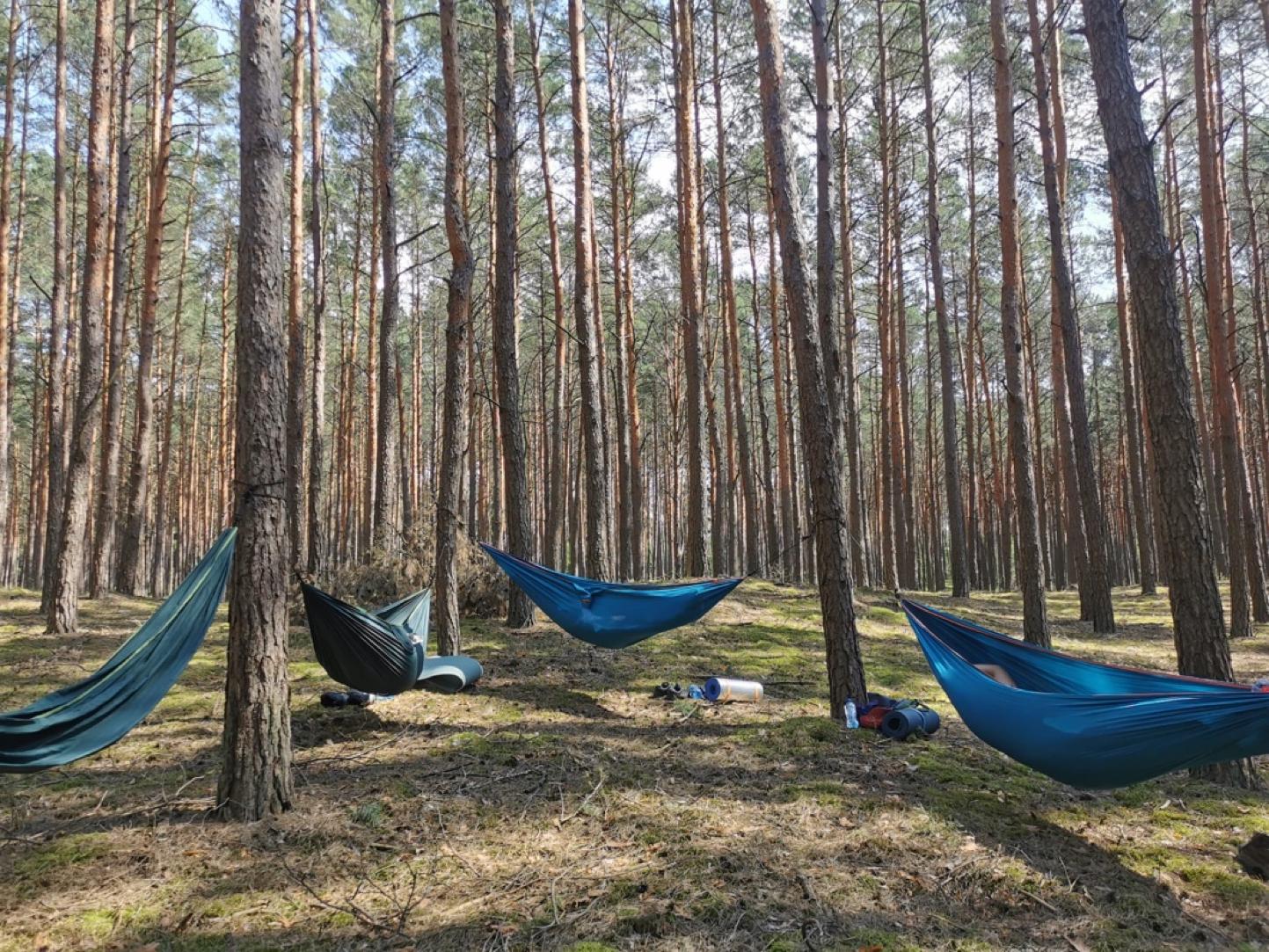
Copyright pictures: Center for Innovative Education
The hardened core inside me has been crushed in the long run - a few months have passed and the OL effect is working

SPECIAL EDITION Skillful Futures
Unlocking Creative Potential: Winners of "Kids Draw Best" Competition Shine at Digital Drawing Classes in Creative Center Ruse

The Creative Center in Ruse was buzzing with youthful enthusiasm on July 29th as the next round of free digital drawing classes took place. The invited participants were none other than the talented young winners of the Weekly Competition of the Creative Center, aptly named "Kids Draw Best." These promising artists were given a unique opportunity to enhance their skills in a state-of-the-art environment, equipped with professional tools thanks to the generous support from the Human Resources Development Agency.
Creative Center Ruse, established to cultivate artistic potential among children in Ruse, has been an ongoing summer competition that aims to inspire the young minds to explore creative industries and digital professions. The visionary initiative, fueled by the funds of the Human Resources Development Agency, is a non-governmental organization that recognizes the importance of nurturing young talents. They have wholeheartedly backed the awards and training of the competition winners.
Stepping into the Creative Center's hall, one is immediately struck by the sight of world-class
graphics tablets, powerful computers, and licensed software, all courtesy of the C.O.D.E. project. With 11 fully-equipped workstations, the Center leaves no stone unturned in providing the participants with the best resources to sharpen their digital artistry skills.
The driving force behind these transformative classes is the leading training engineer-designer, Kalina Marinova. Her passion for nurturing young talent and dedication to the field of digital art is palpable in every interaction she has with the budding artists. Her own journey in the creative realm began in a very different time when the technology was not as advanced as it is today. Reflecting on her youth, Kalina shared, "Back then, digital drawing and animation seemed like distant dreams. Today, witnessing these young artists exploring their creativity on cutting-edge technology fills my heart with pride.”
As the young participants enthusiastically delved into their projects during the class, it was evident that the combination of their innate talent and the guidance from Kalina Marinova was a perfect recipe for success.
CODE SPECIAL EDITION Skillful Futures
Each stroke on the graphics tablets seemed to breathe life into their creations, and the Creative Center was alight with the sparks of imagination.
The impact of such initiatives goes beyond honing artistic skills. They encourage teamwork, inspire selfconfidence, and open doors to a plethora of exciting career opportunities. Creative Center Ruse is empowering these young artists to dream big and reach for the stars.
With the support of the Human Resources Development Agency and the dedication of the Creative Center team, the competition has become a beacon of hope for Ruse's young generation. It provides them with the tools they need to turn their passion into a well-paid and independent profession.
The Creative Center's initiative is a testament to the power of community involvement in nurturing creativity. As the winners of the "Kids Draw Best" competition continue their artistic journey, we can only imagine the wonders they will bring to the world.
In the words of Kalina Marinova, "Their potential is boundless, and with the right guidance, they will soar to new heights."
Indeed, with such support and encouragement, the future of Ruse's creative industries is looking brighter than ever.
Credit pictures: team of HRDA, CODE project
SPECIAL EDITION Skillful Futures
In a world facing environmental challenges, upskilling initiatives that empower young individuals to make a positive impact, are more critical than ever. The BLUE-GREENWAY project serves as a shining example of how regional cooperation can not only improve environmental status but also create opportunities for youth to enhance their skills and contribute to sustainable practices. By focusing on water quality monitoring, early warning systems, and e-procurement, BLUE-GREENWAY has fostered mutual knowledge exchange and understanding between beneficiary states, while empowering the youth to become environmental stewards. Let's explore how the project aligns its outcomes and outputs to create a brighter future for both the environment and young people.
Exchange
of Best Practices:
The BLUE-GREENWAY project has achieved
BLUEGREENWAY: Empowering Youth Through Regional Upskilling Initiatives
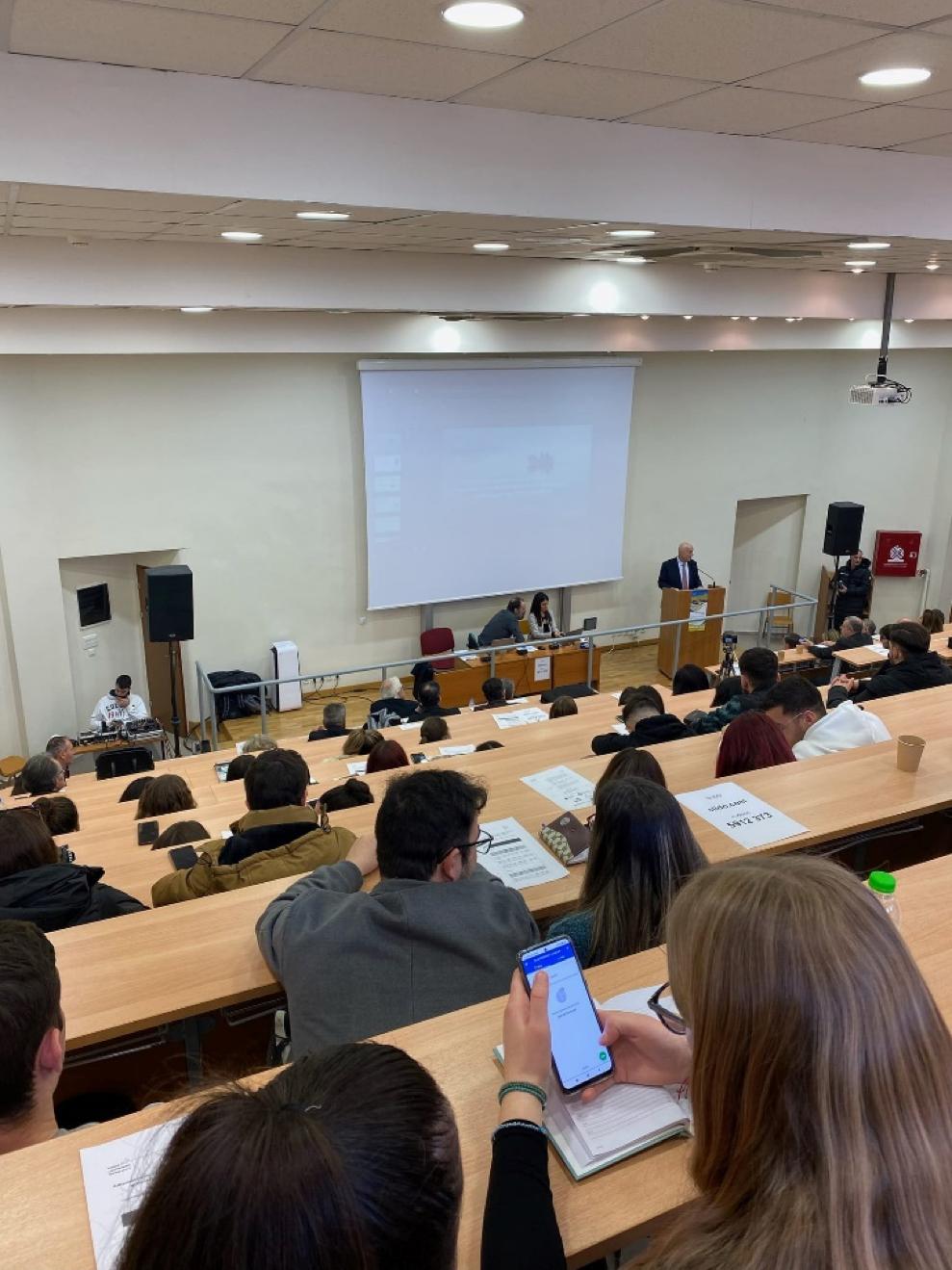
remarkable outcomes, notably in enhancing the environmental status of supported ecosystems. Through the implementation of water quality remediation, monitoring and ecological modelling, the project gains valuable insights into environmental challenges, paving the way for the exchange of best practices in environmental restoration and protection. These learnings serve as a valuable resource for young individuals participating in the project, enabling them to effectively address future environmental issues.
Moreover, BLUE-GREENWAY has demonstrated excellence in creating innovative materials for controlling eutrophication, a critical step in ecosystem restoration. The project's application of these materials through the "teabag" method exemplifies circular practices, emphasizing sustainability and efficient resource utilization.
BLUE-GREENWAY SPECIAL EDITION Skillful Futures
Furthermore, the integration of circular practices, such as algae ponds in aquaculture, showcases BlueGreenway's commitment to environmentally friendly solutions. By employing these ponds, the project not only restores ecosystems but also contributes to the development of sustainable practices in the aquaculture industry.
Through these exemplary efforts, BLUE-GREENWAY continues to empower young individuals with the knowledge and tools needed to champion environmental preservation and make a positive impact on their surroundings.
Leveraging Resources:
As a regional cooperation project, BLUEGREENWAY effectively leverages resources to achieve its outputs. The development of an early warning system and e-procurement toolkit creates a platform for pooling financial and infrastructural resources. These shared resources ensure that young people have access to cutting-edge technologies and expertise, enabling them to play a vital role in implementing environmental solutions. Additionally, the project's agricultural drainage water treatment initiatives provide opportunities for youth to engage in green practices while restoring ecosystems.
P olicy Alignment, Advocacy, and Collaboration:
BLUE-GREENWAY has successfully aligned policies between donor and beneficiary states, fostering enhanced cooperation and mutual understanding. This alignment ensures that upskilling initiatives are well-integrated into environmental policies, making them more effective and sustainable. Young people, as stakeholders in the project, actively participate in policy discussions, providing them with a unique opportunity to influence and shape the future of environmental stewardship.
The Living Labs in Larissa, Nicosia, and Bucharest have garnered significant interest from local authorities, showcasing the project's potential for real-world impact.
Furthermore, the project's participation at the Circle the Med Forum has served as a crucial platform for reaching out to authorities at the national and international levels. This engagement enables BLUEGREENWAY to advocate for policies that align with its environmental goals, influencing decision-makers and driving positive change.
The upcoming capitalization events are expected to further empower advocacy actions. By bringing together stakeholders, experts, and authorities, these events will foster meaningful discussions and collaborations, reinforcing the importance of sustainable practices and upskilling initiatives in environmental preservation.
Through such collaborative efforts, BLUEGREENWAY demonstrates its commitment to not only restoring ecosystems but also actively influencing policy and decision-making processes, ensuring a more sustainable and greener future for all.
S trategies Supporting Upskilling Young People:
The project actively incorporates strategies to support the upskilling of young individuals. By providing technical events and capacity-building workshops, BLUE-GREENWAY equips the youth with knowledge and practical skills in environmental management. The establishment of living labs and joint pilot actions further enhances hands-on learning experiences, preparing young individuals to tackle real-world challenges effectively.
Collaboration for Knowledge Exchange:
Through unified platforms on e-procurement and knowledge-sharing seminars, BLUE-GREENWAY facilitates collaboration between beneficiaries and donors. This collaborative approach ensures that best practices, innovative solutions, and research findings are shared across regions. Young people benefit significantly from these exchanges as they gain exposure to diverse perspectives and experiences, broadening their horizons and enhancing their problem-solving abilities.
Impact of Regional Cooperation on Youth Skills and Employment:
The impact of Blue-Greenway's regional cooperation is evident in the improvement of aquatic ecosystems environmental status, but its influence goes beyond ecological restoration. By fostering upskilling initiatives, the project equips young individuals with valuable skills and expertise. These skills, combined with their commitment to environmental stewardship, make them highly sought-after professionals in the job market, driving the growth of green industries and reducing youth unemployment.
SPECIAL EDITION Skillful Futures
Highlighting Project Activities with Youth: BLUE-GREENWAY places great emphasis on involving young people in project activities. The joint pilot actions of the e-procurement kit provide handson experience in implementing green practices, shaping young individuals into environmental experts. Additionally, the project's capacity-building workshops and transfer seminars foster a strong sense of ownership among the youth, as they actively engage in environmental conservation efforts.
The BLUE-GREENWAY project exemplifies how regional cooperation can empower young individuals through upskilling initiatives while improving the environmental status of ecosystems. By aligning
policies, sharing knowledge, and leveraging resources, the project creates a nurturing environment for youth to become environmental stewards and active contributors to a sustainable future. As the beneficiaries and donors collaborate, the project not only enhances mutual understanding but also paves the way for a brighter and greener tomorrow, led by a skilled and passionate generation of young environmentalists.
Photos from the Living Lab in Larissa
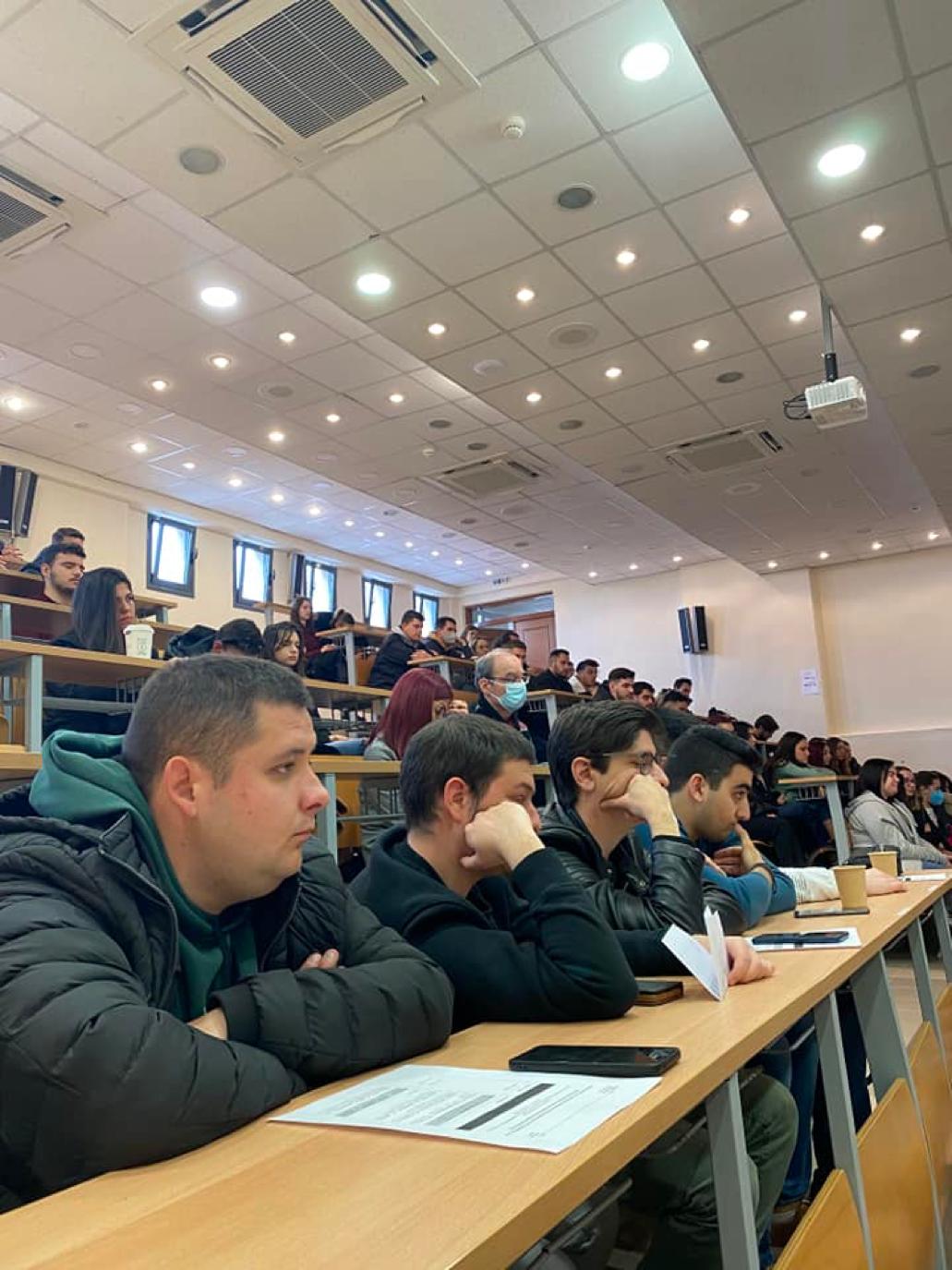

SPECIAL EDITION Skillful Futures
The Uncorking Rural Heritageengaging young people in a project of cultural and environmental sustainability
Rural areas in European countries have many similarities, both in terms of soil cultivation and crop growth as in further production of typical beverages. However, each area is subject to different climate and geographic conditions and therefore has its own specifics that makes it unique. People have taken these specifics into account, studied them and took them as a challenge for upgrading the local area and for creating the opportunities for themselves and their descendants. The local rural heritage gives us the signature, the basis on which we can build. By studying these specifics and sharing the experiences between the different areas we saw the opportunity to enhance the agriculture, to give an impact on quality production of beverages by analysing the characteristics of the crops and their terroir and the production of beverages, the types of marketing and, as the most important part, we have included young people in all the processes. Central to the project's success is the active involvement of young people who contribute fresh perspectives and innovative ideas. This article delves into the strategies employed to engage young minds in the project and highlights their significant impact on the preservation and
advancement of rural heritage.
The “Uncorking rural heritage” consortium is composed by partners that operate in research and academic area, as well as local authorities and producers. The Tikveš winery from North Macedonia and the Hardanger cider association from Norway represent the producers, the University of Nova Gorica – The School for Viticulture and Enology from Slovenia (UNG) and the Faculty of tourism and rural development from Po ž ega, Croatia– the Enogastronomy programme (FTRR) include the students, professors and researchers, the Hardanger council from Norway, the Municipality of Ajdovščina from Slovenia and the Local development agency LORA from Croatia represent the local authorities and the research part is supported by two Norwegian institutes, NOFIMA - The Norwegian institute of food, fisheries and aquaculture research and NIBIONorwegian institute of Bioeconomy research. The end of the project is envisaged for December 2023; however, the partners have established a strong connection and will continue to cooperate in the future.

Uncorking Rural Heritage
SPECIAL EDITION Skillful Futures
Photo 1: Vipava valley; Photo credit: Marijan Močivnik, Photographer
NORTH MACEDONIA - Fostering Sustainability in Viticulture

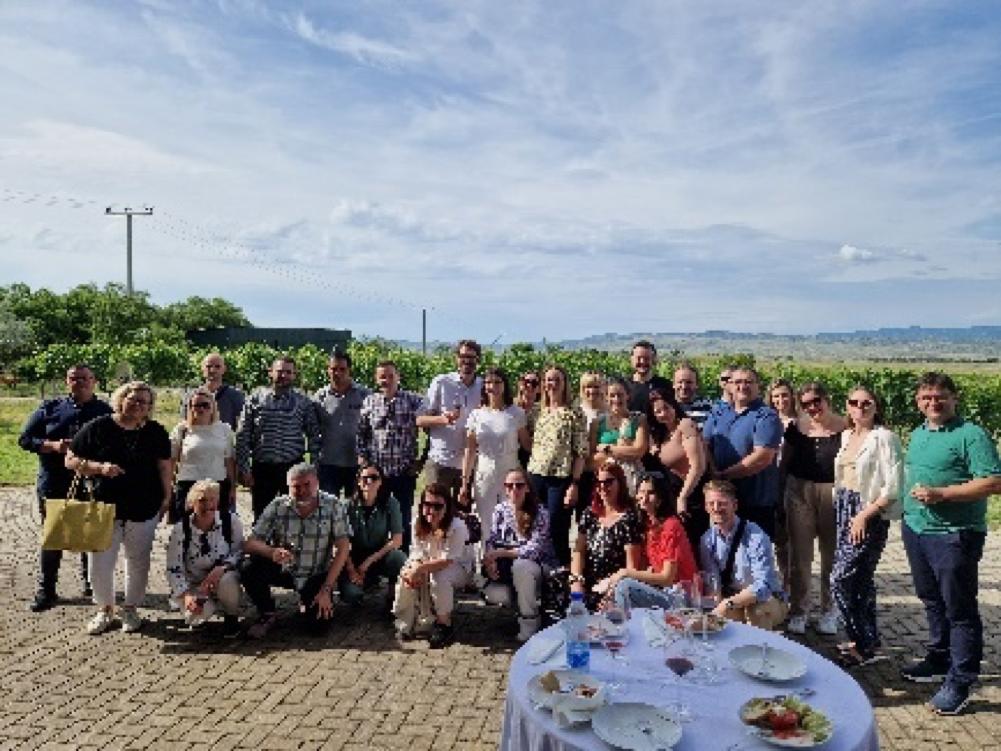
Climate change has an increasingly pronounced impact and therefore management measures should be taken in the grape and wine production process, in order to achieve a better end product. Coping with the impacts of climate change and ensuring the long-term survival and development of the wine industry are possible only through the continuous application of standards, scientific research, measurements and practices for sustainable viticulture. The Tikveš winery organized a field visit for the representatives of the organizations involved in the project. About 30 guests from Norway, Slovenia, Luxembourg, Croatia and Italy visited the vineyards of "Tikvesh" to learn about the sustainability practices implemented by the winery and to transfer the acquired knowledge and experience to their respective countries. “We at "Tikvesh" have been aware for some time that in order to increase competitiveness and the recognition of our wines worldwide, it is necessary to change current practices in grape production, incorporate science and consider the increasing impact of climate change on viticulture and the entire wine industry. Simultaneously, it is crucial to actively work on the implementation of ESG standards, which are a prerequisite for further sustainable development and to fulfil our social responsibility by sharing our experiences and knowledge with all other stakeholders in the domestic wine industry,” noted Svetozar Janevski, the president of the Management Board of "Tikvesh" winery, in his opening address to the conference participants.

The conference also included presentations on the challenges faced by grape producers in different wine regions in Croatia, the uniqueness of Zelen wine from Vipava valley region in Slovenia, as well as experiences in establishing a centre for research and development of cider production in Norway. By engaging with young people in this process, the project creates a pathway for the future of climate-resilient viticulture.
CROATIA - Empowering the Future of Winemakers
Graševina is the most widespread and economically the most important grape variety in the Republic of Croatia. Its significance is primarily in the continental part of Croatia, i.e. in Slavonia. There are different styles of this wine on the market, so characterization and standardization is important for producers and consumers of this wine.
The inclusion of young people in the direct project activities of the Uncorking rural heritage project was carried out through two target groups. The first group were students who participated in the preparation of samples for sensory evaluation of wine, and at the Vipava Students’ Wine Festival, organized by the School of Viticulture and Enology (UNG). The second group were young winemakers, who are the future of the wine industry and who will create and dictate styles on the market for a long time to come. They made up the largest part of the sensory panel for evaluating Graševina wines.
Zvonimir Paponja, a 2nd year student of Enogastronomy, said the following about participating in the project: „participating in the project provided us with new knowledge and brought the profession of winegrowers, winemakers and sommeliers closer together in the best possible way. Behind each variety and wine there is a certain story, and we had the opportunity to get to know the Graševina variety in great detail. By participating in the Festival in Slovenia, we made colleagues and friends for life and we are still in contact very often. Soon after the summer, we are planning a joint meeting so that we can exchange new knowledge and experiences that we have gained since the last meeting”.
Photos 2-4: Field trip to Tikveš, North Macedonia; Photo credit: Tanja Dimitrijević, MA
SPECIAL EDITION Skillful Futures
Luka Špoljarić, a young winemaker from the Požega area and a member of sensory panel, said: ”The sensory assessment was well organized and easy to understand. I especially liked pointing out mistakes, commenting together, so we could correct mistakes very easily. I gained a lot of knowledge that was passed on to us by senior colleagues and project managers. A very nice and interesting experience that I will surely benefit in my future work”.
SLOVENIA – Enhancing sensory analyses

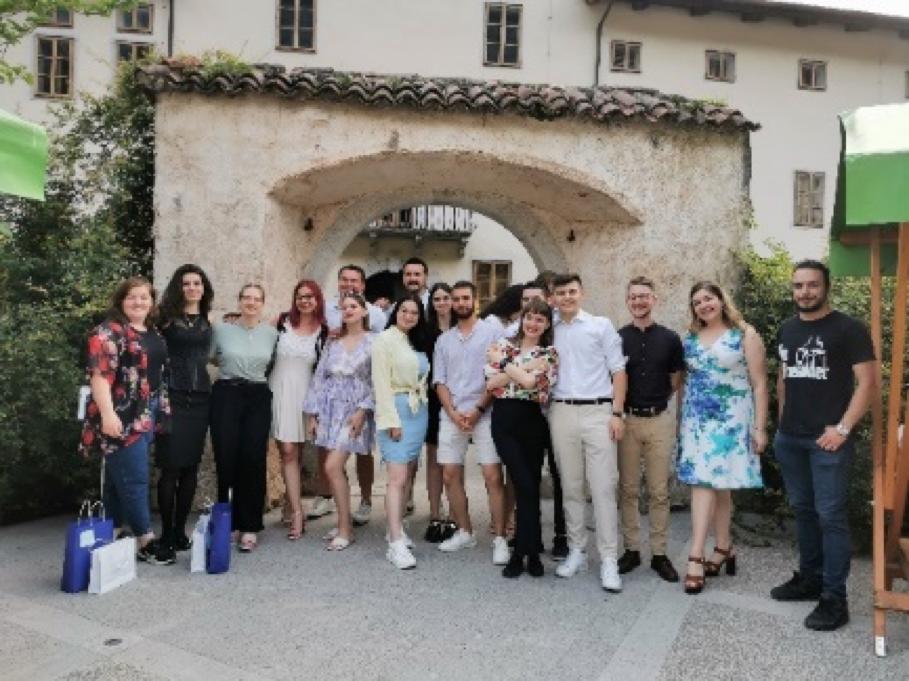
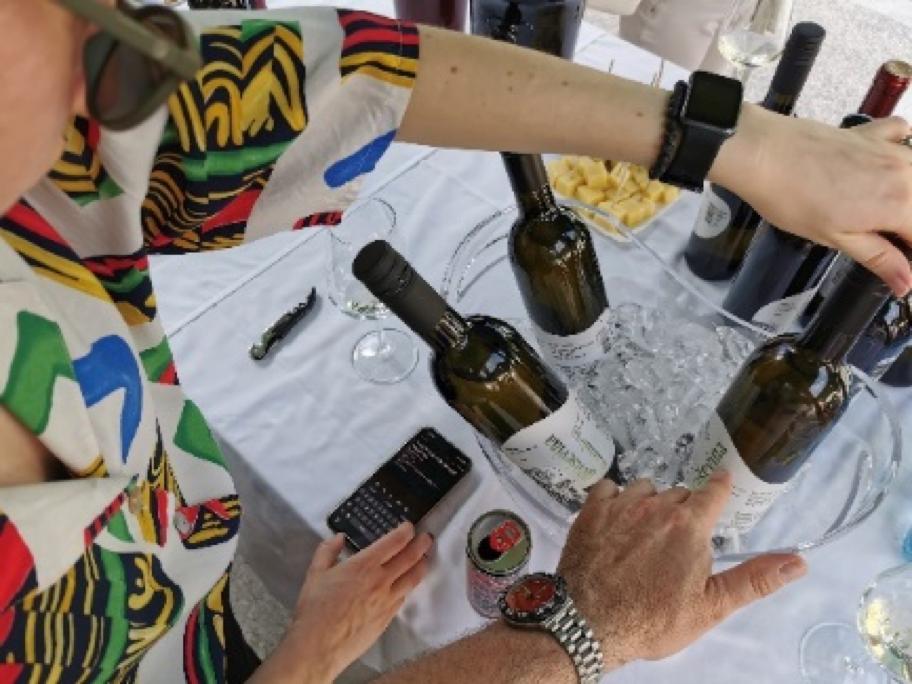
“Through the project I have had the opportunity to learn more about the different steps of making both cider and wine from experienced enologists, researchers and technicians, and how to evaluate the chemical and sensory quality of cider and wine of different local varieties from Croatia and Slovenia. Combining the data from sensory and aroma chemical analysis you can learn and find out why different varieties of apples and grapes give different sensory and chemical profiles. In other words, trying to find what is special, typical for that variety of apple and/ or grape.
In Norway where the cider industry is becoming an important part of fruit farms and local specialty, there is a need for more knowledge about chemical and sensory properties of Hardanger cider. Although wine and cider are not the same, we are talking about fermented beverage and exchange of knowledge and expertise in production, evaluation and promotion of locally important products always help. “ said Prof. Dr. Branka Mozetič Vodopivec, the Dean of the School for Viticulture and Enology (UNG).
UNG and FTRR collaborate closely on various projects, events and workshops involving students from both faculties. In March 2023, UNG organized a field trip to Požega and Kutjevo in Croatia for their students and in June 2023 again to Skopje and Tikveš in North Macedonia. On this field trips the students had the chance to meet important people that work in winemaking and spirit production and to see the best practices that are used in these areas. FTRR and their students, however, took part at two events, one was the project dinner in Požega and the Students’ wine festival in Lanthieri mansion in Vipava. For the dinner FTRR enogastronomy students prepared and served local dishes from Slavonia, while students of both faculties presented local wines from Slavonia and Vipava Valley. While, at the Students’ wine festival in Vipava the students from both universities presented wines from Slovenian, Croatian, Macedonian and Serbian wine regions and the best of them have been awarded. UNG students were also helping to set-up venue and participate in the sensory workshop and degustation on Vipava valley Zelen wines, so called Zelen Masterclass. The involvement of students in such events gives them an opportunity to get practical skills in the organization of wine festivals or Masterclasses, the events needed to be organized as a part of wine business.
SPECIAL EDITION Skillful Futures
Photos 5-7: Students’ wine festival in Vipava; Photo credit: Josip Mesić, FTRR
The involvement of students in such events gives them an opportunity to get practical skills in the organization of wine festivals or Masterclasses, the events needed to be organized as a part of wine business.

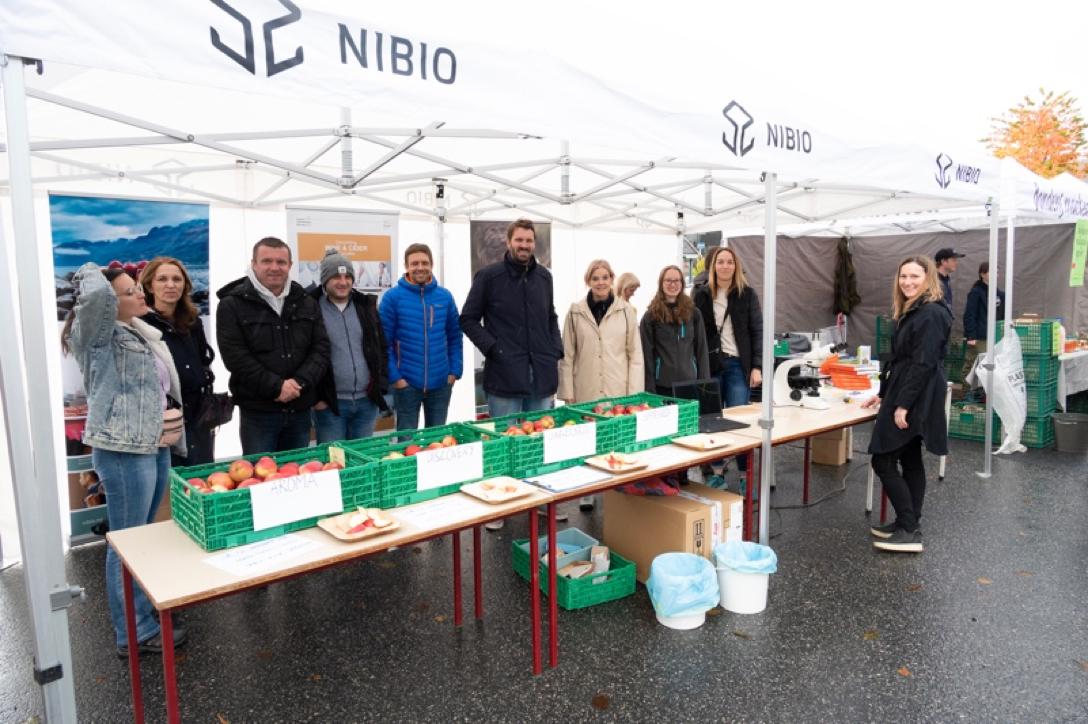
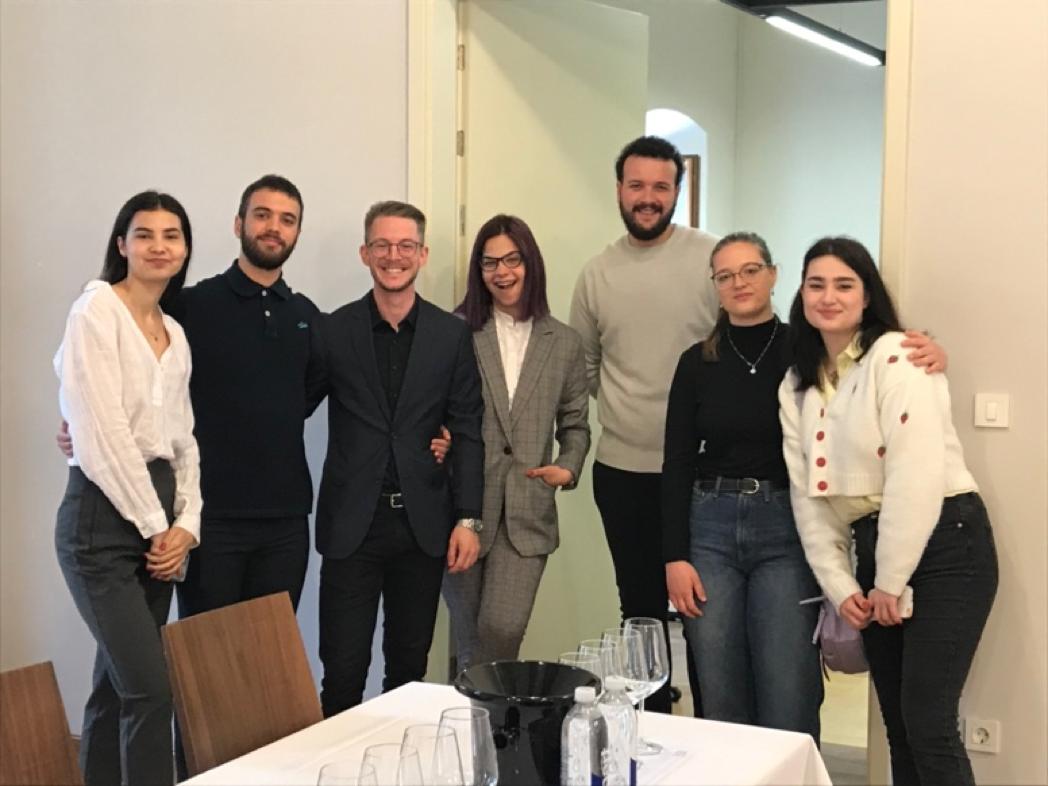
UNG has a long-lasting connection to Norway as well, as the university offers to their students and researchers ERASMUS+ mobility exchange programs with Norwegian research companies.
The Municipality of Ajdovščina has set a small distillery at the Learning centre Brje in order to give the local people and the local schools and universities the possibility to use advanced equipment for the educational purposes and for producing the spirits of much higher quality. In June 2023 the distillery finally opened its doors. The event had also the educational notes as the local students took part in the research about sensory evaluation of aromas that are normally present in local wines. The head of the Department of Economy and Development at Municipality of Ajdovščina, Janez Furlan: “We are convinced that this is another opportunity in the area of Vipava valley and, besides that, I believe that with this equipment we will contribute to a qualitative leap in the production of brandy in our area.”
Photo 8: Students of the School of viticulture and enology (UNG) helping with the Masterclass Zelen; Photo credit: UNG
Photo 9: Presenting project during the cider festival in Øystese (partners with Tajda Huber, UNG student on the ERASMUS+ exchange practice at the NIBIO Ullensvang); Photo credit: Erling Fløistad, NIBIO.
SPECIAL EDITION Skillful Futures
NORWAY - Celebrating Cultural Heritage through Cider
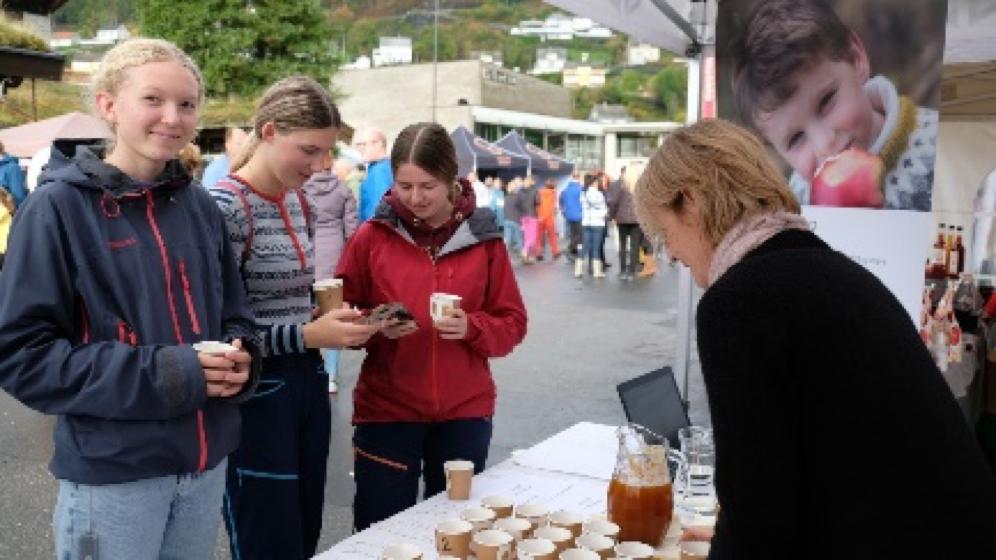
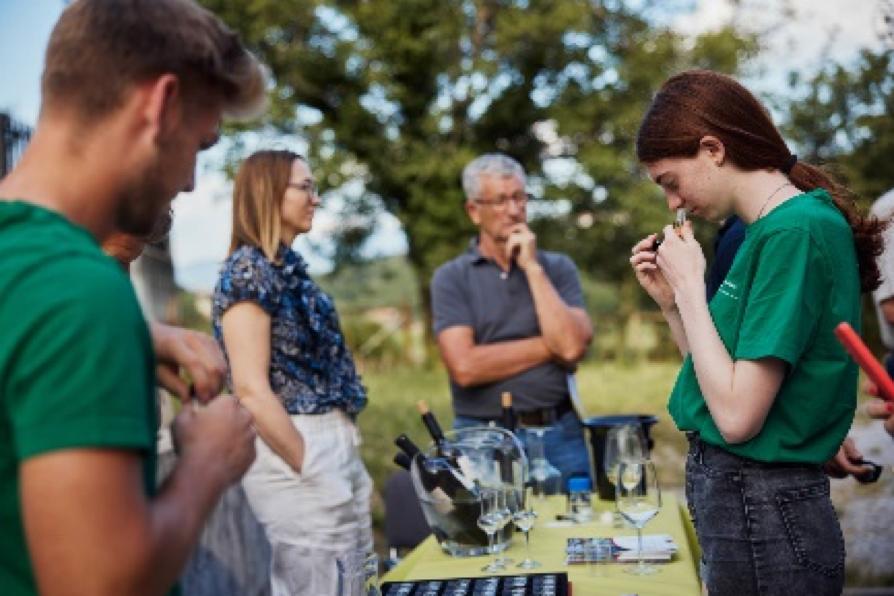

When growing up by a fjord on the coastline in the south-western part of Norway, the growing of fruit is for many people part of their common heritage. The landscape, soil and seasons lay the foundation for fruitful harvests. These factors also nurture their cultural identity. Apple production, identity and cultural factors all come together in the project Uncorking cultural heritage. Gathering knowledge along the value chain of cider production is at the project core. The backbone of it all, is the cultural heritage on which both apple-growing and various spin-off productions rest. Since monks started culturing apples here around the 13th century, apples have through generations become a trademark and a regional pride in the south-eastern part of the Hardanger district and its fjord.
The Uncorking-project aims to appeal, not only to the involved business and academic segments of the valuechain, but also to the younger generations. Inviting children and teen-agers to take part through such a familiar act as taking a bite of an apple and describe the sensing experience of it, the aim is to collect the words they use for characterizing smell, taste and texture to raise awareness about sensory appearances of apple-products. At the same time, such engagement from the younger-age segments, contributes to enhance their feeling of identity. The fruit, the taste and the whole experience of involvement ads to their sense of being – their sense of ‘me’, their sense of belonging, cultural heritage and identity. Hence, the science team at NIBIO has conducted two "Taste Workshops" on the topic taste, smell and texture of apples. The first workshop was held during the “research days” in Odda, the second at the Hardanger Ciderfestival in Øystese. Children, teen-agers and young adults who visited the stands, were challenged to describe sensory appearance of apple fruit and juice using their own sensory terms. Mentimeter, an interactive response system, was used to gather sensory terms and create word clouds. Sweet. Crisp. Nice. Acidic. Velvet. Honey. Balanced. Mellow – and many other words were some of the answers. They were also challenged to identify the which apple cultivar the juice was made from.
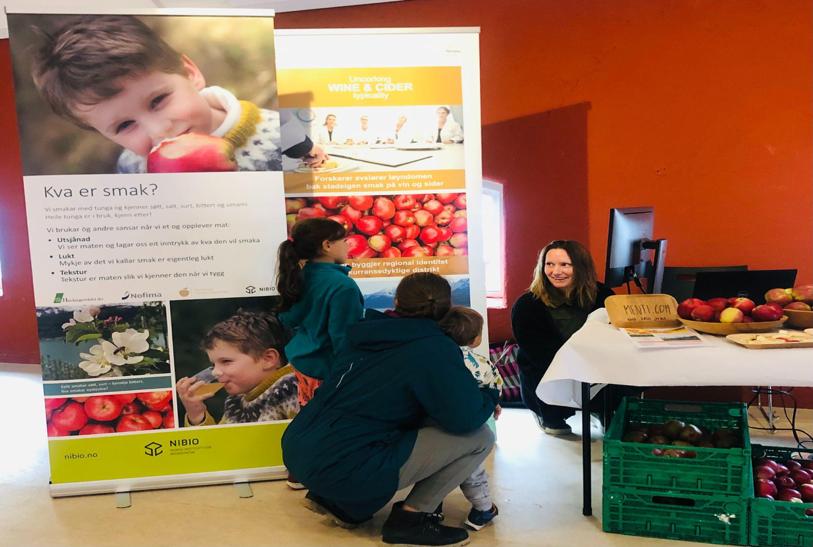
 Photos 10-12: Opening day at the Learning Centre Brje; Photo credit: Tanja Dimitrijević, MA and Jan Čermelj, Photographer
Photos 10-12: Opening day at the Learning Centre Brje; Photo credit: Tanja Dimitrijević, MA and Jan Čermelj, Photographer
SPECIAL EDITION Skillful Futures
Photos 13-14: Taste Workshops; Photo Credit: Kjersti Kildahl and Sven Ove Bøe
Mats Carlehøg, Ingunn Øvsthus and Margrethe Hersleth from The Norwegian institute of food – NOFIMA have had many local and international presentations and sensory courses for student, politicians, stake holders and general public based on the topics of cider making and sensory results. The audience were challenged to taste different Norwegian or Hardanger ciders and place them on a sensory attribute map by the guidance from Margrethe Hersleth. The educational process included 50-60 young people as well as other target groups.
The "Uncorking Rural Heritage" project facilitates close collaboration between partner institutions and young participants. Field trips and workshops offer opportunities for students and researchers from different countries to exchange knowledge, experiences, and best practices. By nurturing such relationships, the project sets the stage for future cooperation and the continued development of rural areas and their cultural heritage.
By engaging with the next generation, the project not only imparts valuable knowledge and skills but also fosters a sense of ownership and responsibility. This inclusive approach ensures a brighter future for agriculture, wine, and cider production, and strengthens the bonds between different countries, institutions, and communities. With continued collaboration and dedication, the legacy of rural heritage will be uncorked and cherished for generations to come.
Field trips and workshops offer opportunities for students and researchers from different countries to exchange knowledge, experiences, and best practices. By nurturing such relationships, the project sets the stage for future cooperation and the continued development of rural areas and their cultural heritage.

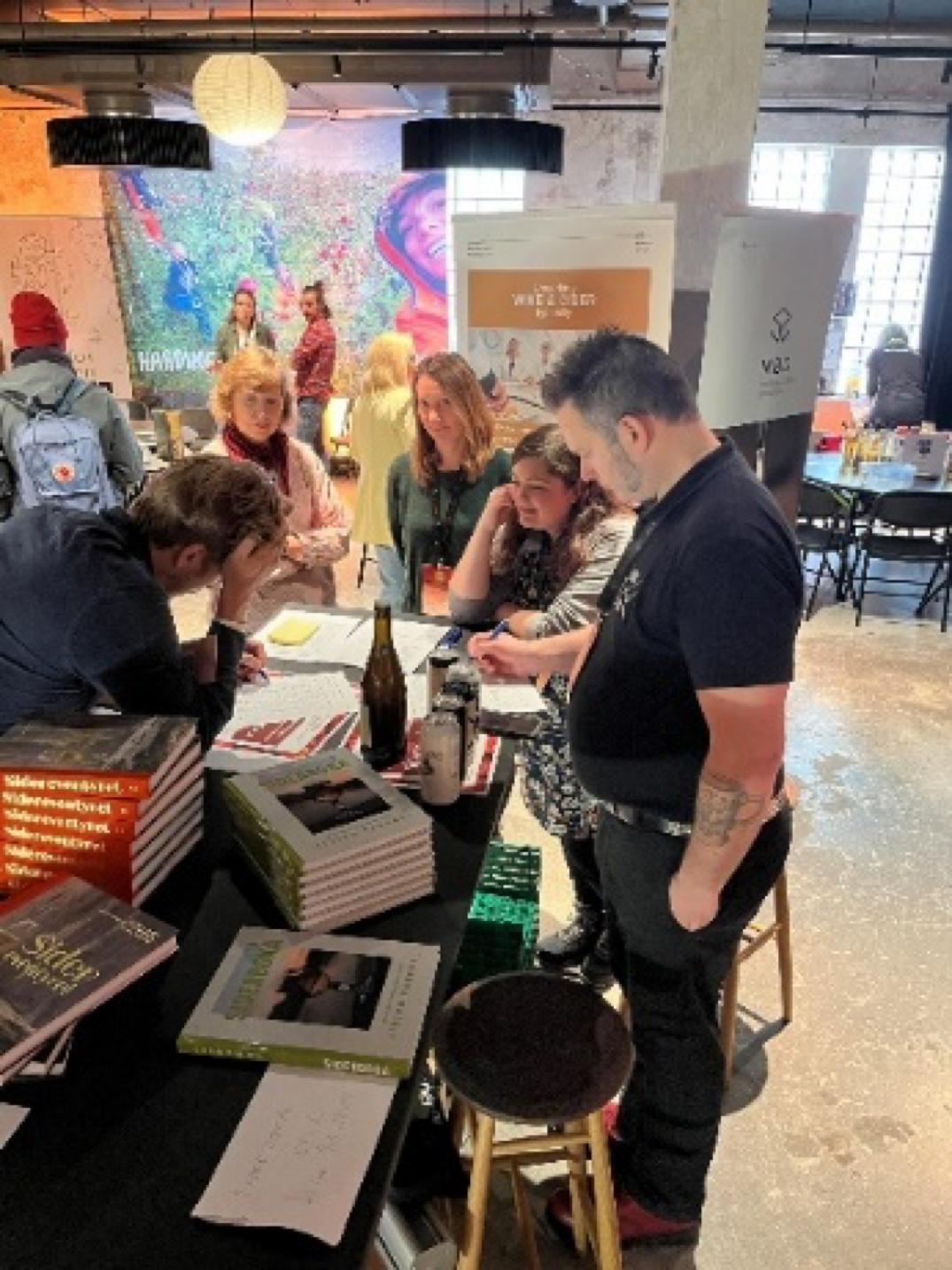

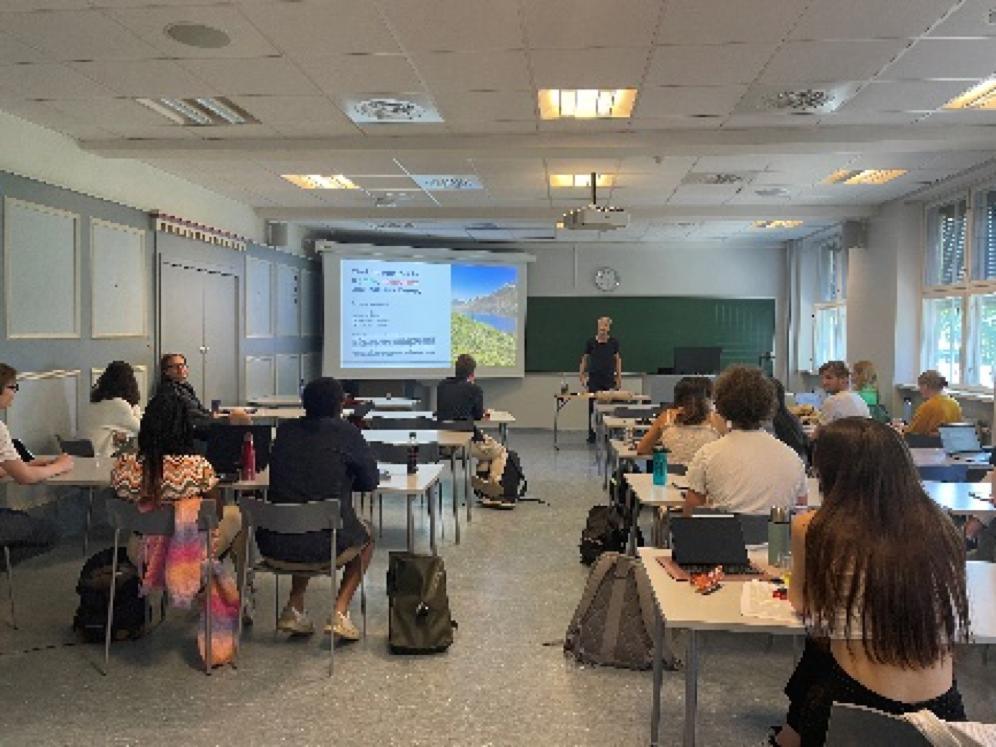 Photos 15-17: Presentations and Sensory courses; Photo credit: Mats Carlehøg, NOFIMA
Photos 15-17: Presentations and Sensory courses; Photo credit: Mats Carlehøg, NOFIMA
SPECIAL EDITION Skillful Futures
Strengthening regional cooperation for upskilling young beekeepers: the BeeConSel project's role
Regional cooperation plays a pivotal role in fostering collaboration, sharing resources, and providing enhanced opportunities for young individuals. Within the framework of the EEA and Norway Grants, the BeeConSel project - Joint Effort for Honey Bee Conservation and Selection is poised to contribute significantly to the upskilling of young beekeepers by recognizing them as one of the target groups and involving them in the project.
Through the implementation of self-sustainable mating control, the BeeConSel project offers a cutting-edge system that enables stakeholders, including queen breeders and beekeepers, to access advanced breeding techniques. This innovative approach enhances the efficiency of breeding programs, enabling selection for crucial traits such as disease tolerance, behaviour, and honey yield. By participating in the project, young beekeepers gain access to these opportunities, empowering them to improve the quality and productivity of their local honey bee populations.
Through the project, the young beekeepers are provided with unique opportunities to expand their knowledge and skills in various aspects of beekeeping and honey bee conservation. Through workshops such as Estimation breeding values in honey bees, Instrumental insemination, and Observation of honey bees' nuptial flights, young beekeepers had delved into advanced techniques and gain hands-on experience. The workshops also served as dynamic platforms for young beekeepers to interact with experts and fellow enthusiasts. Through these collaborative learning environments, participants not only gain knowledge but also forge valuable connections and networks within the beekeeping
community. These professional relationships extend beyond the workshop settings, creating long-lasting collaborations and mentorship opportunities for young beekeepers.
The collaboration between researchers and beekeepers nurtures a symbiotic relationship where scientific knowledge meets practical experience. By being an active part of this network, young beekeepers gain access to mentorship, guidance, and support from experienced professionals, fuelling their own growth and development. This collaborative approach ensures the sustainability of the project's outcomes and fosters a community of passionate and skilled beekeepers.
One of the key aspects of regional cooperation in the BeeConSel project is the sharing of resources. The project establishes a collaborative environment for researchers and beekeepers by pooling together expertise, knowledge, and infrastructure. This synergy allows young beekeepers to tap into a vast network of professionals, thereby expanding their own knowledge and skills. The shared resources also facilitate the dissemination of best practices, enabling young beekeepers to learn from successful breeding programs and adapt them to their local contexts. The project acts as a catalyst for the exchange of ideas and experiences, fostering a culture of continuous learning and improvement.
The BeeConSel project's focus on breeding programs and the improvement of local honey bee populations contributes significantly to the conservation of these vital insects. By selection for traits such as disease tolerance, behaviour, and honey yield, the project ensures a higher survival rate for local honey bees. This, in turn, enhances the viability and resilience of the ecosystem services provided by honey bees.
BeeConSel
SPECIAL EDITION Skillful Futures
Young beekeepers who actively engage in the project become ambassadors for the conservation of local honey bee populations. By recognizing and accepting the improved local stock, they contribute to the longterm sustainability of these populations and preserve the delicate balance of ecosystems. Through their active involvement, these passionate individuals become stewards of conservation,
ensuring the recognition and acceptance of improved local stock by the beekeeping community. The BeeConSel project not only addresses the challenges faced by honey bee populations but also lays the foundation for a sustainable future, where young beekeepers and researchers play a crucial role in preserving and enhancing the invaluable contributions of these remarkable insects.
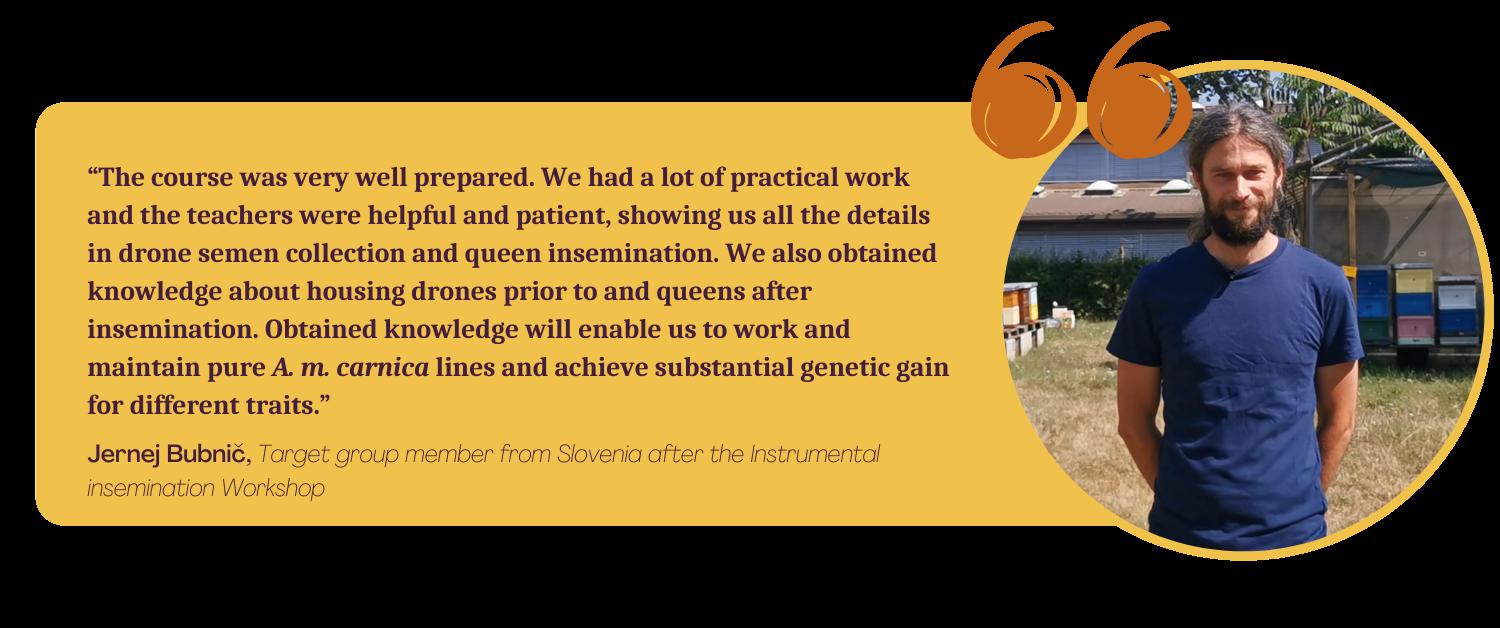
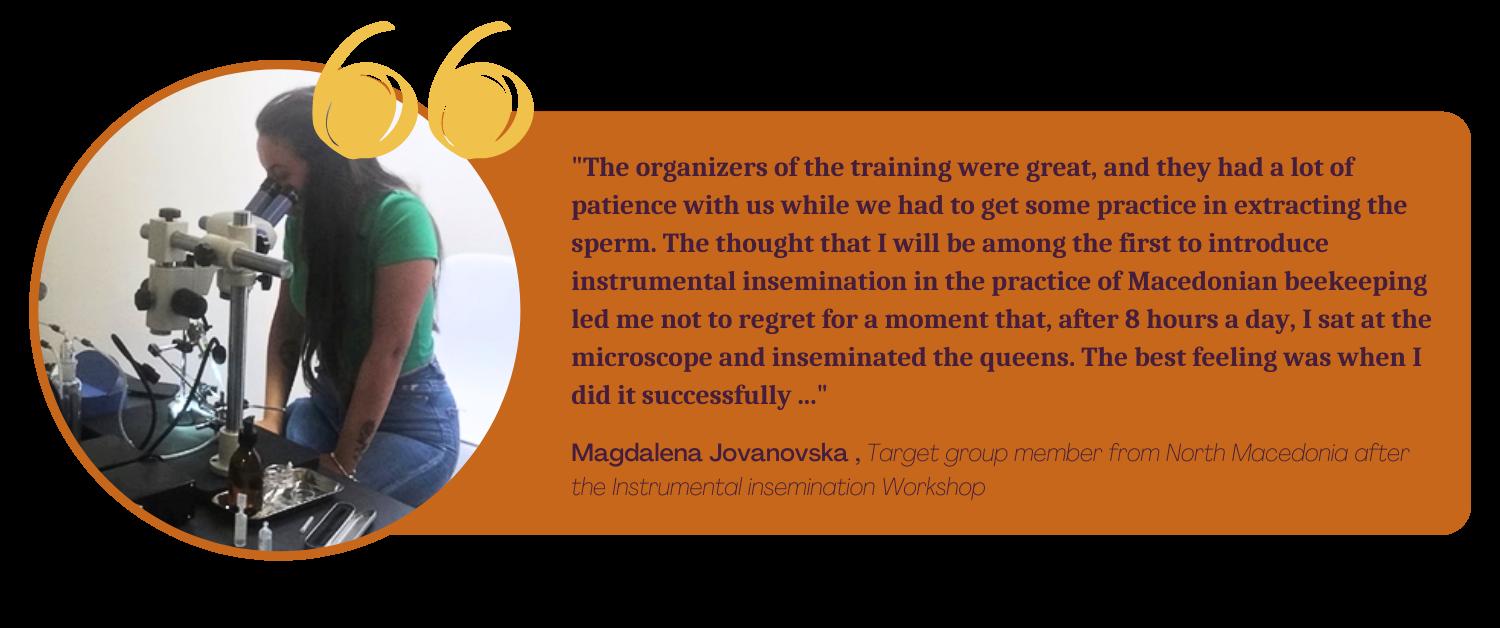
SPECIAL EDITION Skillful Futures
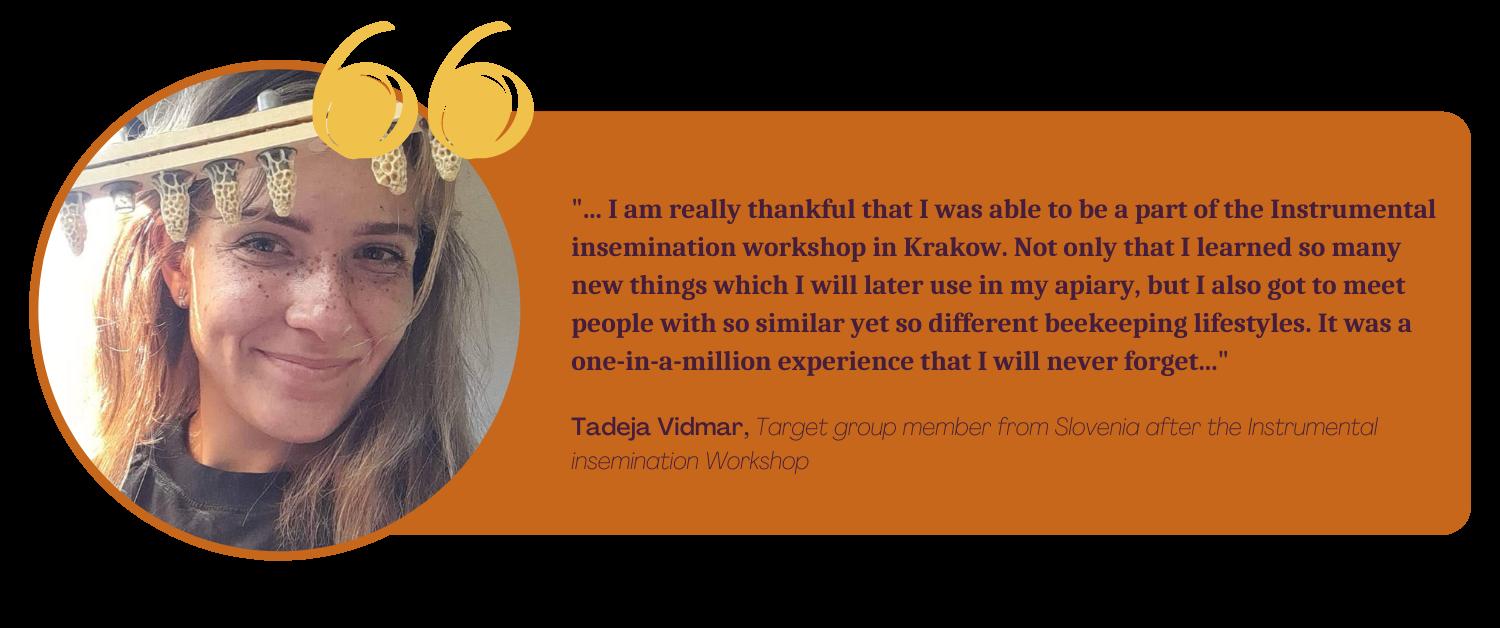
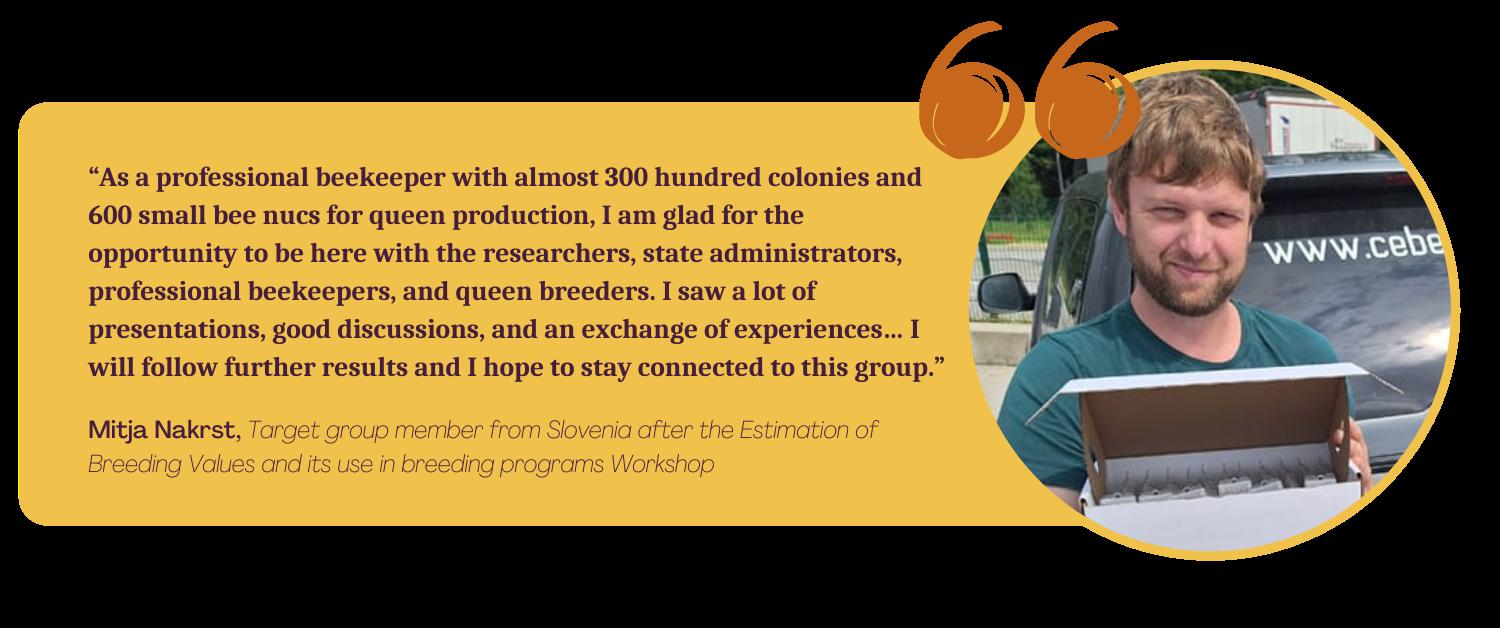

SPECIAL EDITION Skillful Futures
In conclusion, the BeeConSel project not only provides enhanced opportunities through its selfsustainable mating control system but also offers a wide array of workshops and training programs to young beekeepers. These initiatives enable them to deepen their understanding of honey bee breeding, hone their practical skills, and establish valuable connections within the beekeeping community. Through these opportunities, young beekeepers are poised to make significant contributions to honey bee conservation, driving the sustainability and growth of local honey bee populations in the beneficiary countries and beyond.
Regional cooperation within the BeeConSel project opens doors to young beekeepers, providing them with enhanced opportunities, shared resources, and collaboration. By embracing advanced breeding techniques, young beekeepers can improve the quality and productivity of local honey bee populations. Furthermore, the project promotes professional relationships between researchers and beekeepers, creating a vibrant network of support and mentorship. Through these collaborative efforts, the BeeConSel project contributes to the conservation of local honey bees, ensuring their recognition and acceptance by the beekeeping community. By empowering young beekeepers, regional cooperation within the EEA and Norway Grants sets the stage for a sustainable and thriving future for honey bees and
Conclusion:
In conclusion, the BeeConSel project stands as a shining example of how regional cooperation within the EEA and Norway Grants can uplift and empower young beekeepers. By providing them with enhanced opportunities, shared resources, and a collaborative network, the project equips these individuals with the tools and knowledge necessary to make a meaningful impact in their local honey bee populations.
SPECIAL EDITION Skillful Futures
Ever since its beginning in 2021, the “Inclusion through sport for children with developmental disabilities” project funded by the EEA and Norway Grant has supported six Special Olympics programmes and their lead partner Fundatia Motivation Romania in bringing new sports opportunity for children with intellectual disabilities all over Europe.
From the first year, Special Olympics Lithuania implemented the project, focusing on basketball and football and bringing 12 local organizations in support of the project.. Over the past three years, planned activities involving Special Olympics athletes, their families and Unified Partners were carried out to celebrate inclusion and to raise awareness for the people with intellectual disabilities. But most importantly, this project changed the life of Inga, a 9 years old girl and Special Olympics Lithuania Young Athletes who has been part of the project since the very beginning.
Special Olympics Lithuania shows how physical activity is a key for Inclusion
Inga has cerebral palsy and finds it very hard to control the left side of her body. Before the start of this project, Inga had difficulties practising physical activities and daily works left her in pain, emotional confusion, and anger. Amid all her struggles, the girl always expressed that she wanted to be the same as other kids and to play with them as equals and only when Inga started to train regularly two times a week, she finally started to feel better. Her family and all people around her could see the positive change in her behavior, and how her skills and mental health improved.
“Being her coach was not easy at first. but we learned to work together though the challenges, to be friends and with the help of all family training sessions gave lot of good practice for all of us” says lead coach Regina.
“I want to thank everyone for the opportunity to participate in this wonderful project,” added Inga’s mother, Viktorija. “Being part of this project helped both my daughter and me, as her mother, to see the world through a different lens: sport brought her joy and helped her feel included.”
Project activities in Lithuania are centered around regular training sessions, sport events and Family health forums. All activities are open to the public. Everyone is welcome to join as participants, volunteers, partners or observers.
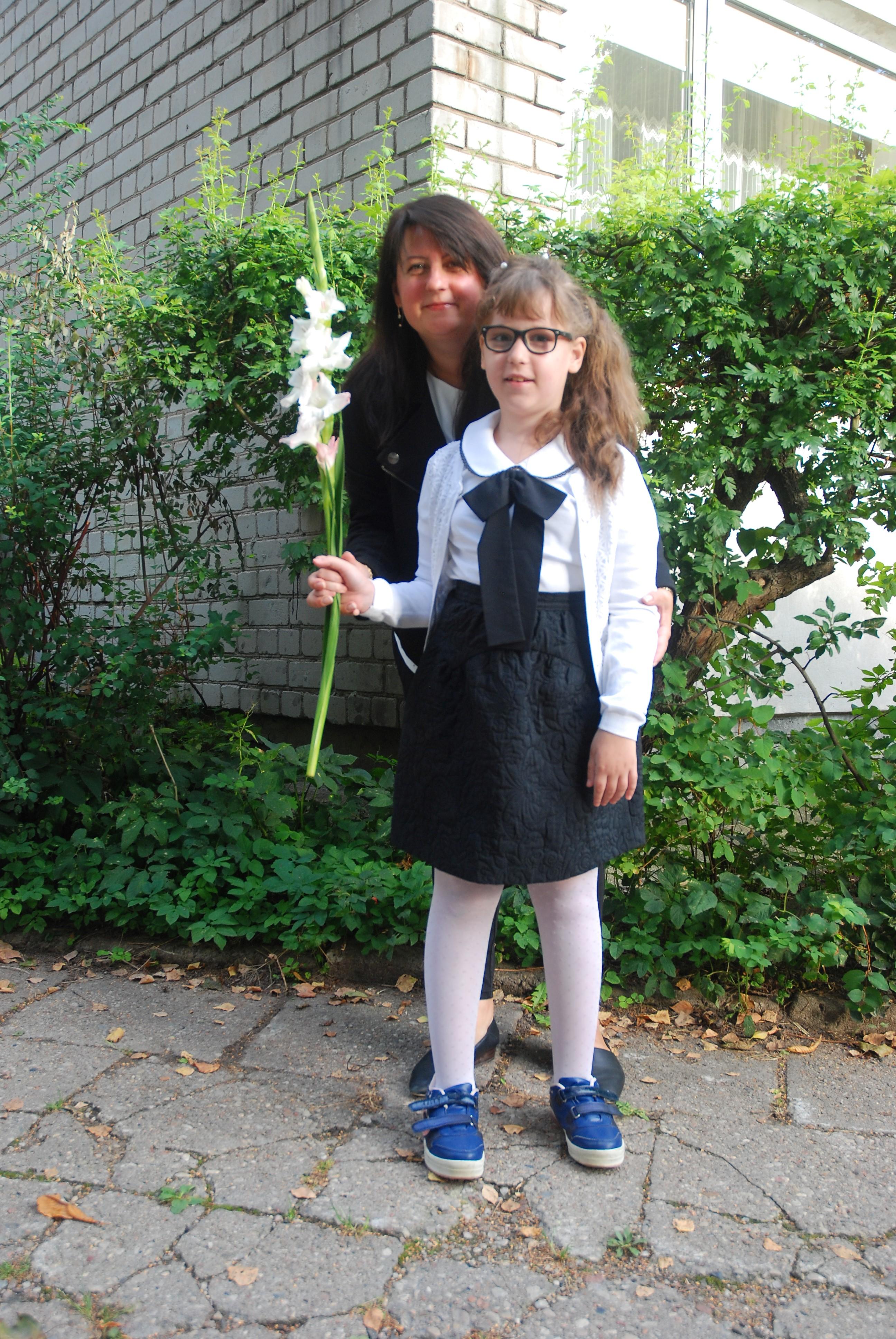
Inclusion
through sport for children with developmental disabilities
SPECIAL EDITION Skillful Futures
One of our last events took place in the city of Klaipeda and was supported by the local football school. Unified partners played together with all participants, and it was yet another very special occasion for Inga:
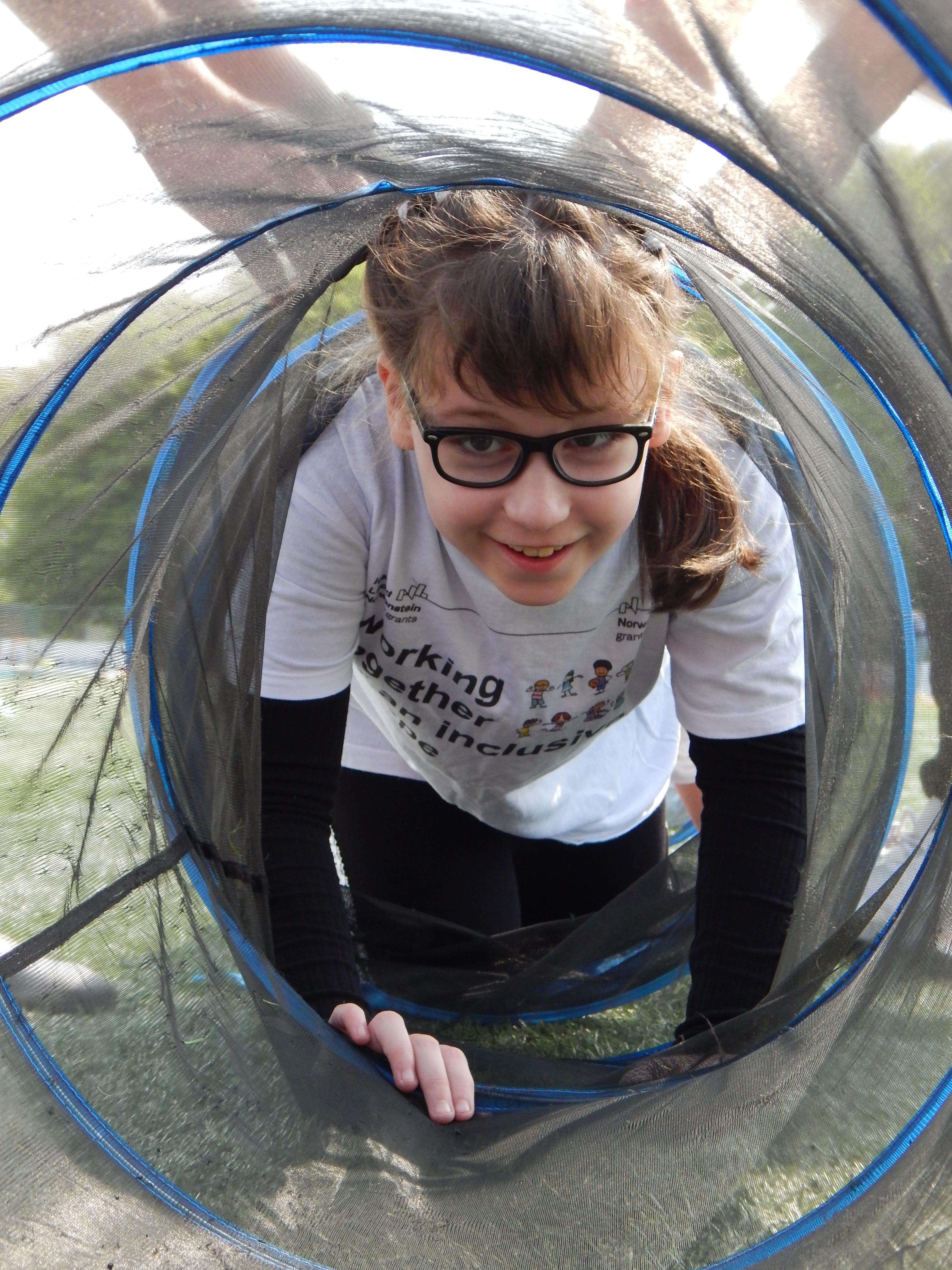
“My daughter felt very special, she did not have even a second to feel anything else,” continued Inga’s mother. “The event was full of joy, and kind, supportive people who helped the participants overcome all tasks and try all activities.
“Our trip from the capital to the event took more than 3 hours. This kind of long journey are usually difficult for Inga to handle, but she was so excited
this time around, that it was as if she did not even realise we were travelling.
“During the event, one of the partners helped my daughter and told her something that stuck with the both of us: “You can make it, you can pass this task, because we will make it together”.
She keeps all her medals gained during this project in her room, and every time we look at them now, they remind us of how much we can make together.”
SPECIAL EDITION Skillful Futures
Waste management is an ever-growing concern in today's world, and its proper handling is vital for sustainable living. To combat the challenges posed by increasing waste generation, it is crucial for waste management centres to connect with the public, schools, and the community to educate young people and children on responsible waste management. By instilling eco-conscious values and practices at a young age, we can create a generation that actively participates in building a cleaner and greener future. Among the partners of the Circular Based Waste Management project, the Tel š iai Region Waste Management Centre has been organising activities geared towards educating communities on responsible waste disposal. Through various initiatives, the public, schools, youth and children have been engaged in waste management awareness. One recent example of such activities is "Mission Clean Summer '23". This campaign aimed to raise awareness among the general public about keeping the environment clean during the summer months and the impact of littering on the environment when on holiday. Families took part in a tournament on waste sorting and were shown how to take into
consideration waste generated when preparing their summer picnic.
On Earth Day, Tel š iai organized waste sorting lectures in schools and gave presentations on waste sorting and responsible disposal. These lectures taught children about the importance of waste management and the importance of environmental protection within their communities.
To celebrate European Waste Reduction Week, in collaboration with the schools, activities such as a waste reduction challenge, creative recycling contest, and educational seminar, aimed to make waste management fun and interactive for young students. The Telšiai Region Centre for Waste Management has also reached youth outside their local region. High students from Palanga, which is on the coast and 80km away from Telšiai, visited the Jerubaiciai landfill to learn about waste management, sorting and the principles of the circular economy. While learning about waste management's environmental implications, the students were encouraged to take a more active role in waste reduction initiatives within their community.
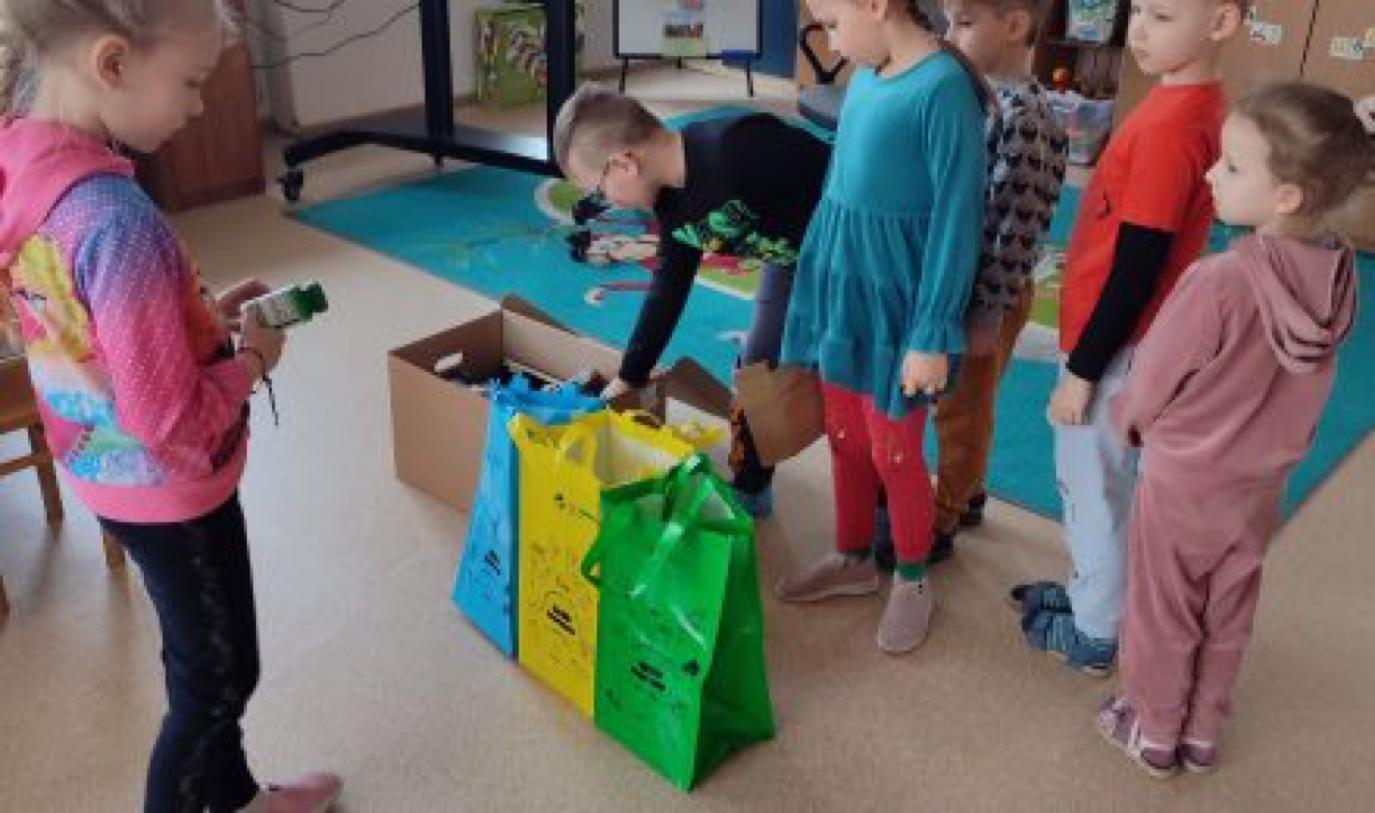
Circular Based Waste Management
Waste management centres play a crucial role in educating young generations to adopt circular practices
SPECIAL EDITION Skillful Futures
Learning about circular economy practices were also taken beyond the local classrooms and the region, in a study tour organised by Ma ž eikiai District Municipality to Norway for school teachers. In addition to good practices, teachers learned about the importance of education in the waste management system and raising children to become environmentally conscious citizens. During the project, partners have had the opportunity to learn and draw inspiration on how waste management topics are introduced to schools and the public in other countries.
In Ljubljana, Slovenia, the waste management centre emphasized the importance of the municipality’s support in promoting sustainable waste management practices. Through connecting with schools and communities, campaigns and activities aim to inspire young generations to embrace eco-friendly lifestyles and take part in waste reduction initiatives.
In Logroño, Spain, the Ecopark at the waste management centre is mandated by the local government of La Rioja to offer educational tours to local schools. Schools in turn, are encouraged to visit the facility at different stages in their education level with the content adapted each time and becoming more detailed.

The initiatives taken under and witnessed during the project showcase how waste management centres can foster environmental education among young people and children. By connecting with the public, schools, and the community, these centres empower the next generation to adopt practices that are beneficial for the environment. Throughout the project, education has been highlighted as a key element for sustainable waste management and adoption of a circular economy. Investing in the education of young minds today will yield a cleaner, greener, and more sustainable future for them.
Furthermore, by equipping teachers with the necessary knowledge and tools, we can amplify the impact of waste management education and create a positive change throughout society. Through such initiatives, we can build responsible waste

management systems and a healthier planet for generations to come.
Maritsa Kissamitaki – Circular Bases Waste Management project - circular-waste.eu
SPECIAL EDITION Skillful Futures
Interviews and external contributors
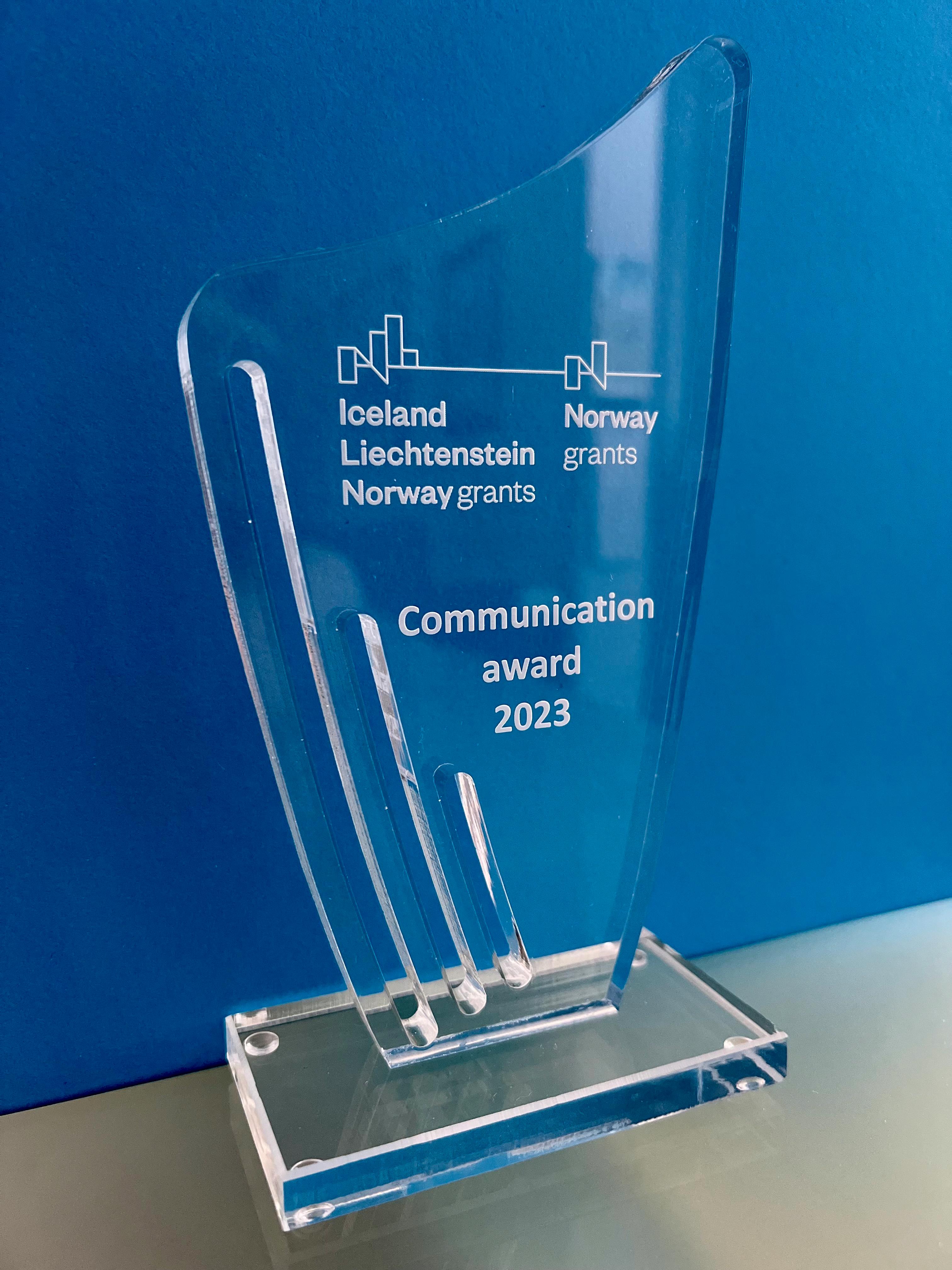
Gian Luca Bombarda, Thomas Mc Grath, DG EMPLOYMENT – EYS Team, European Committee of the Regions, EESC, EU, FAFO, OECD, ILO, CEDEFOP, ETF, Anpal Servizi
From the projects
Tomasz Szurgociński, Loreta Stoyanova, Eleni Bletsa, Yiorgos Alexopoulos, Darta Ansone, Luisa EURIBOR, Sean Azzopardi, Laura Repsyte, Anna Saroukou, Foteini Sokratous, Rosa Messuti, Aimilia Markaki, Jose Fernandez, Maria Eduarda Costa, Kasia, Luigi Auteri, Boris Gidakovic, Natalia Truszkowska, Dimitrios, K. Tsolis, Sara Marques, BB Consulting team, Center for Innovative Education, HRDA team, Living Lab , Magdalena Jovanovska, Jernej Bubnic, Tadeja Vidmar, Mitja Nakrst, Laura Strachan, Maritsa Kissamitaki , Kristina Barać Petrović, Alina Adomnicăi, Monika Peter Tzvetkova, Marzena Dusza, Laura Pacareu Flotats, Saroukou Anna, Kremena Yordanova, Teodora Ivanova, Amber Darmanin, Anna Kanepone, Anastasia Vlachou, Savvas Pavlidis, Maritsa Kissamitaki, Monica Tautul, Tanja Dimitrijević, Špela Kodre, Ierotheos Zacharias, Yiorgos Alexopoulos, Eleni Bletsa, Anca Beudean, Marta Messineo, Zoe Touvra
Credits SPECIAL EDITION Skillful Futures
Cover image: free image
The contents of the Magazines are the sole responsibility of the authors and can in no way be taken to reflect the views of the Donors.
The Youth Employment Magazine and The Regional Cooperation Magazine are born with the intention of sharing the results and updates of the projects participating to the Funds to showcase the main achievements of implemented activities.
Follow us: www.youthemploymentmag.net www.regionalcoopmag.net
Don’t miss the Youth Employment Forum!
Go to the Forum
Contact us: themag@youthemploymentmag.net themag@regionalcoopmag.net

FUND OPERATED BY:

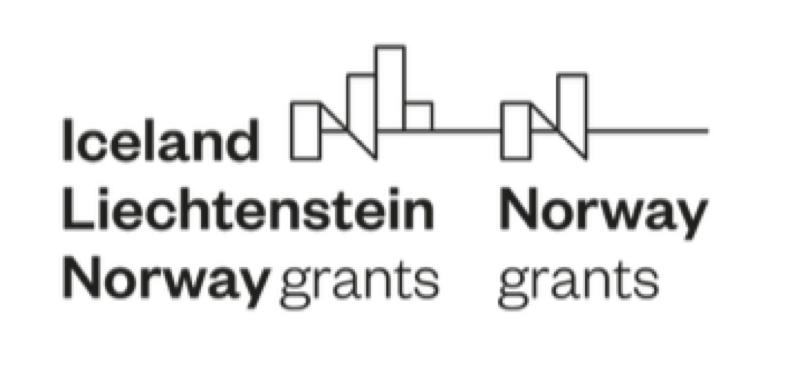
SPECIAL EDITION Skillful Futures









































































































 Photos 10-12: Opening day at the Learning Centre Brje; Photo credit: Tanja Dimitrijević, MA and Jan Čermelj, Photographer
Photos 10-12: Opening day at the Learning Centre Brje; Photo credit: Tanja Dimitrijević, MA and Jan Čermelj, Photographer


 Photos 15-17: Presentations and Sensory courses; Photo credit: Mats Carlehøg, NOFIMA
Photos 15-17: Presentations and Sensory courses; Photo credit: Mats Carlehøg, NOFIMA













